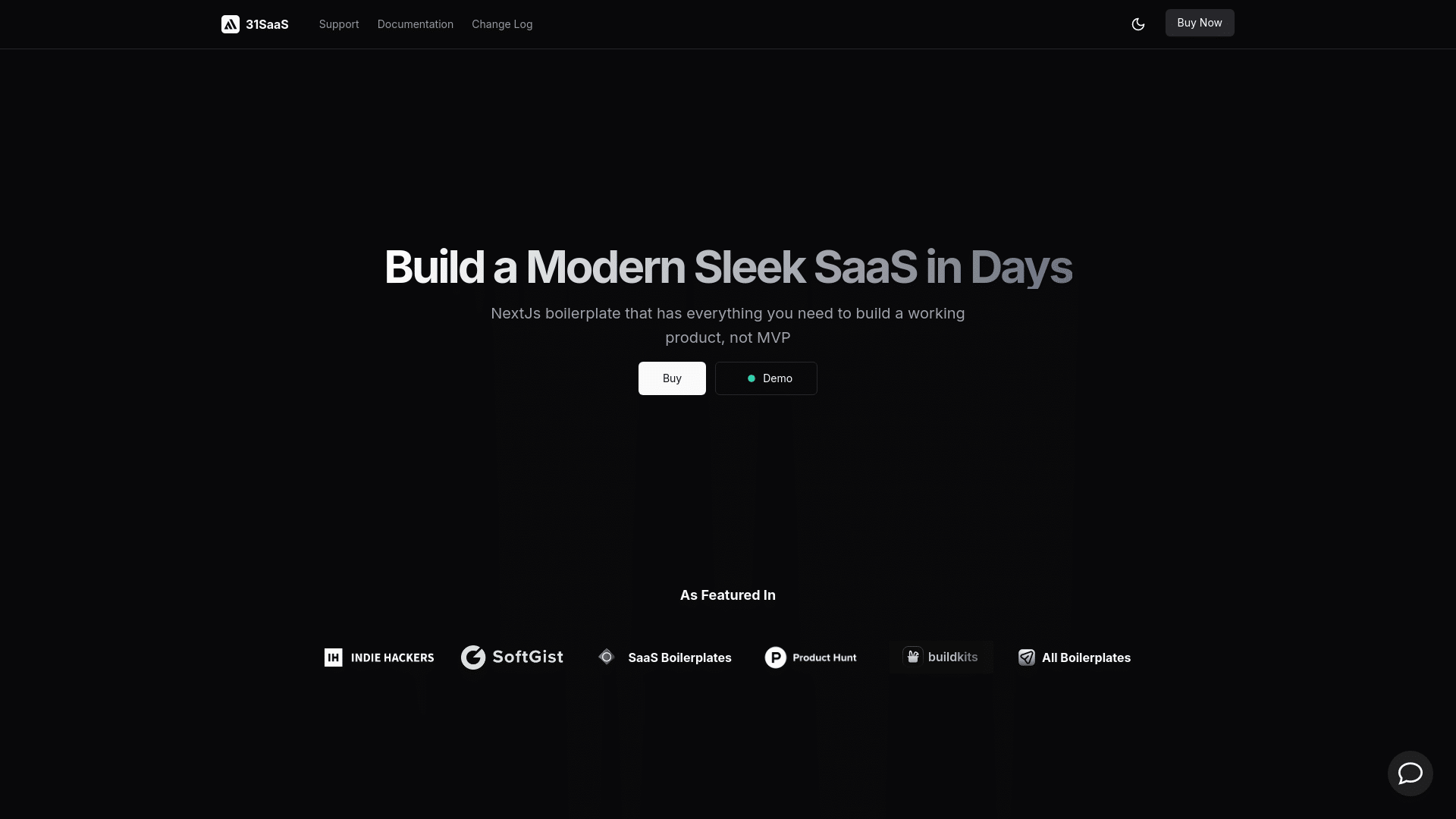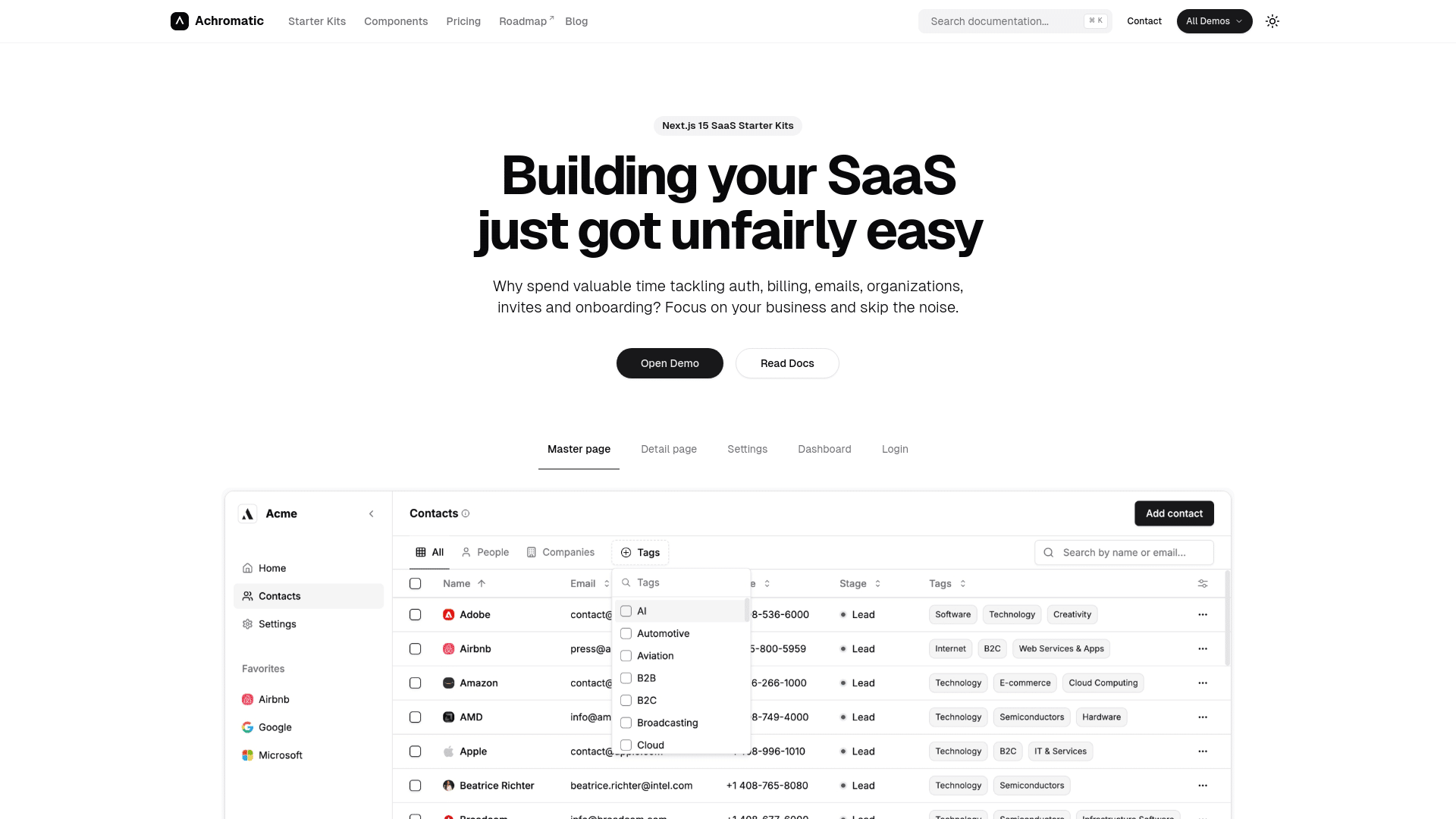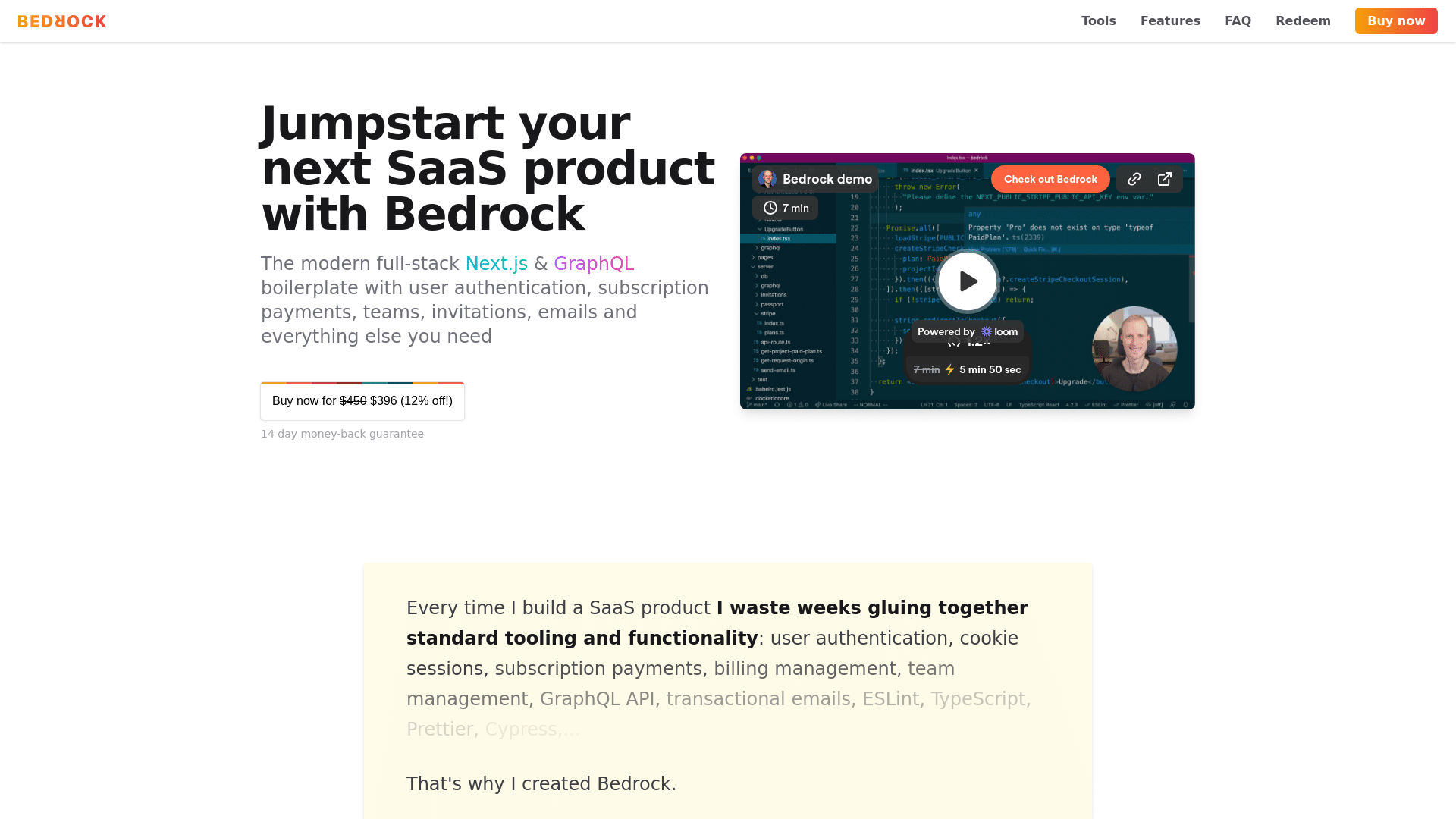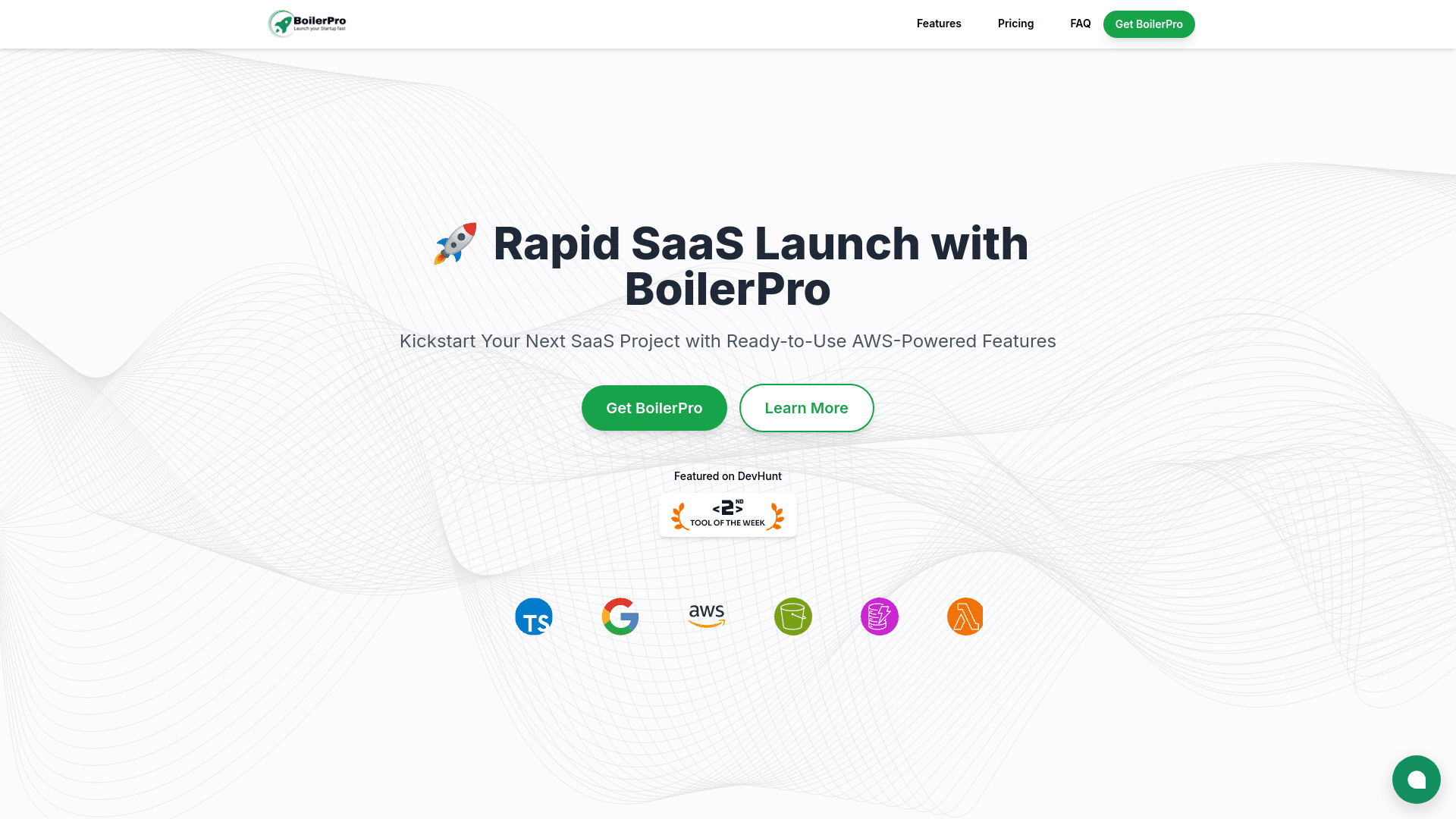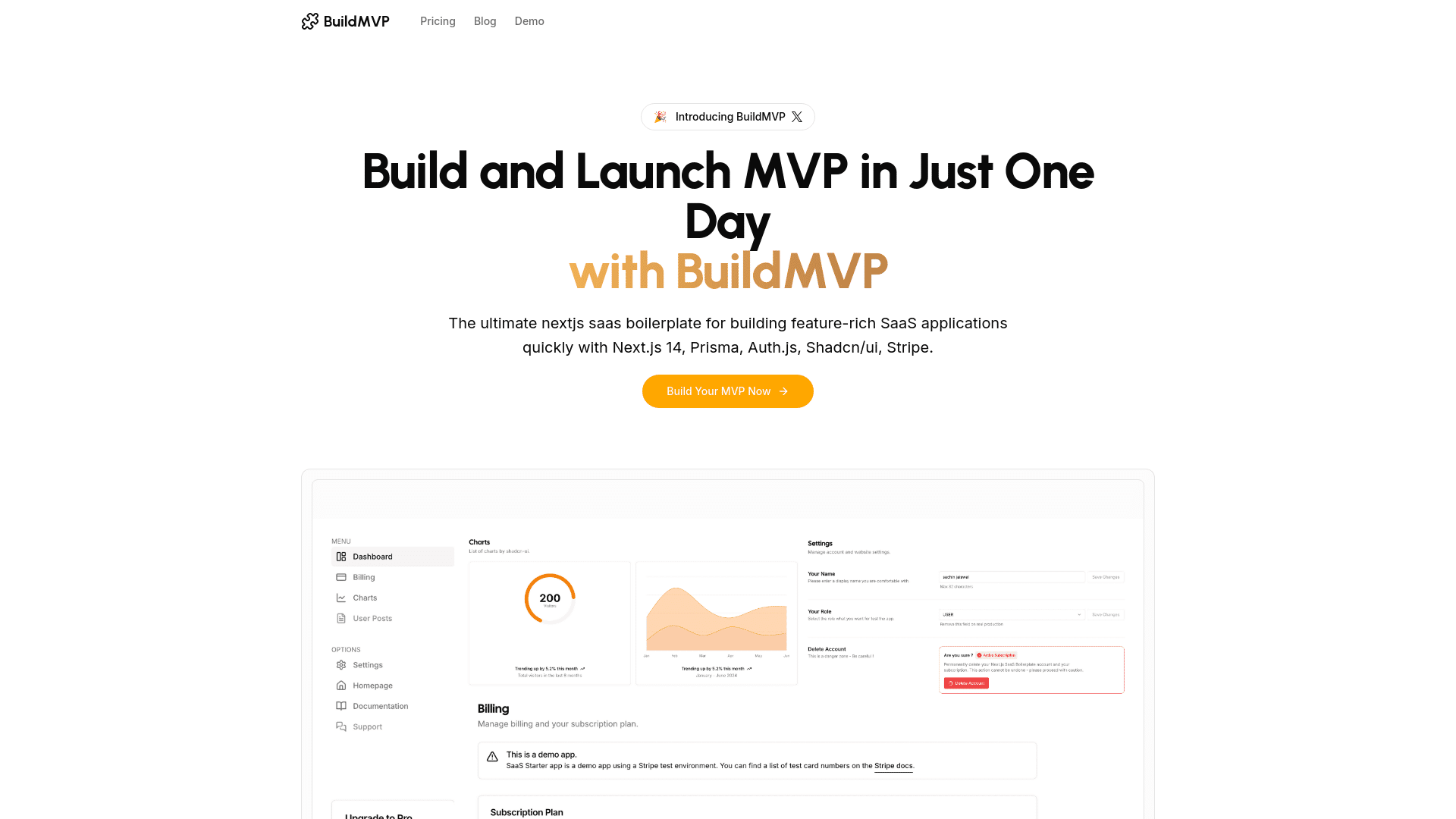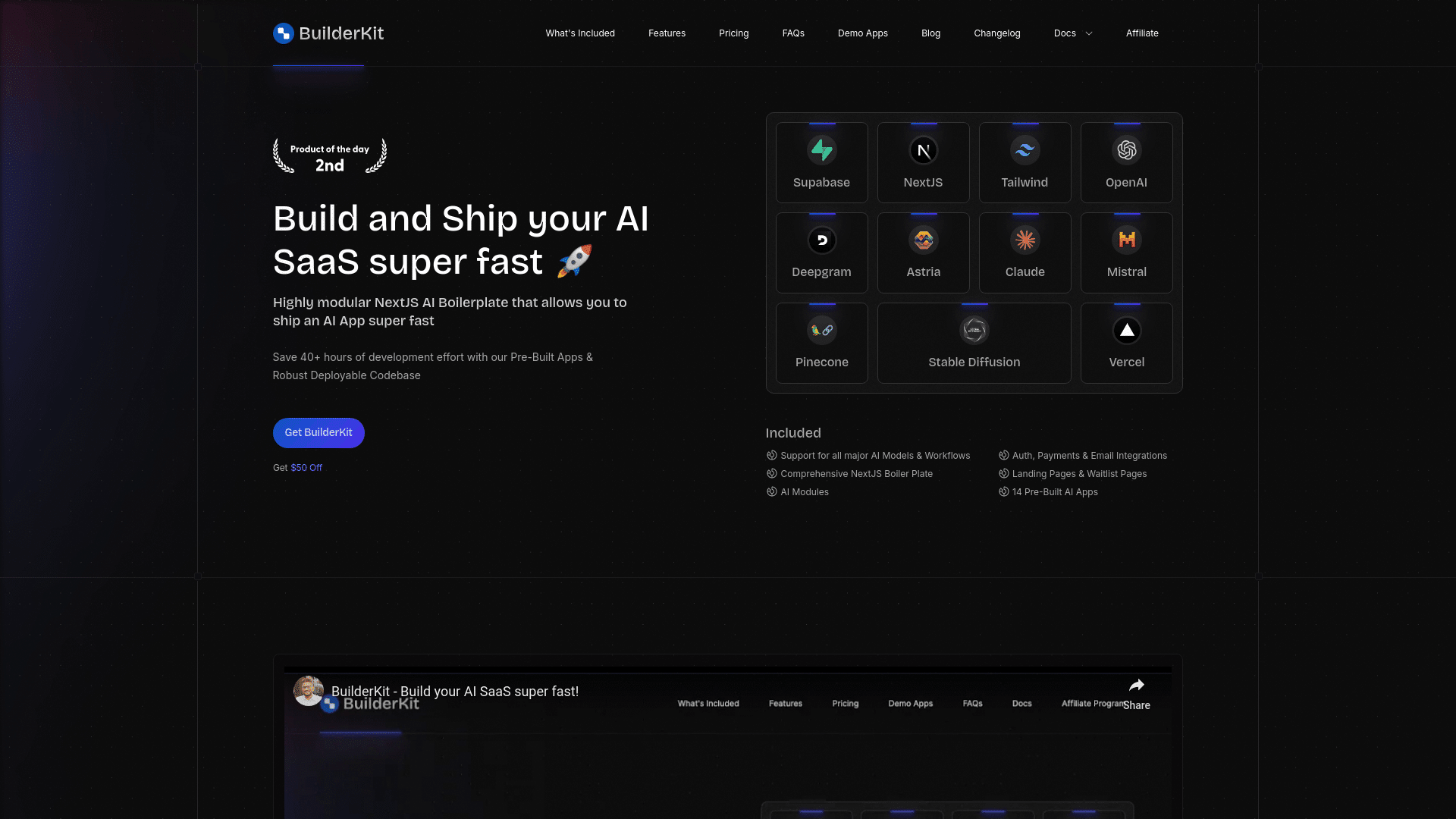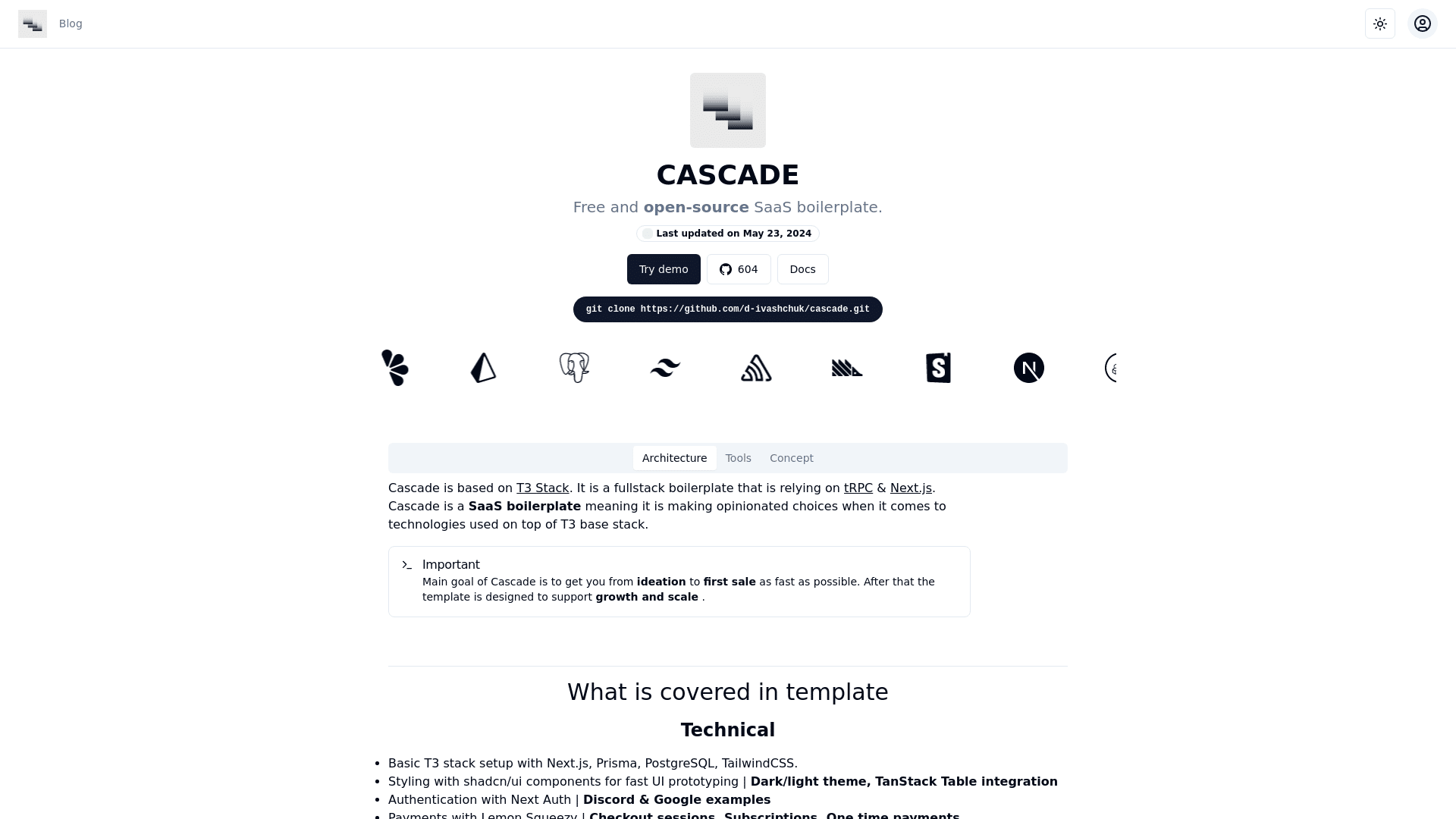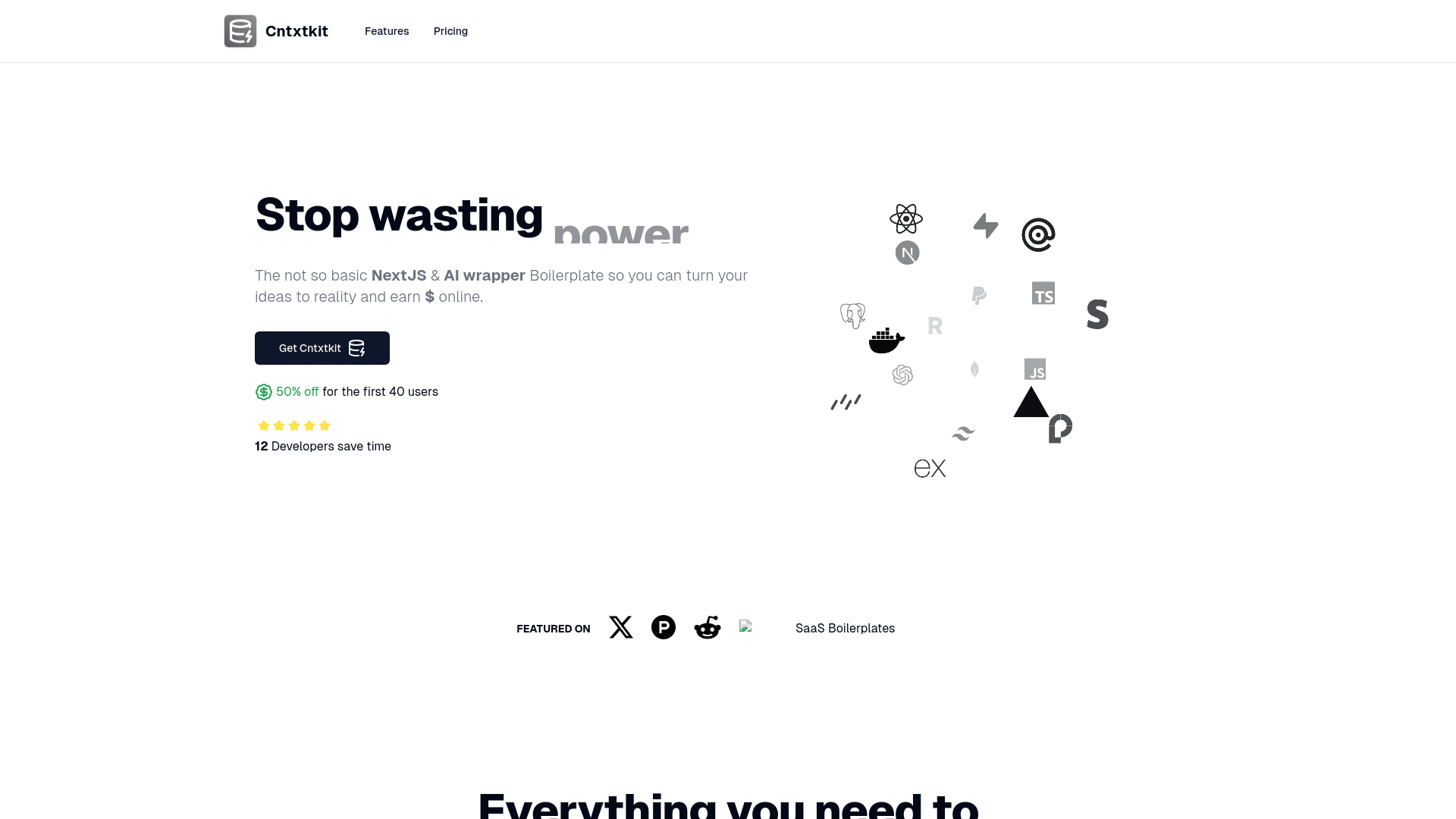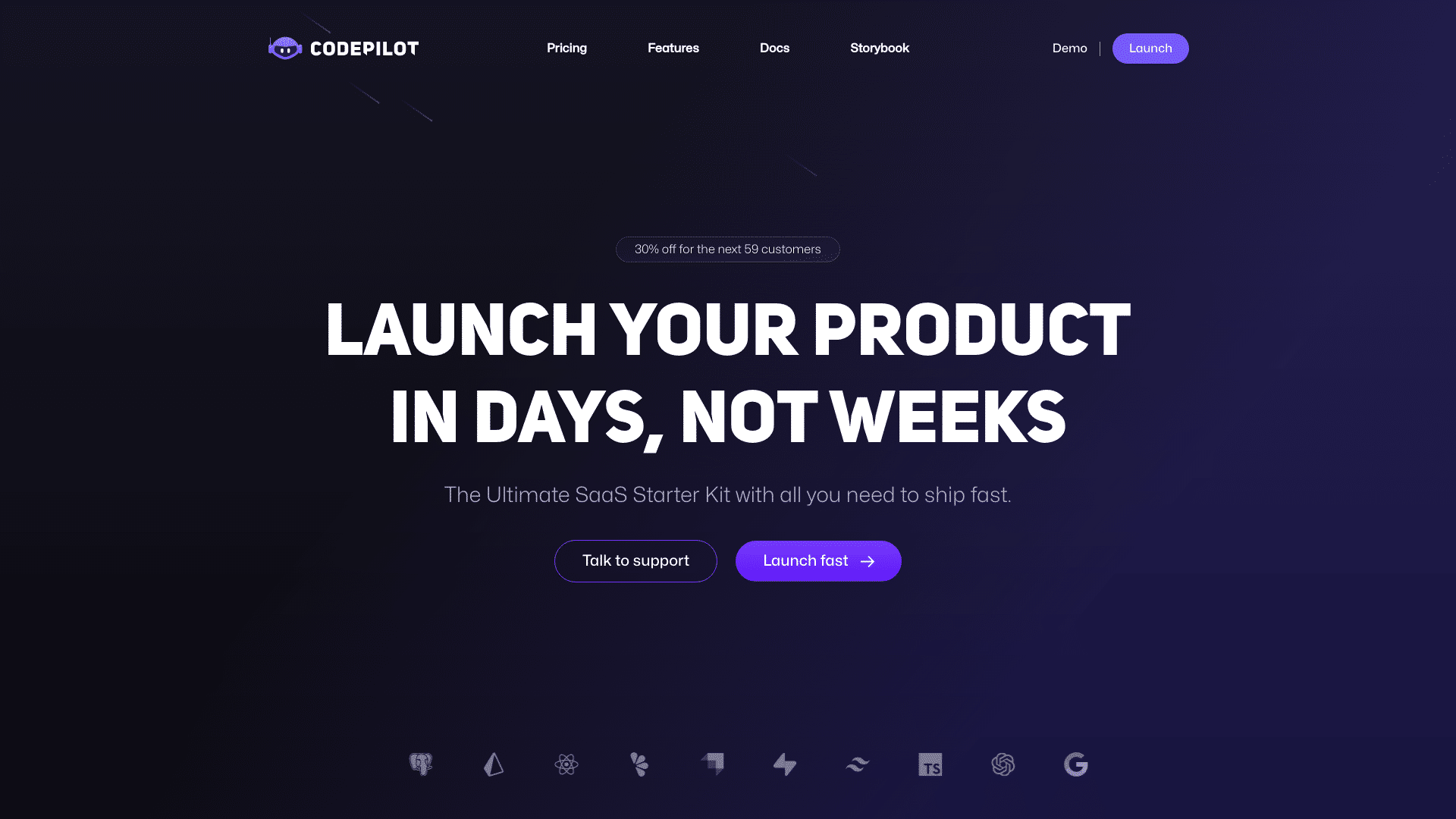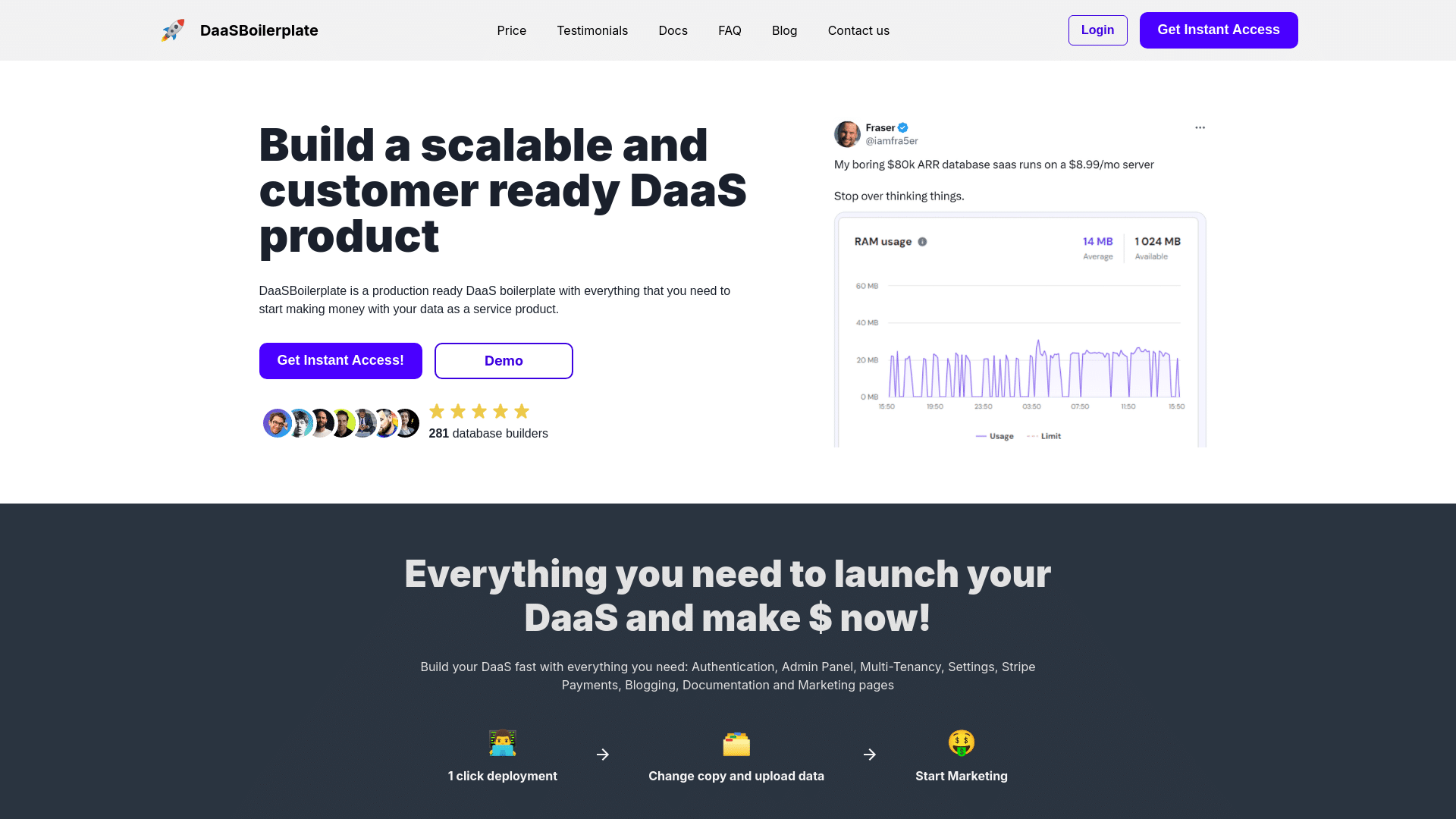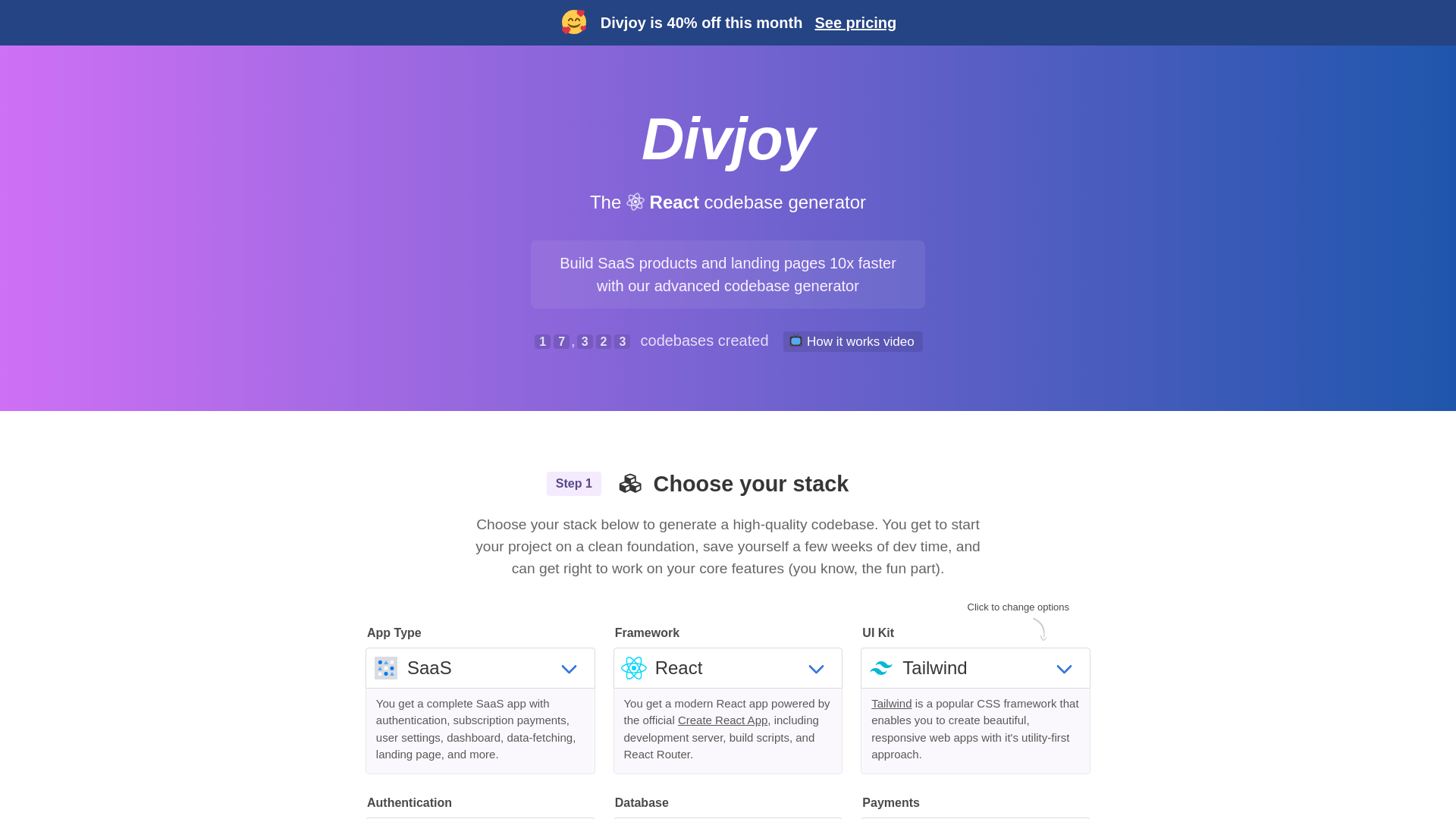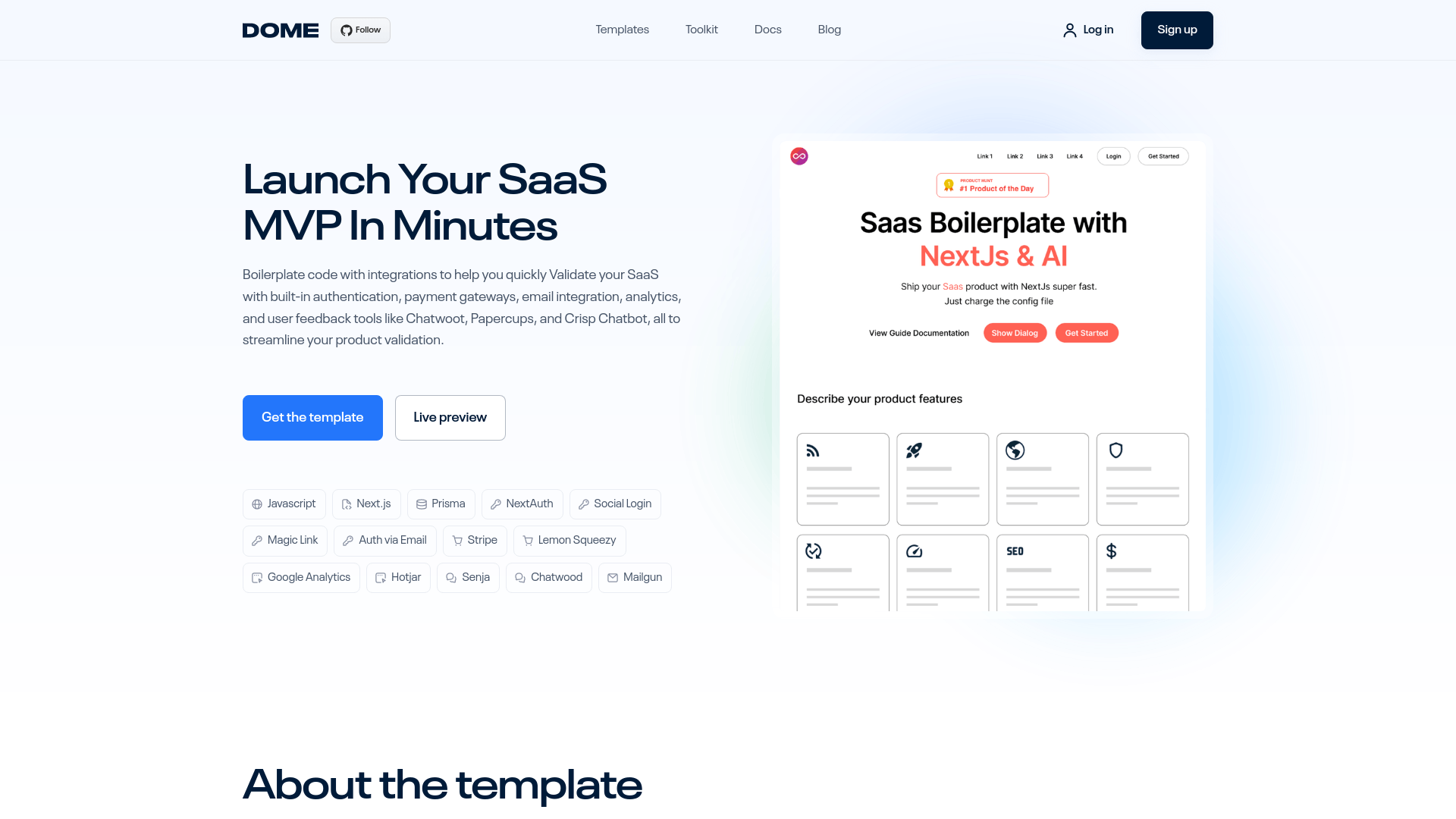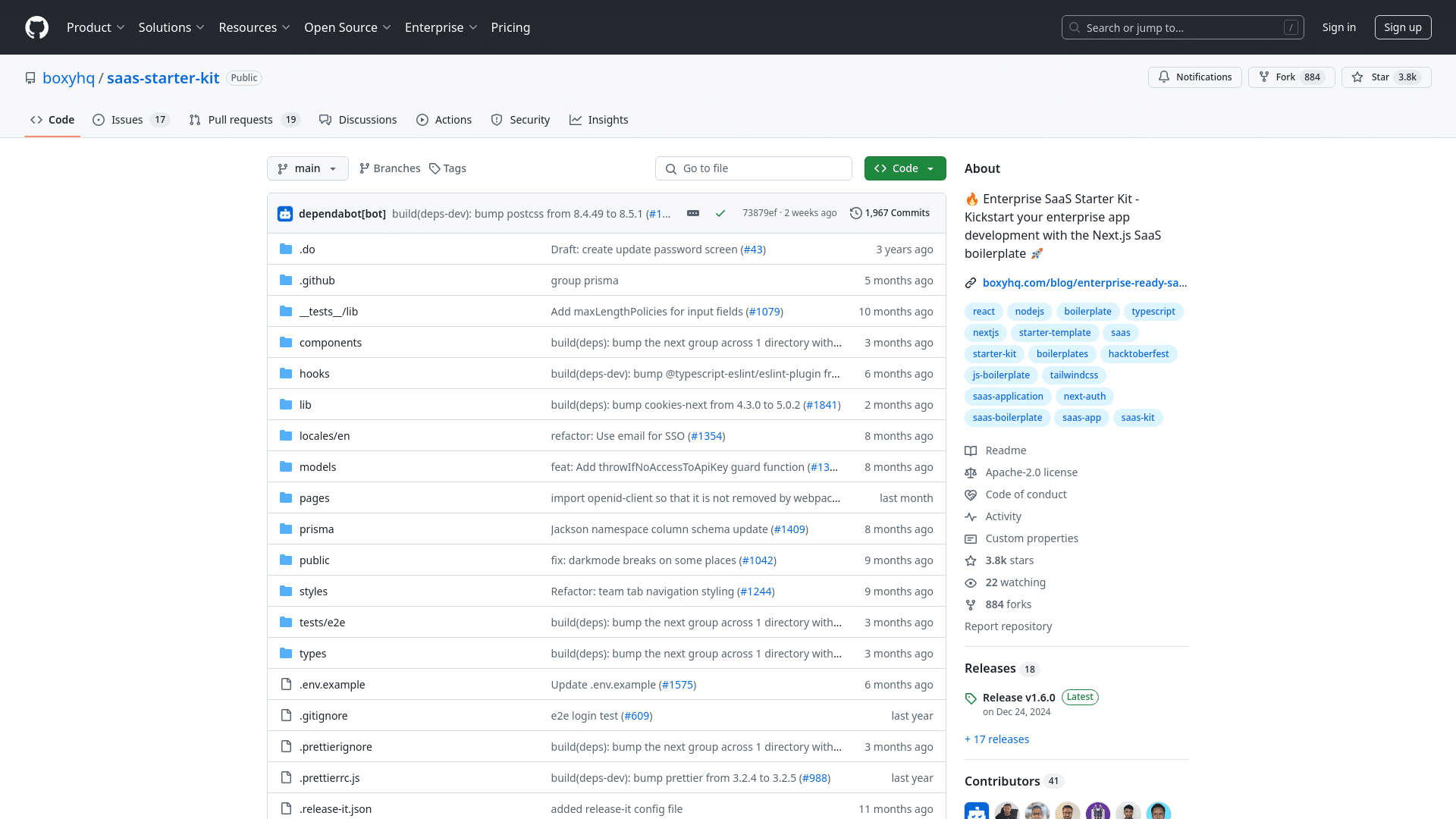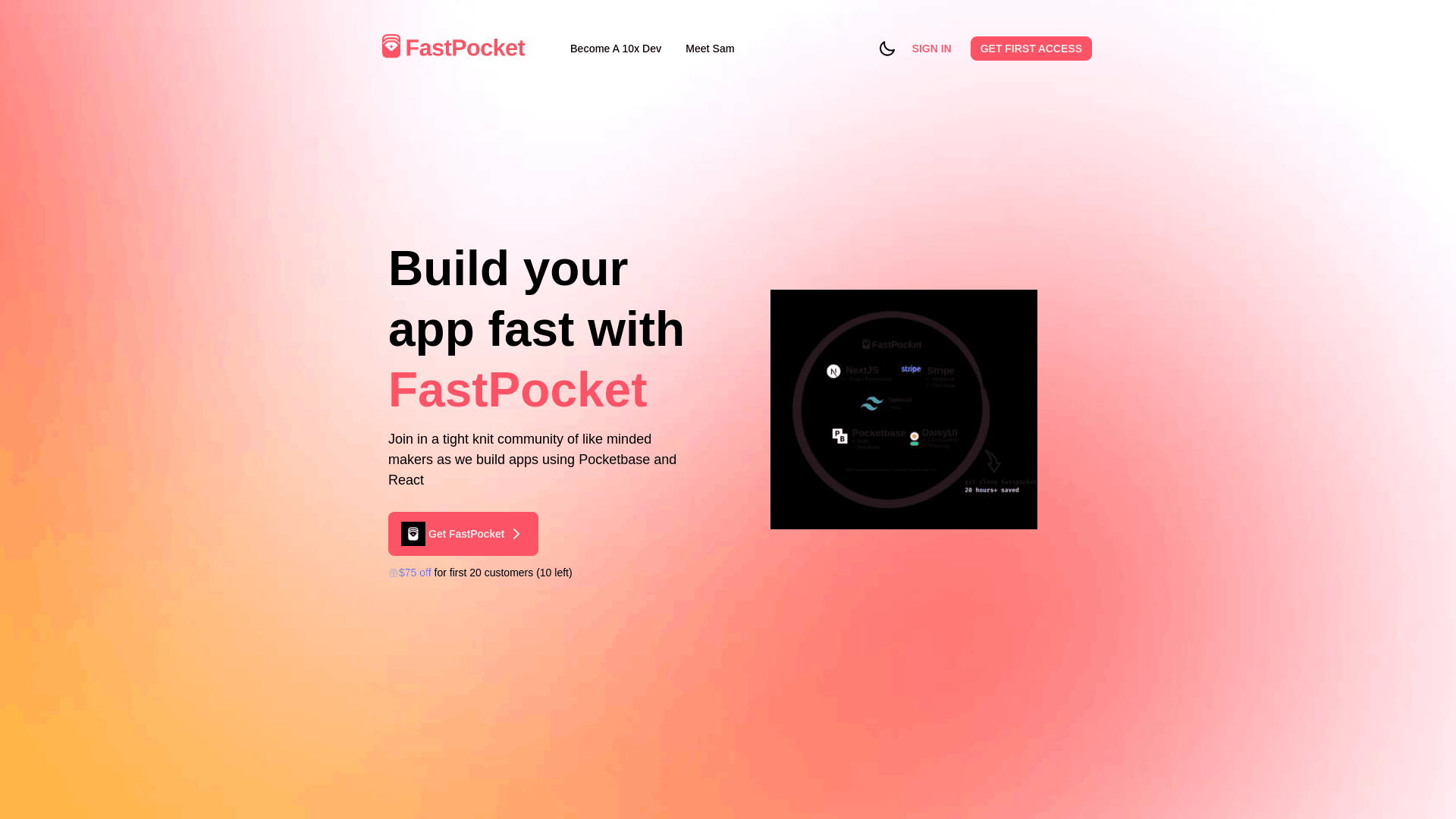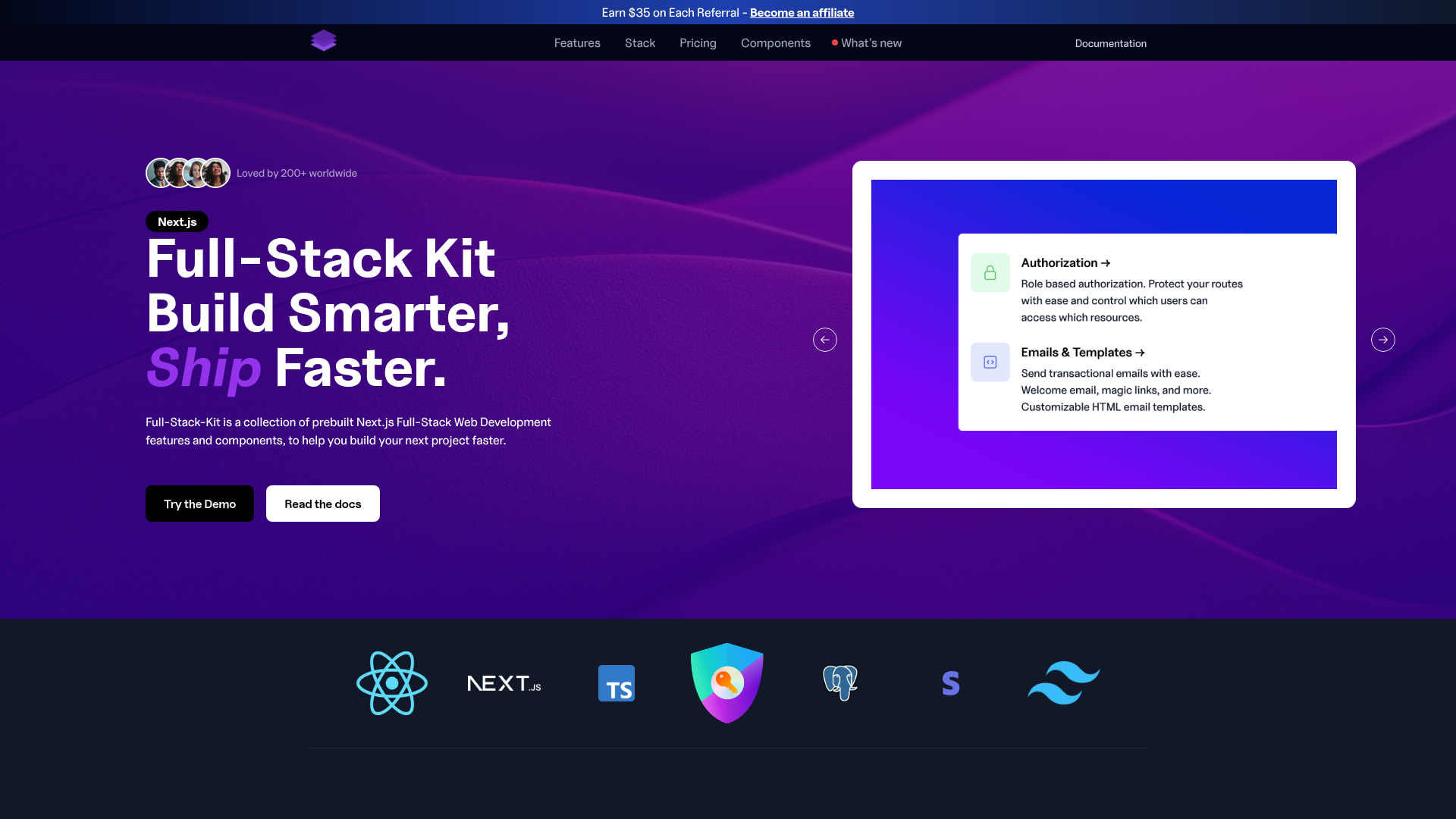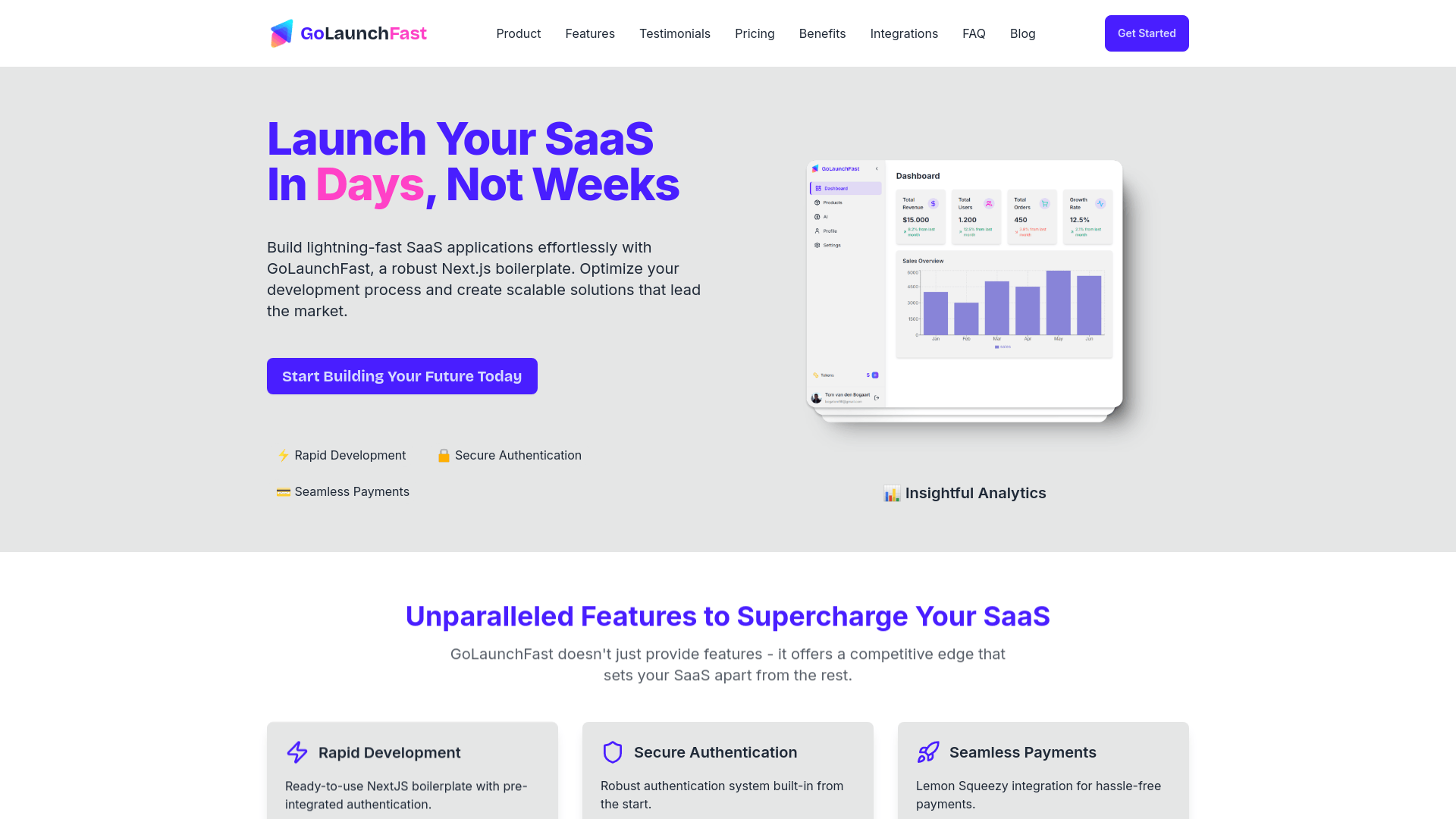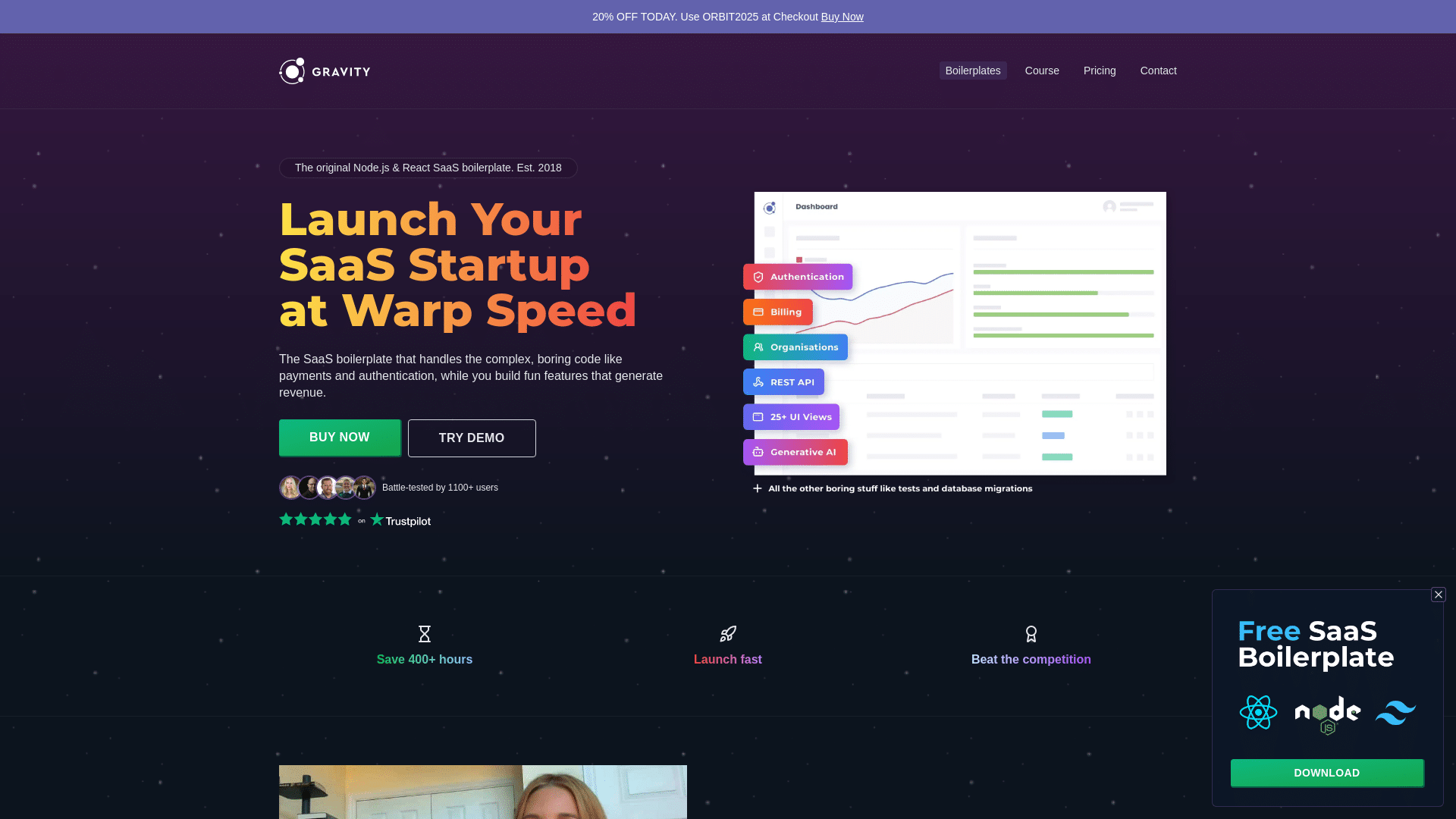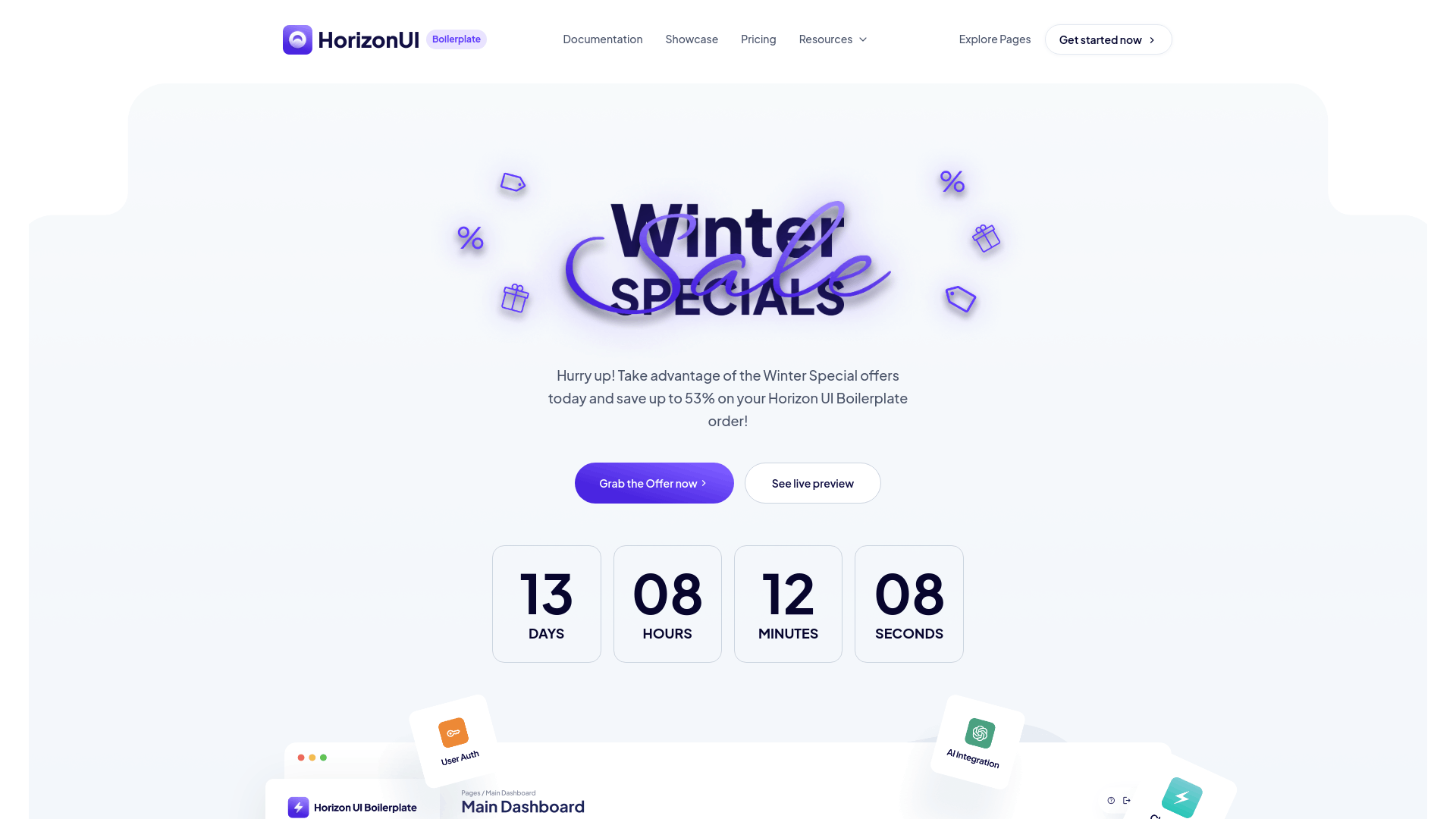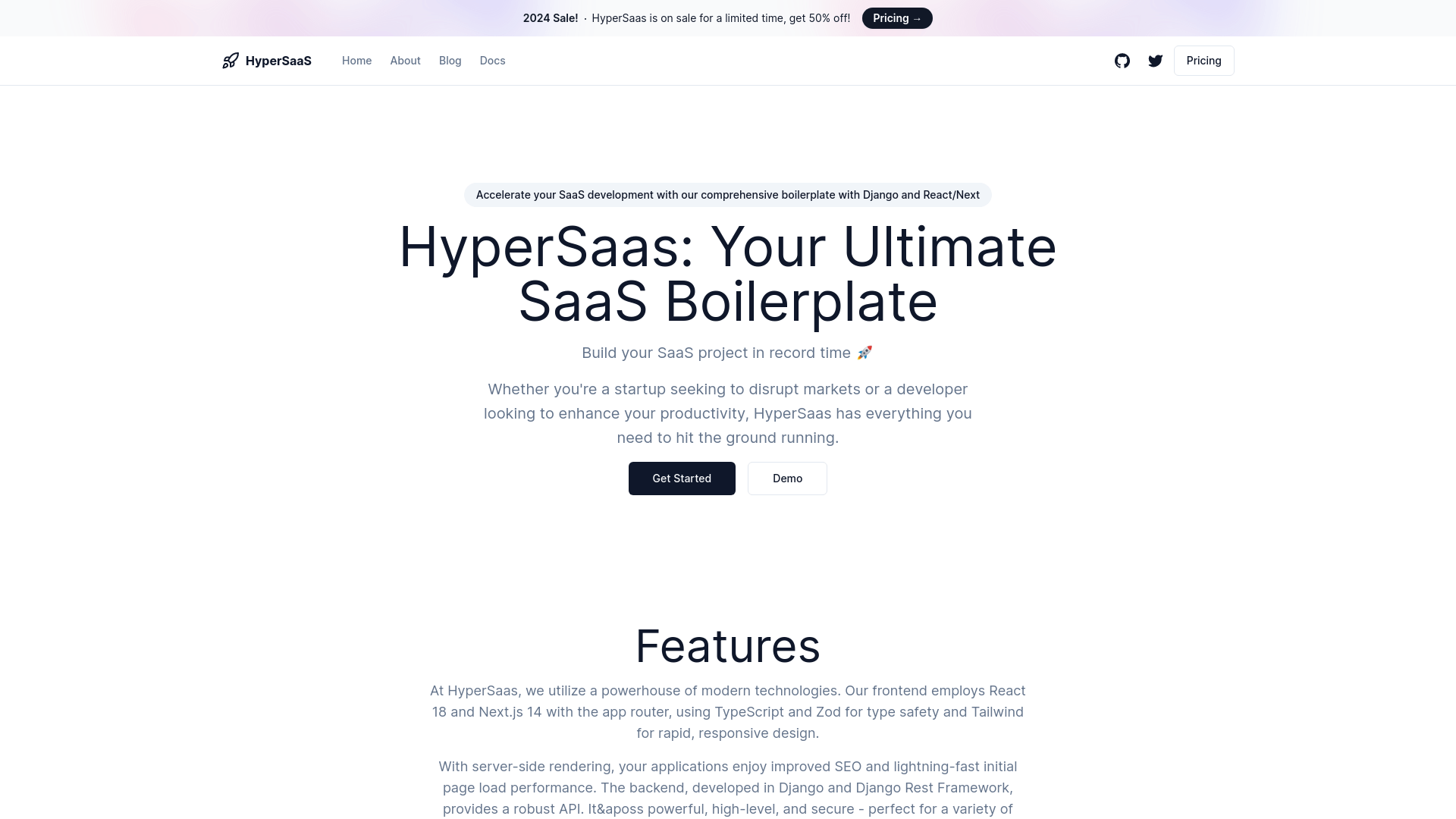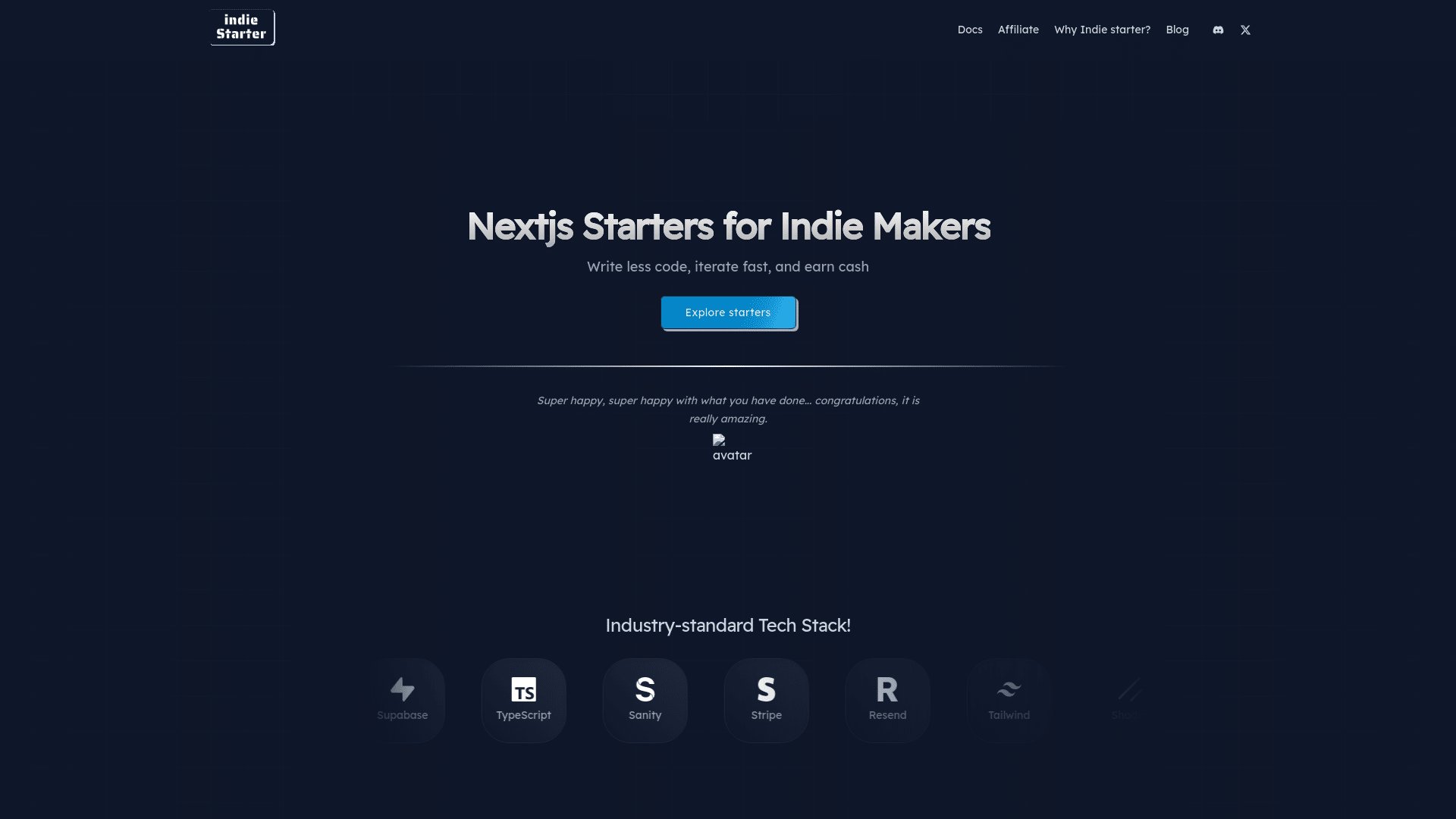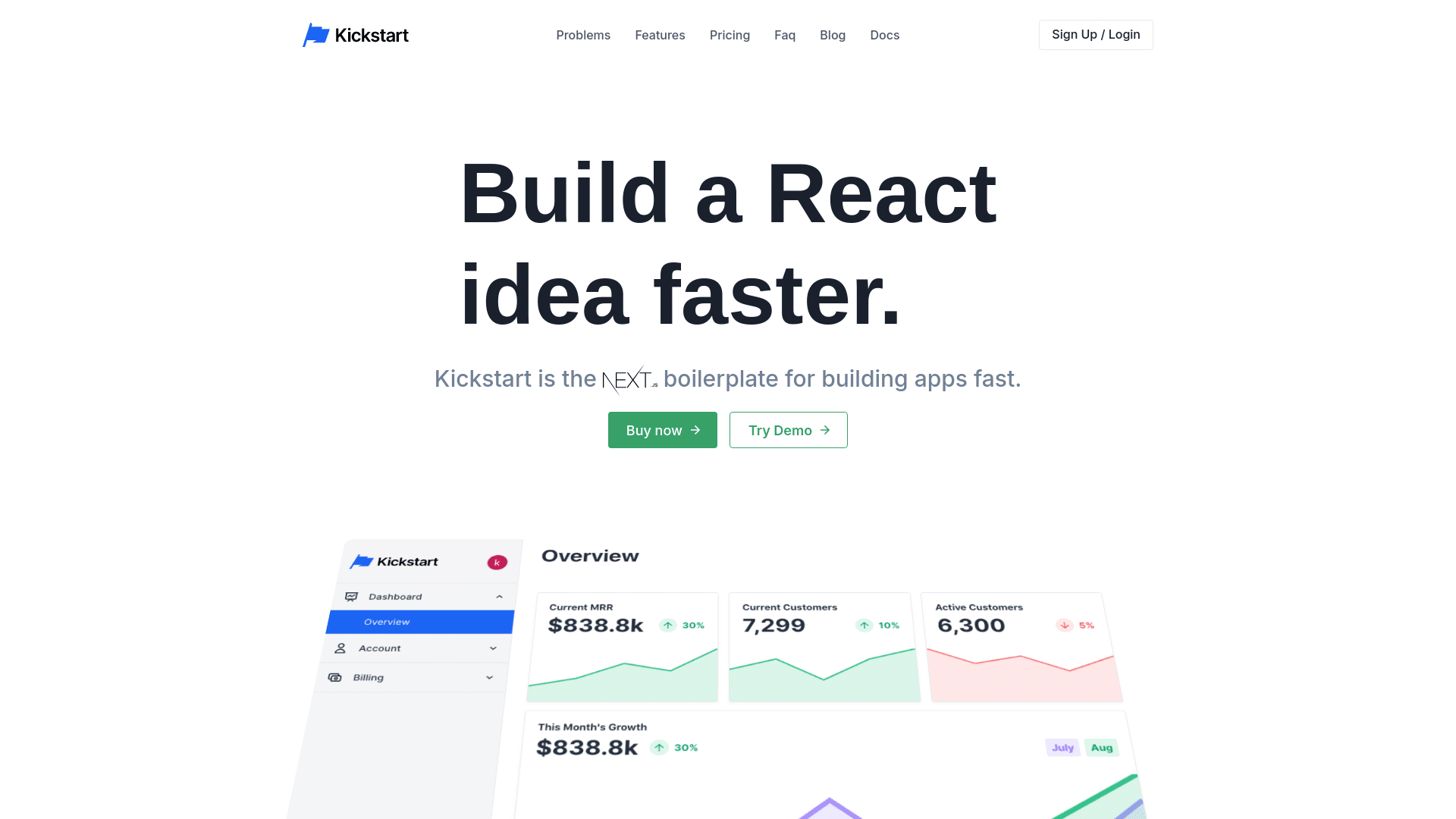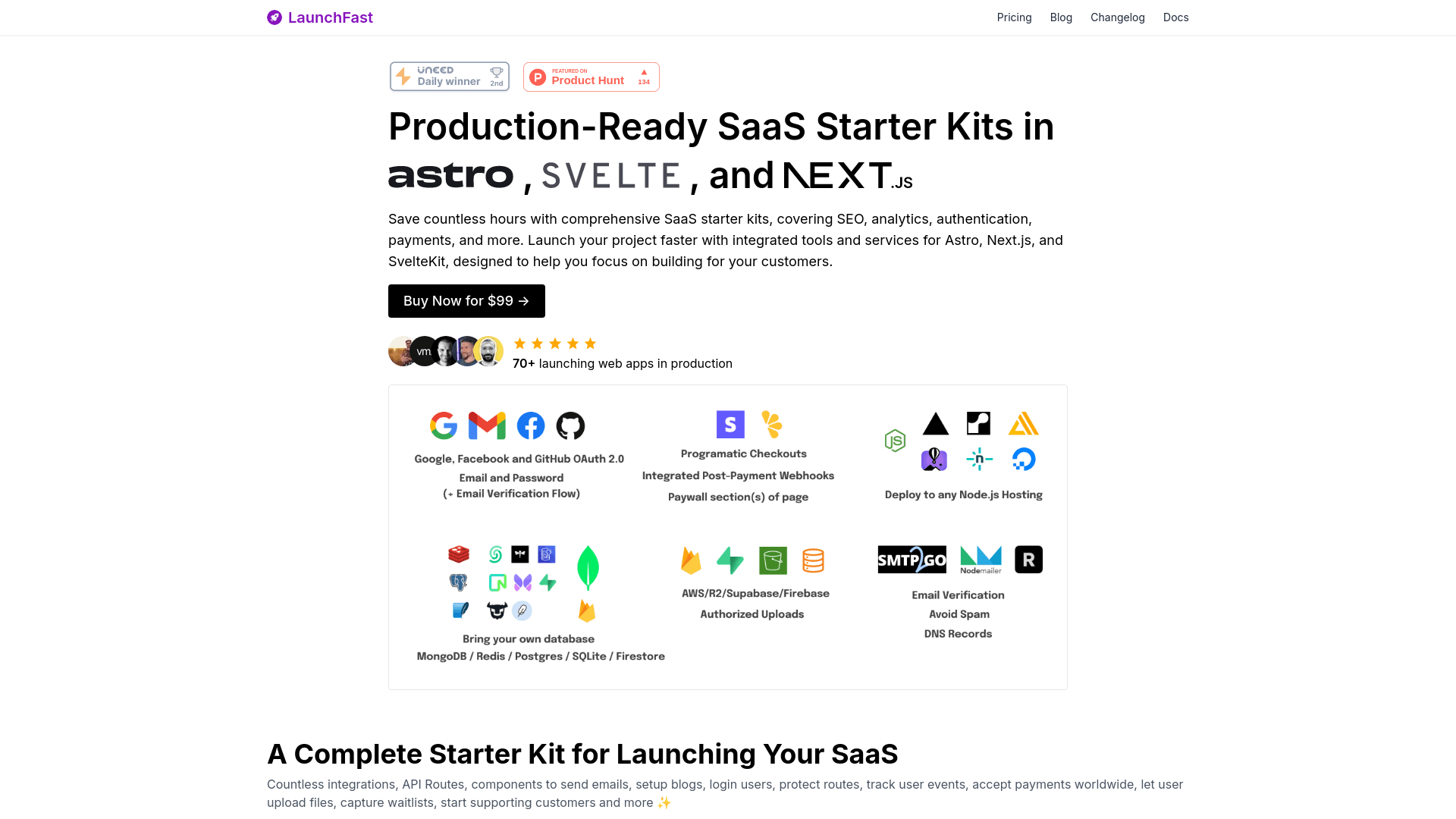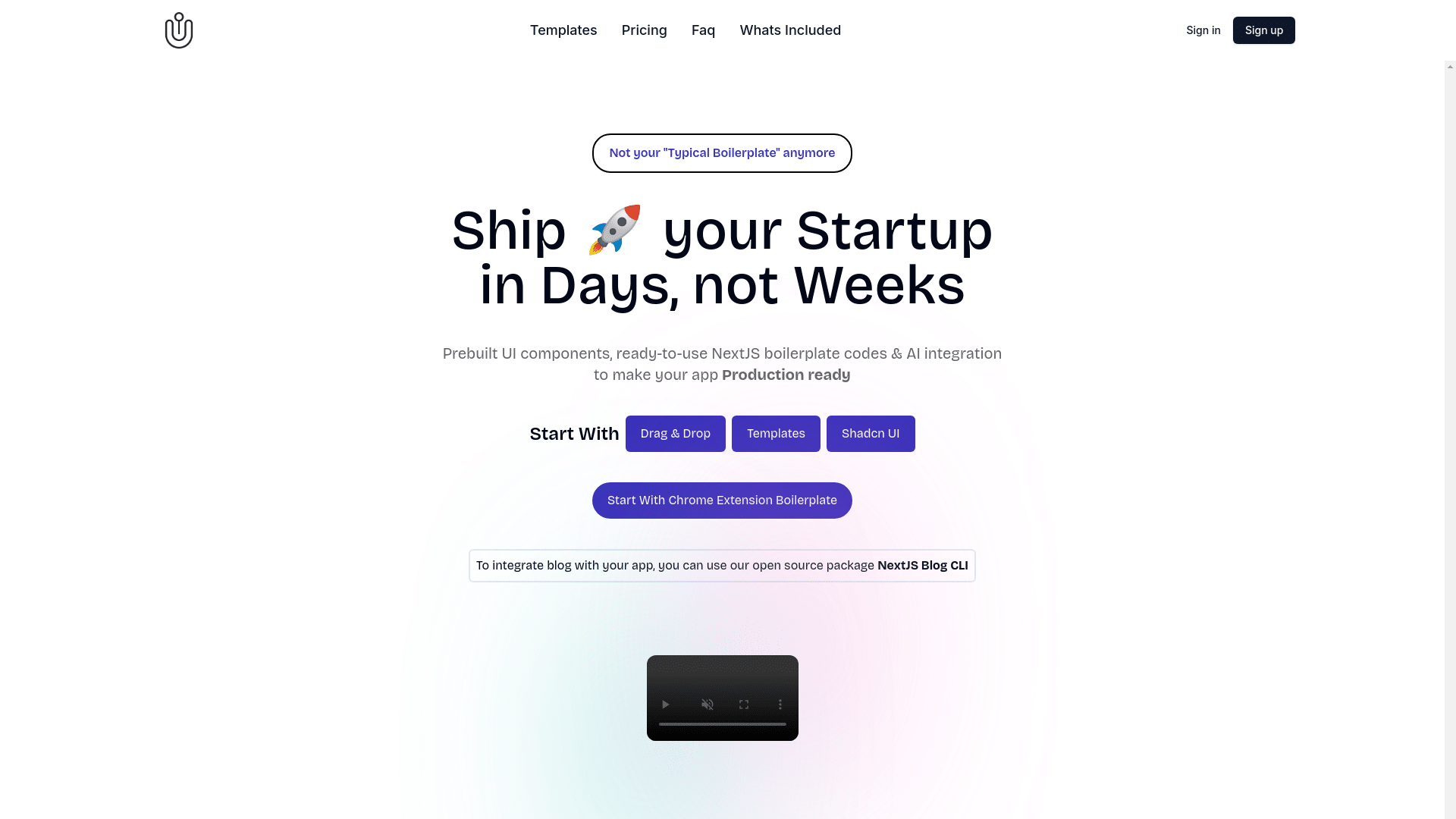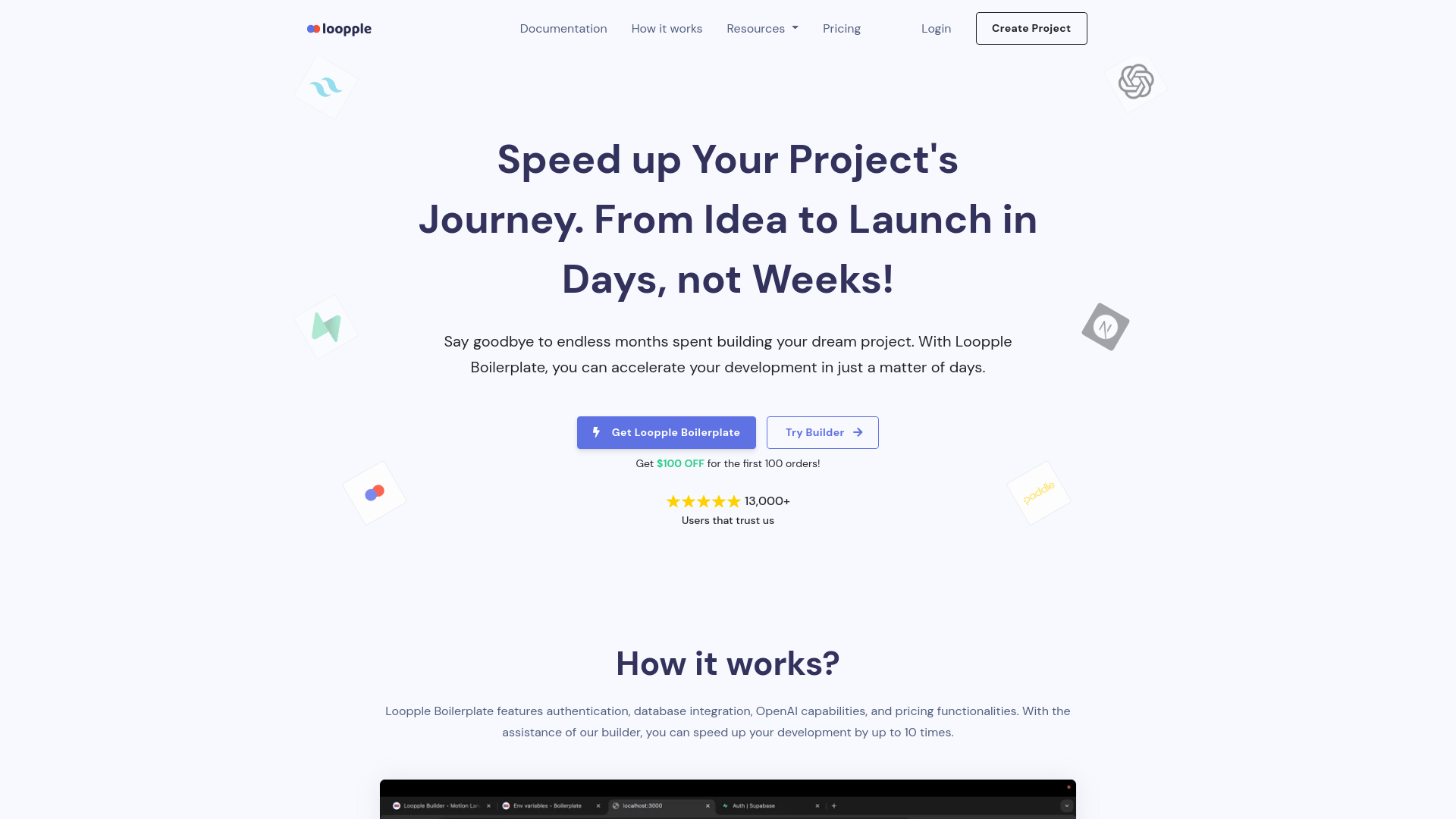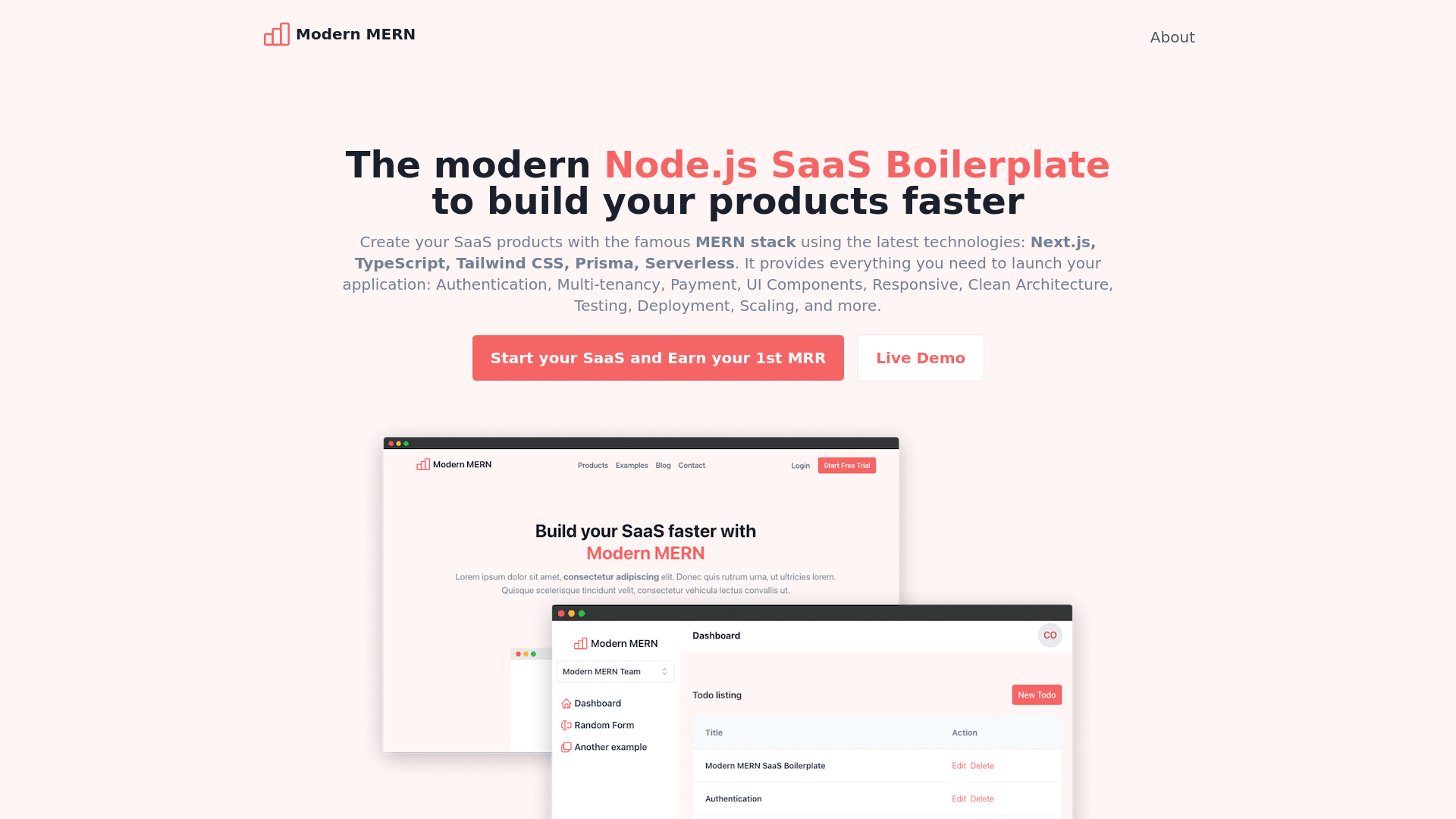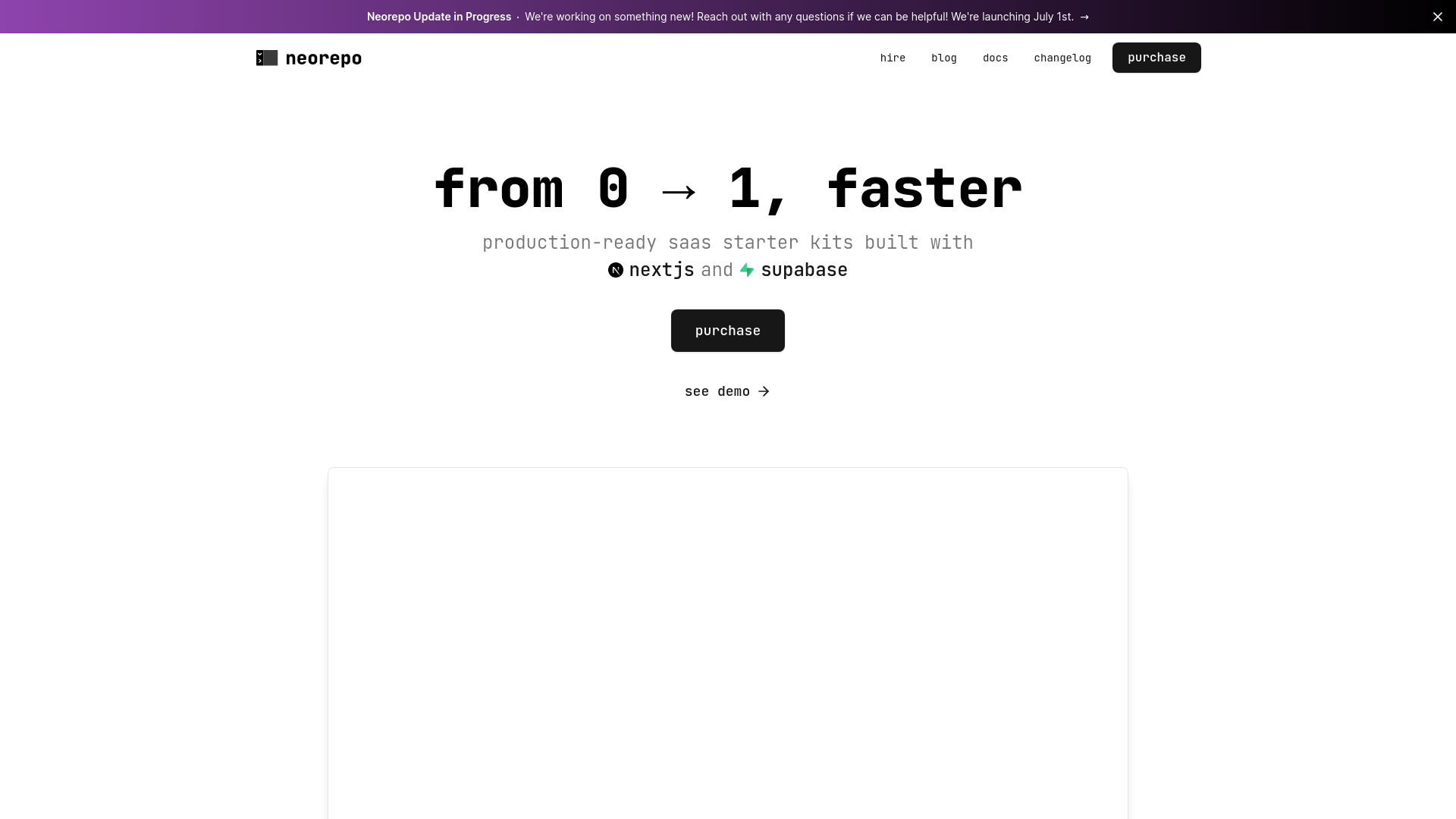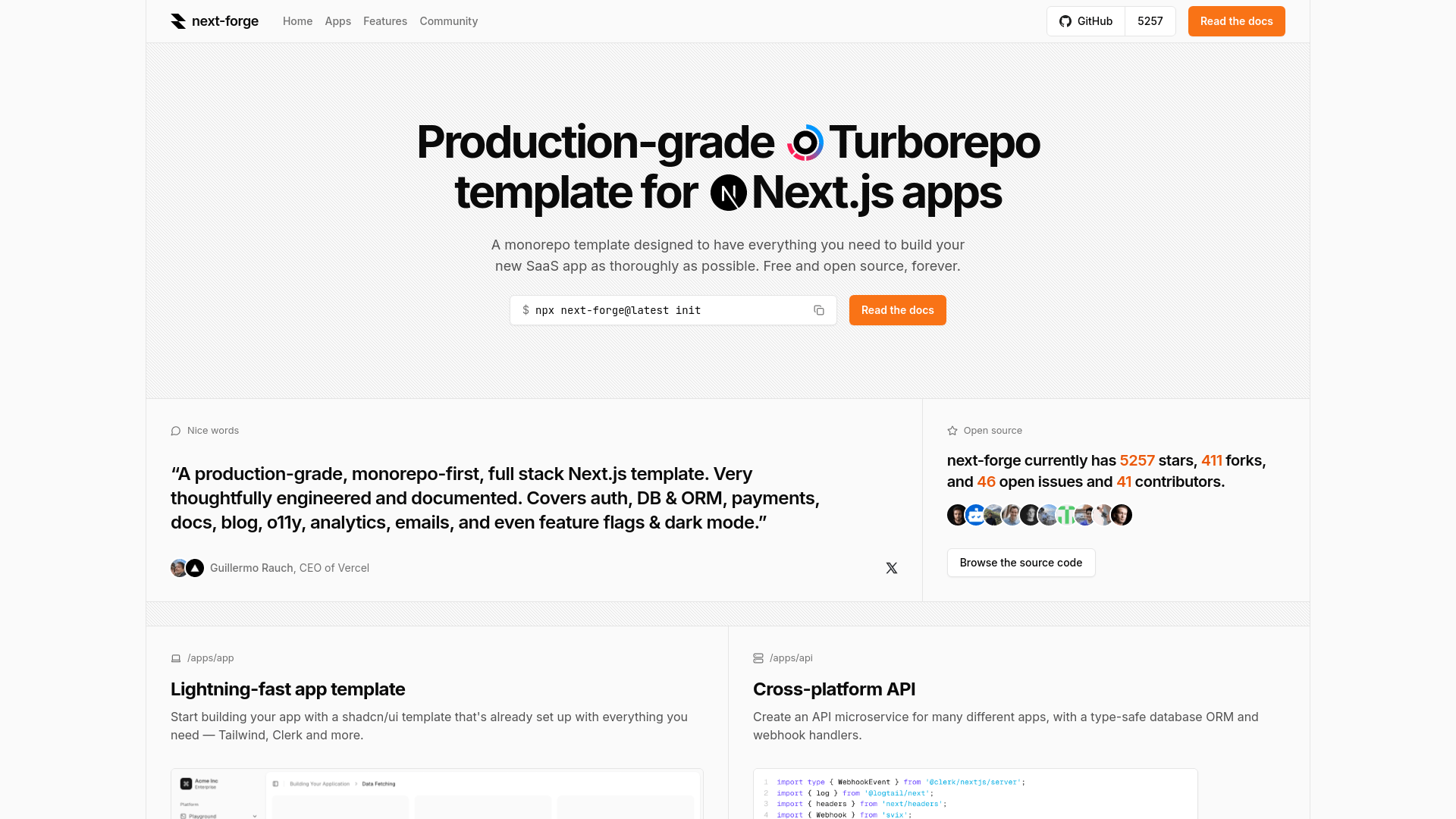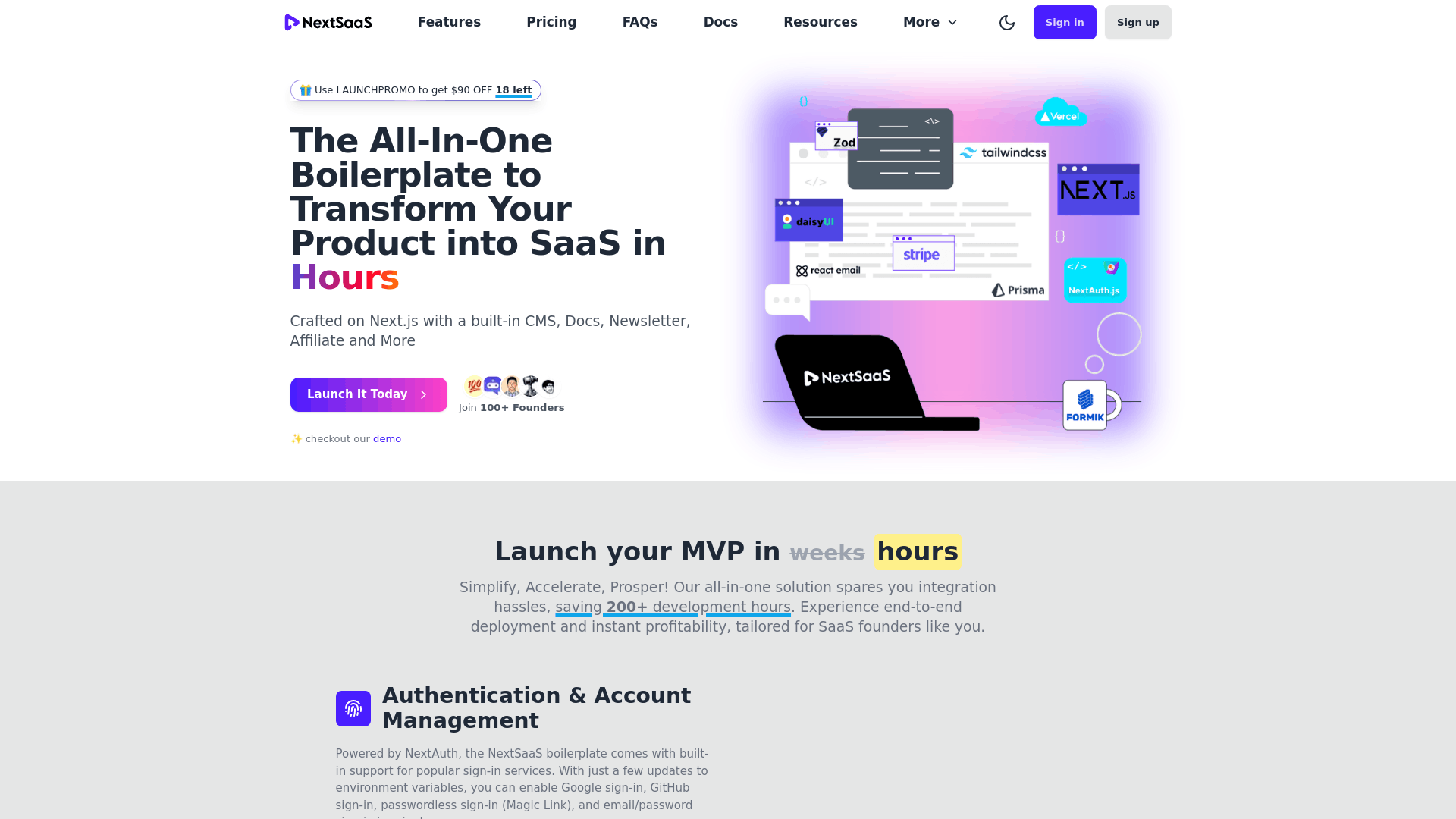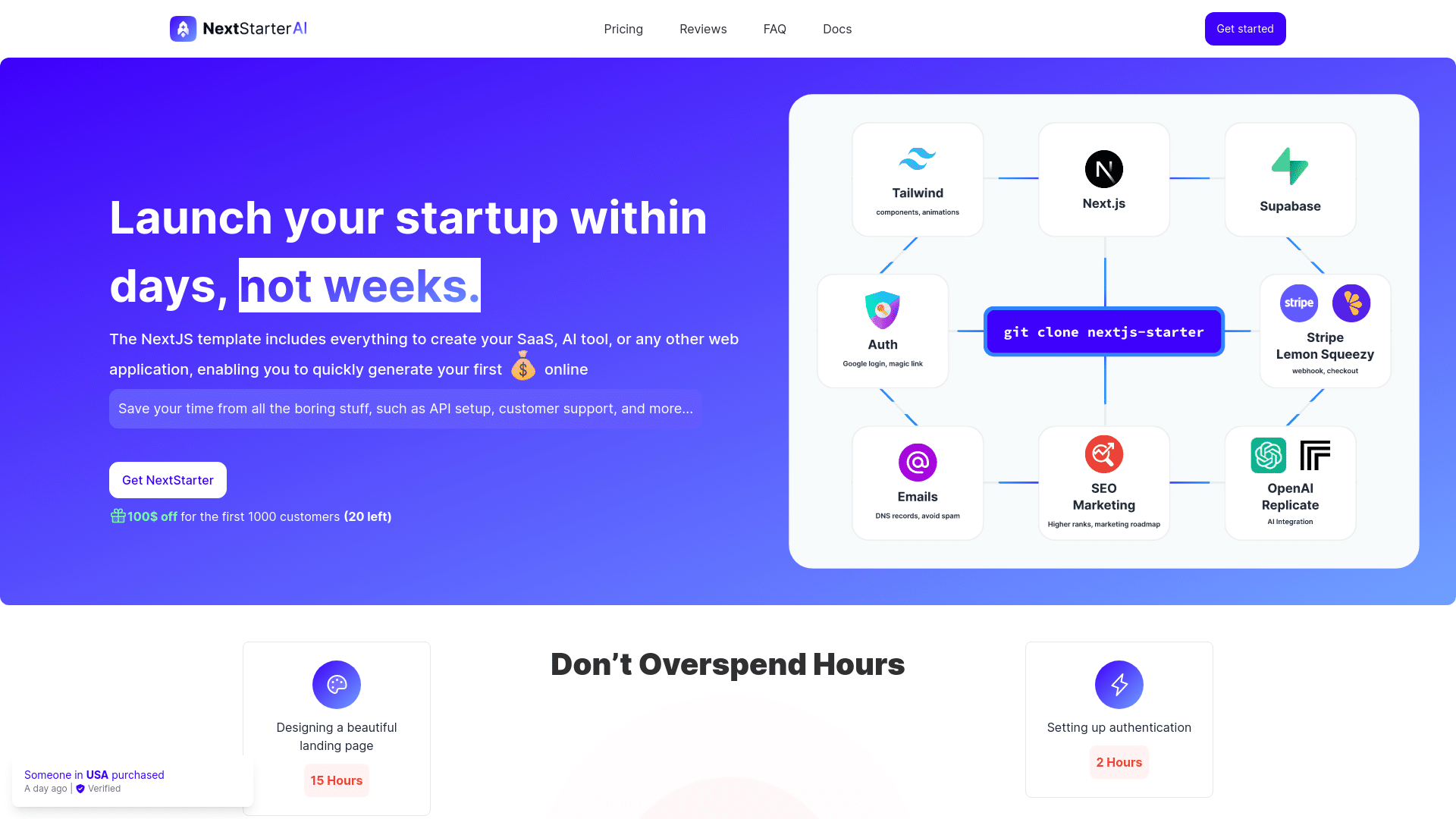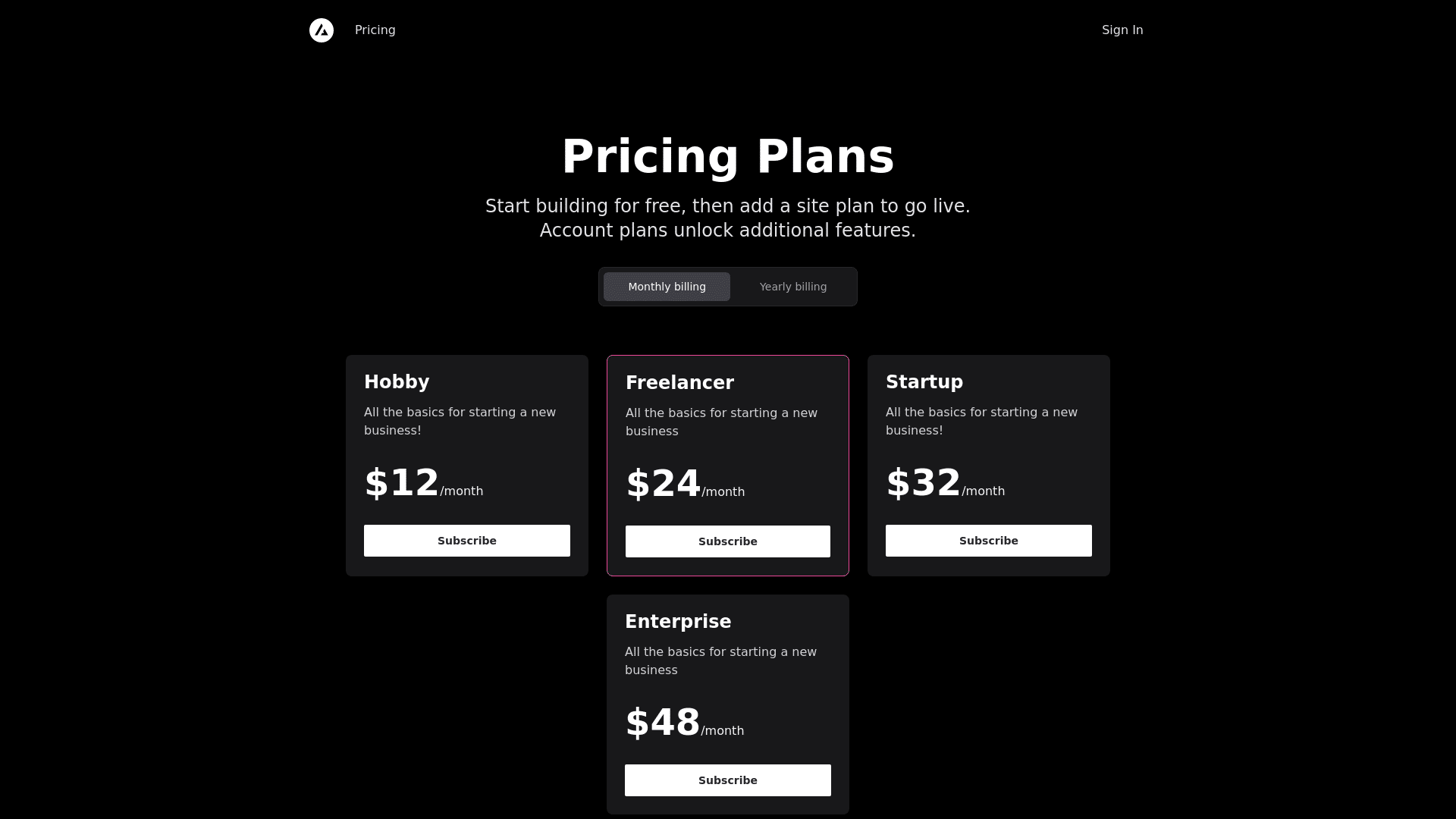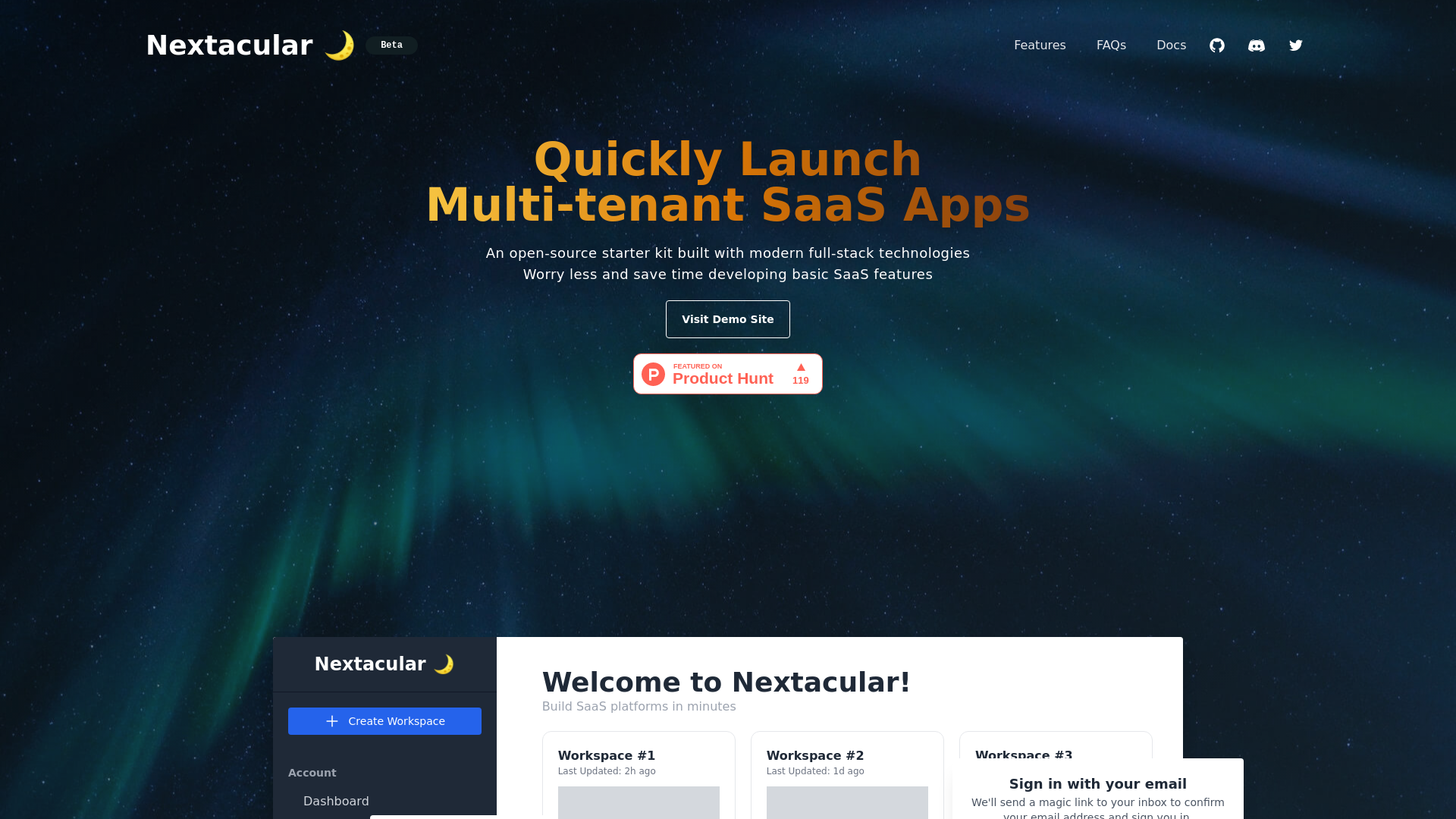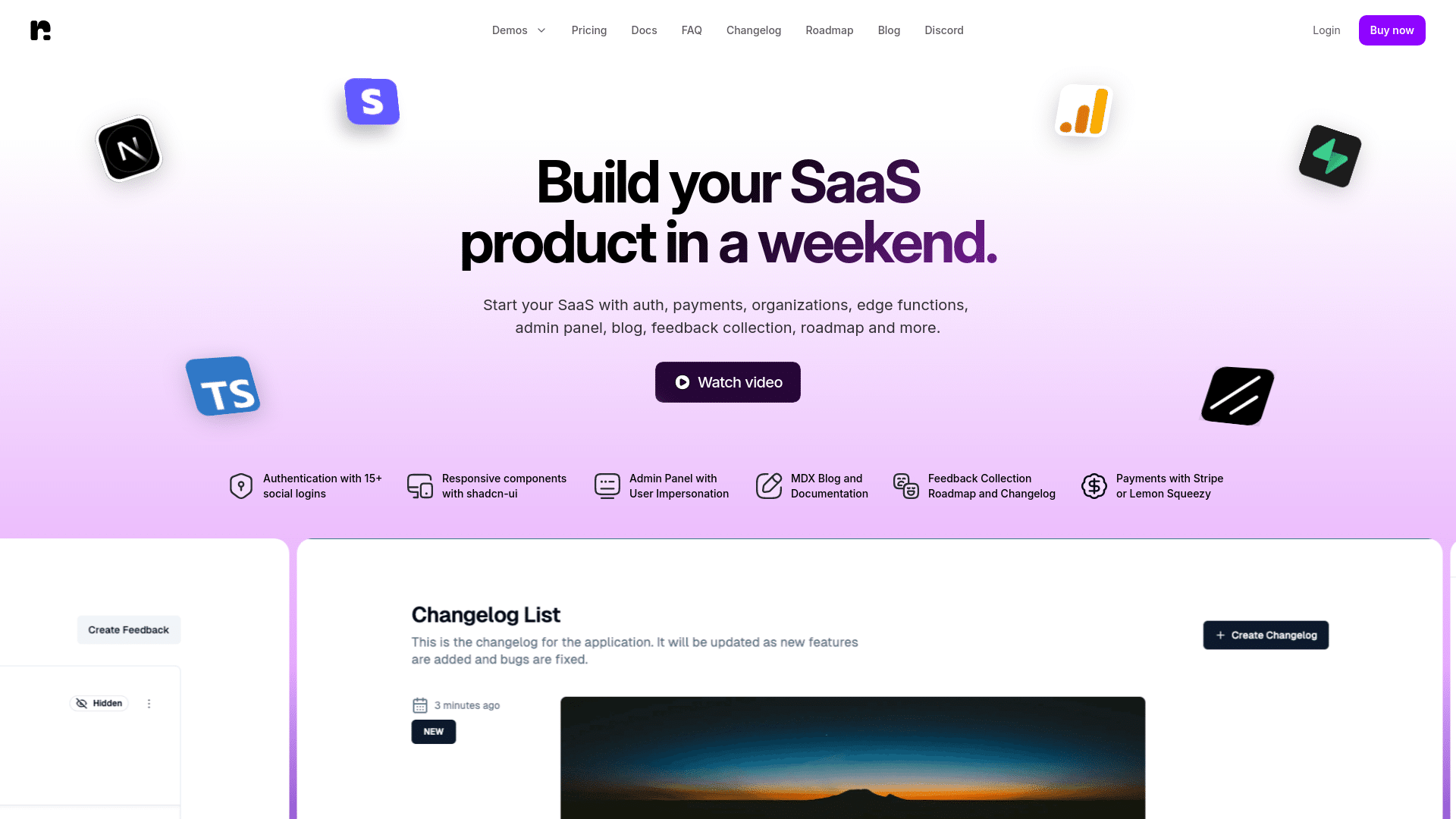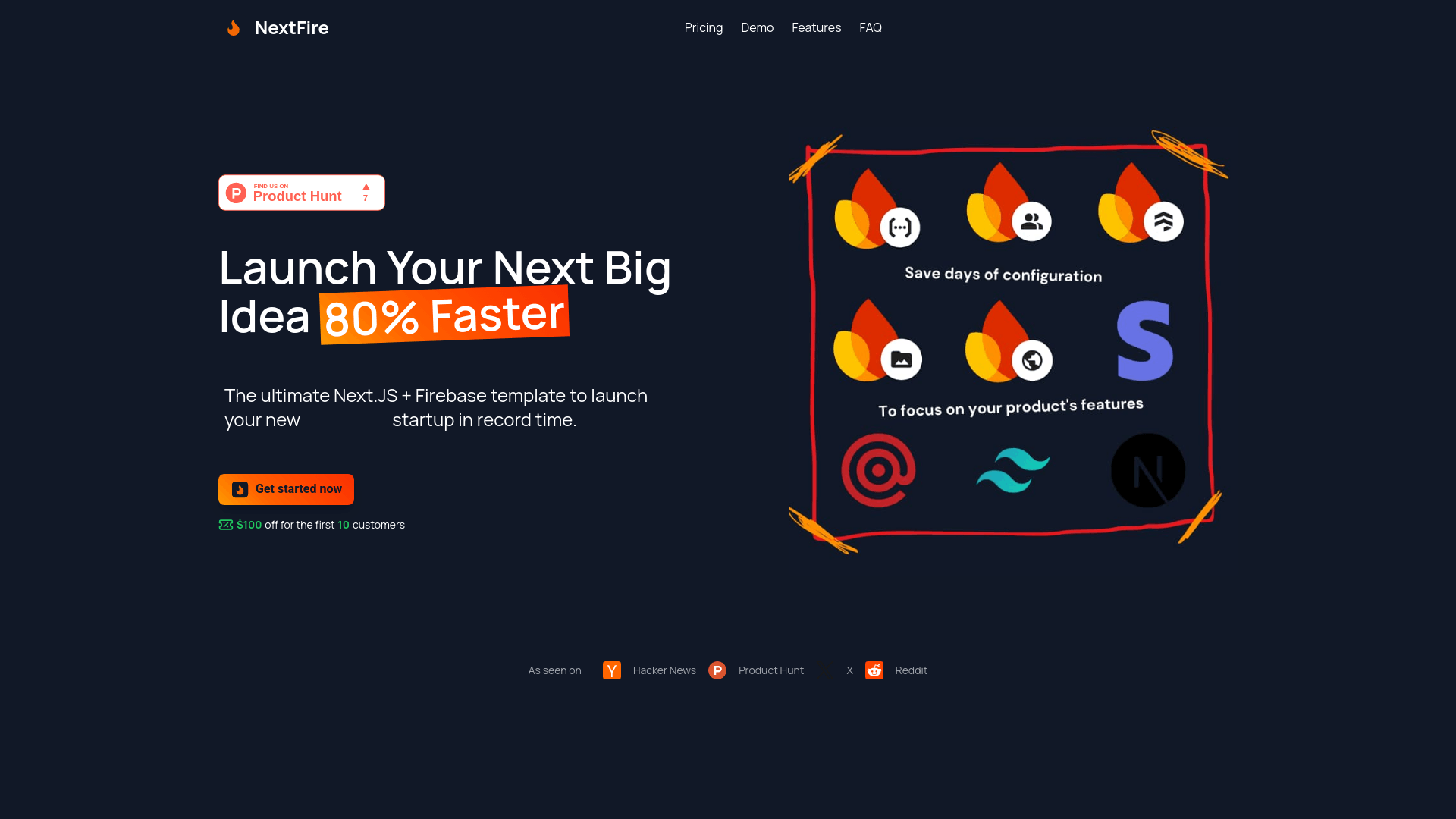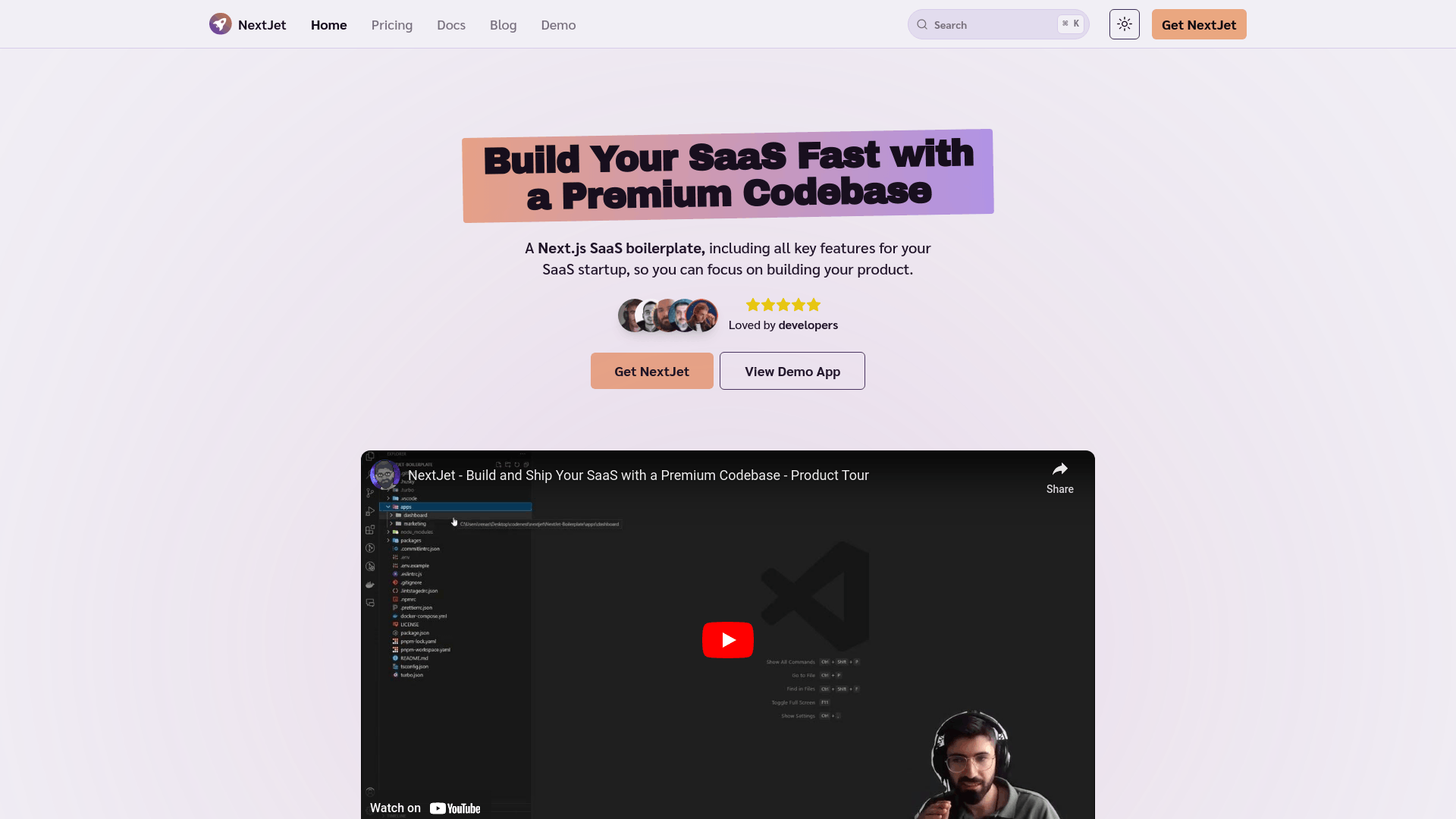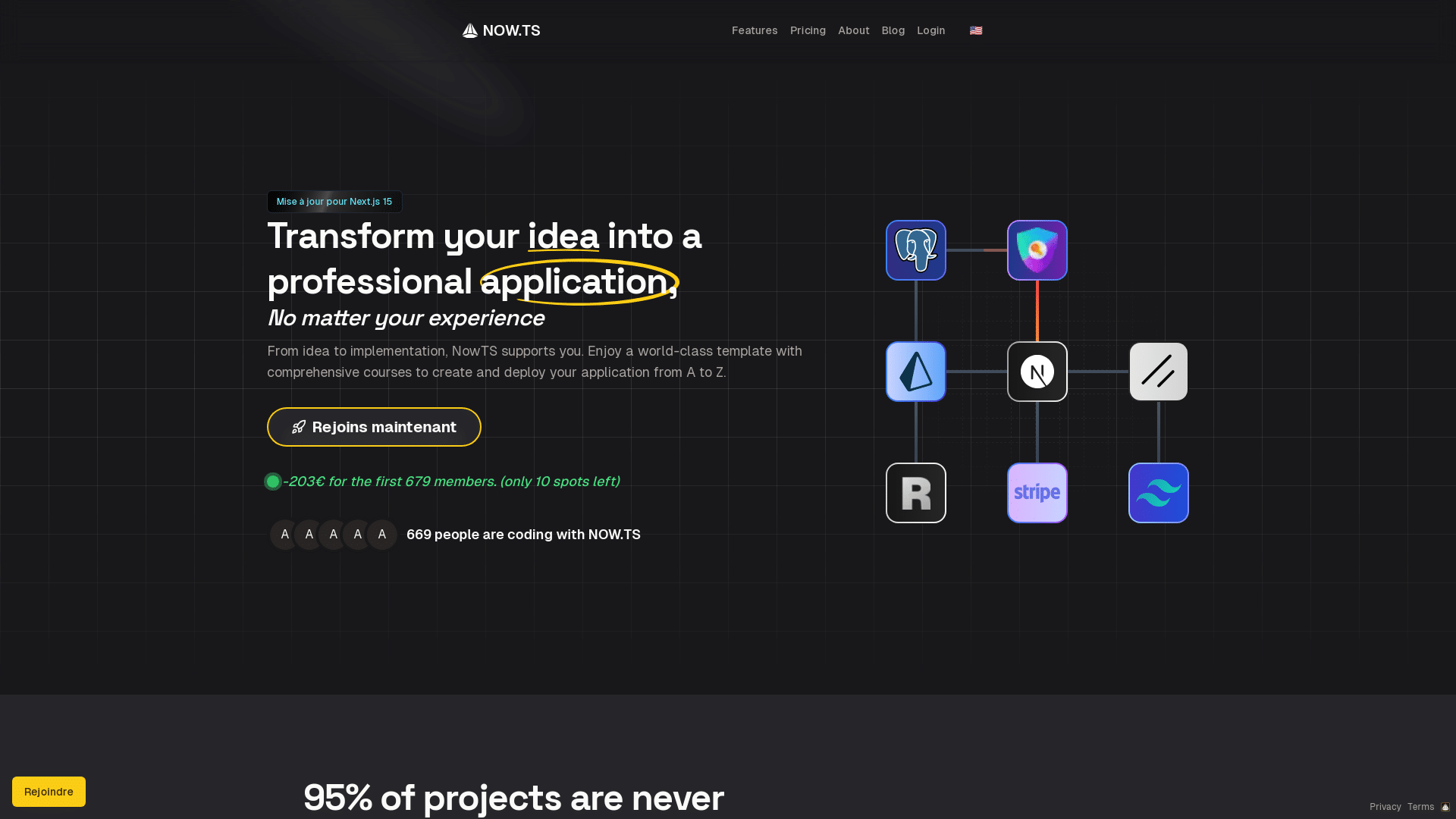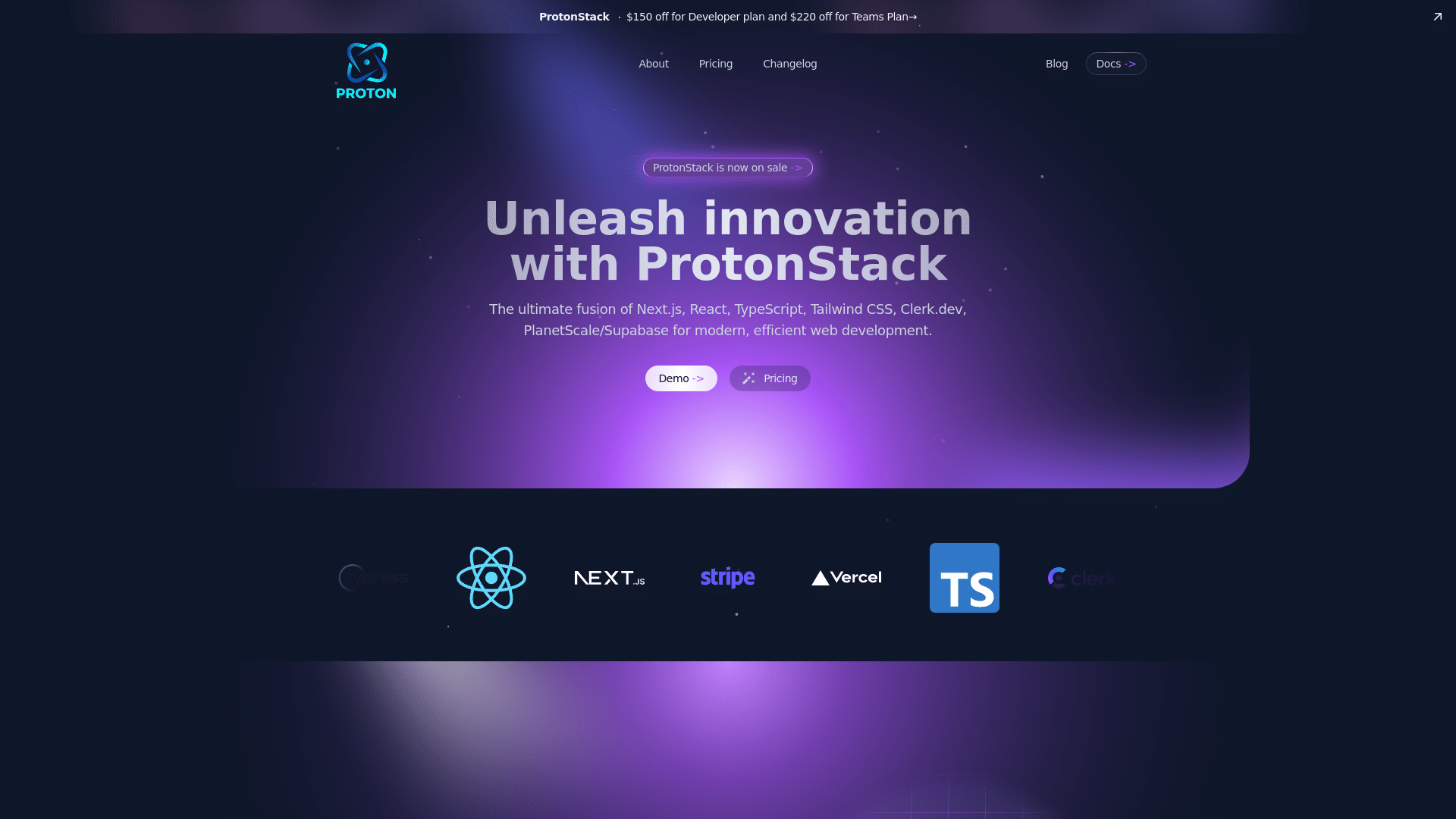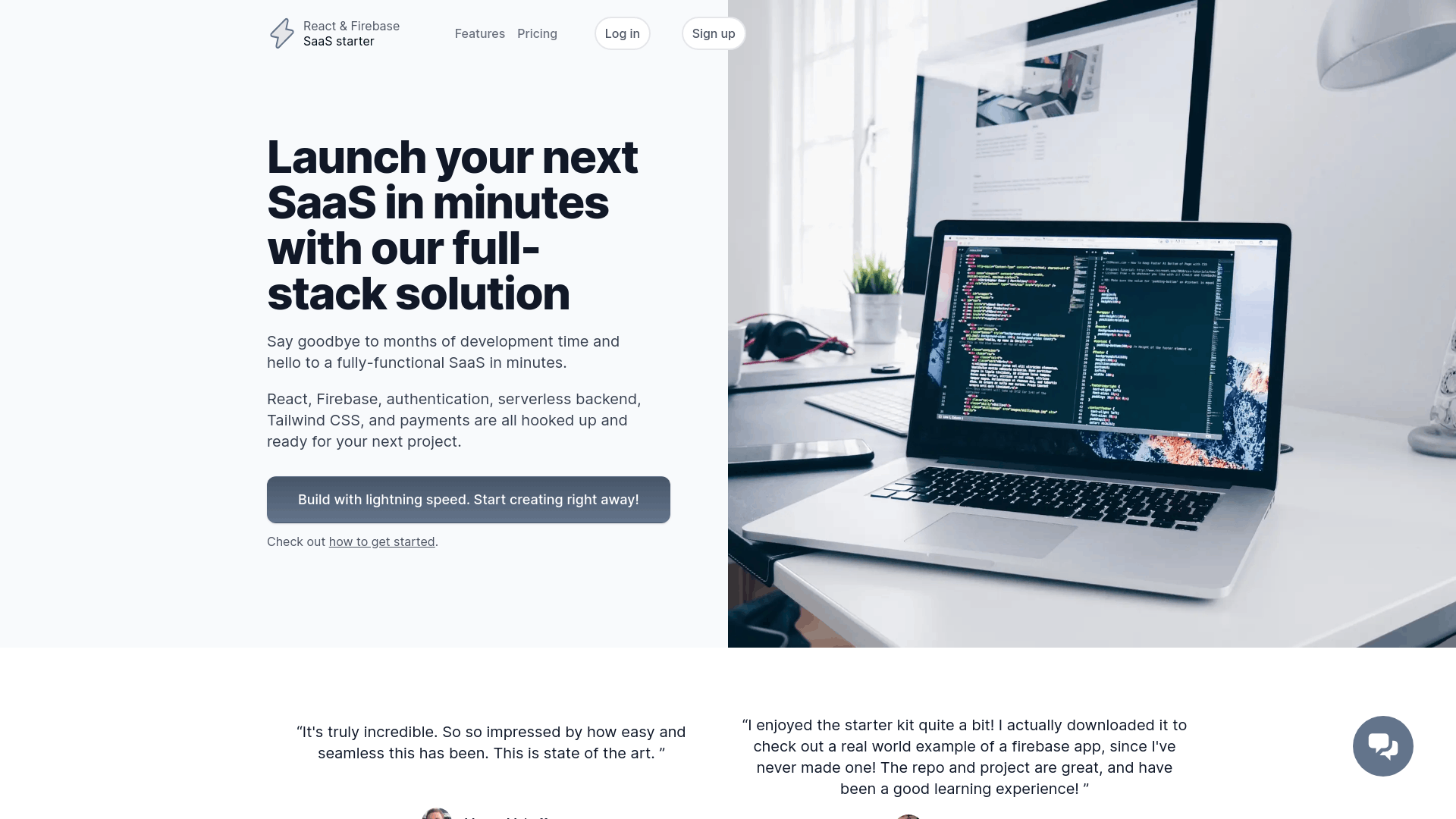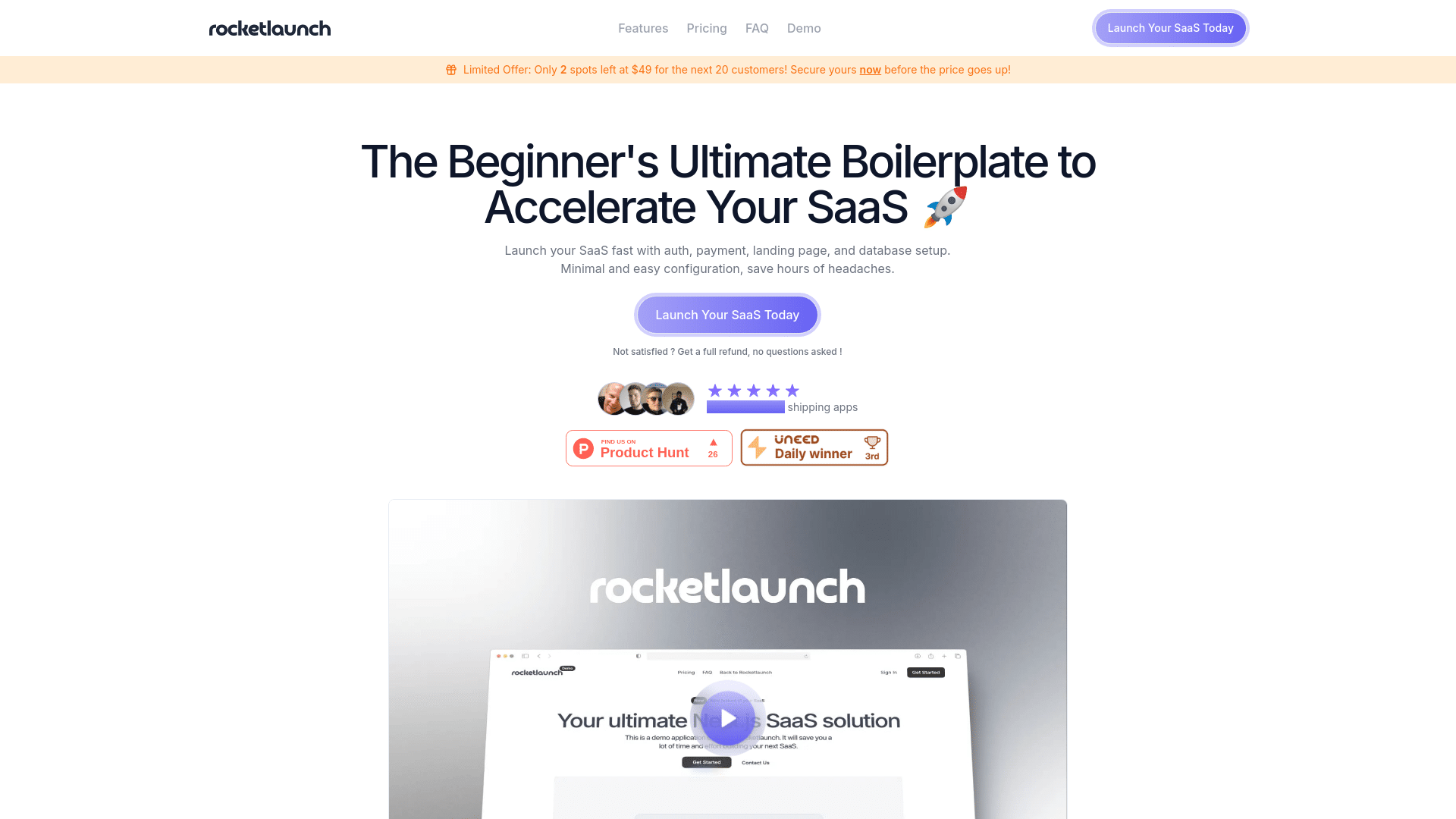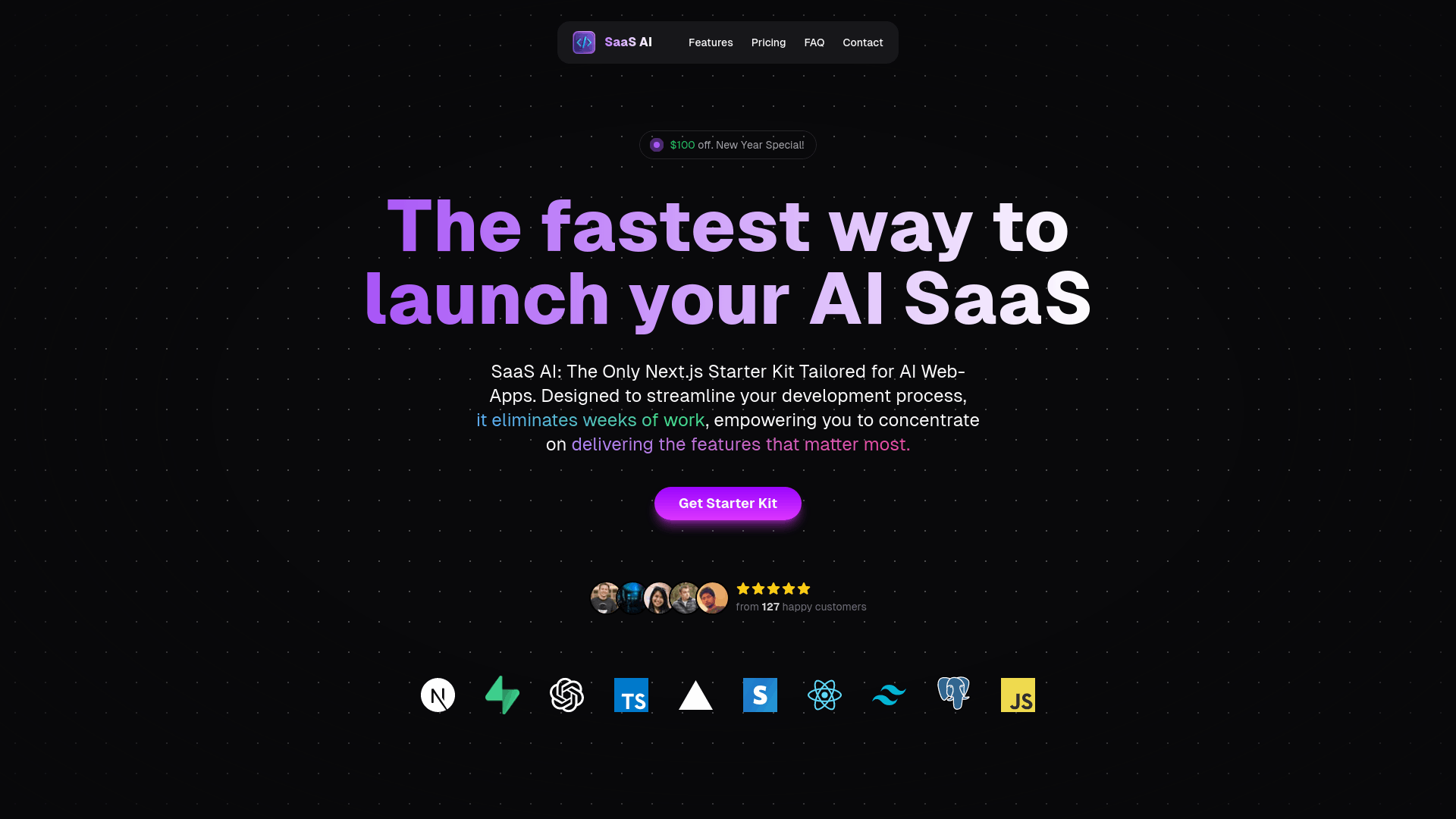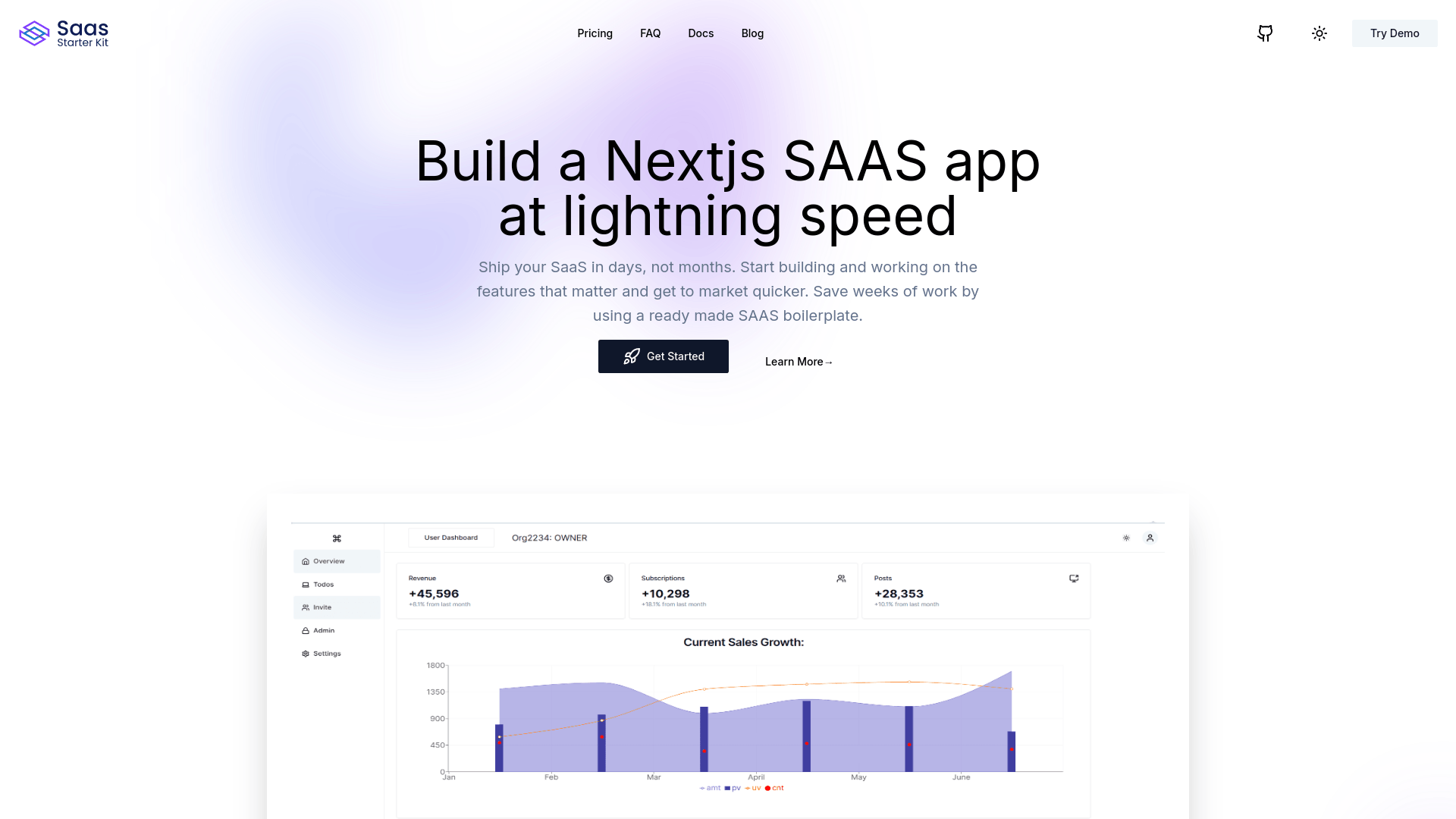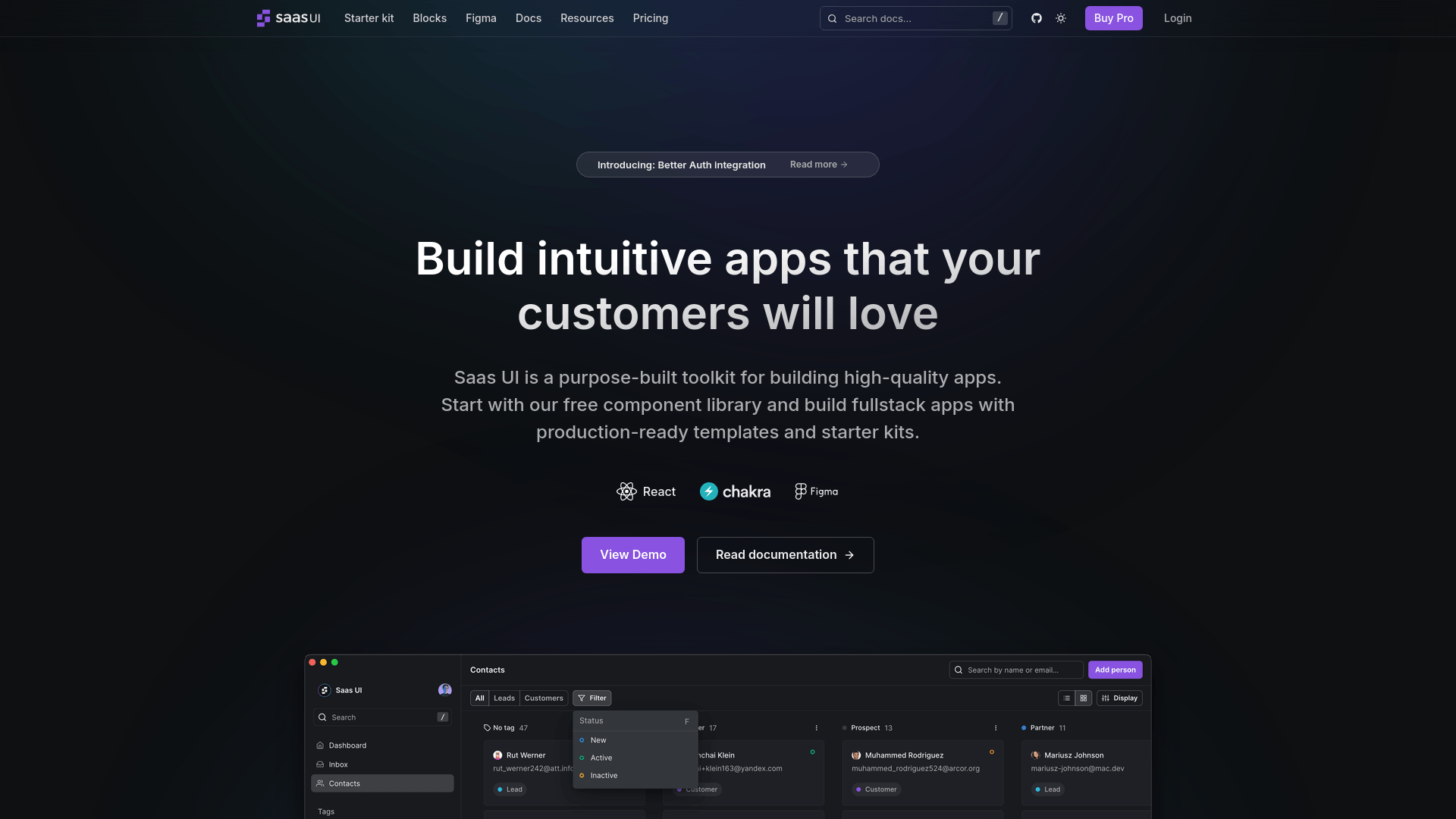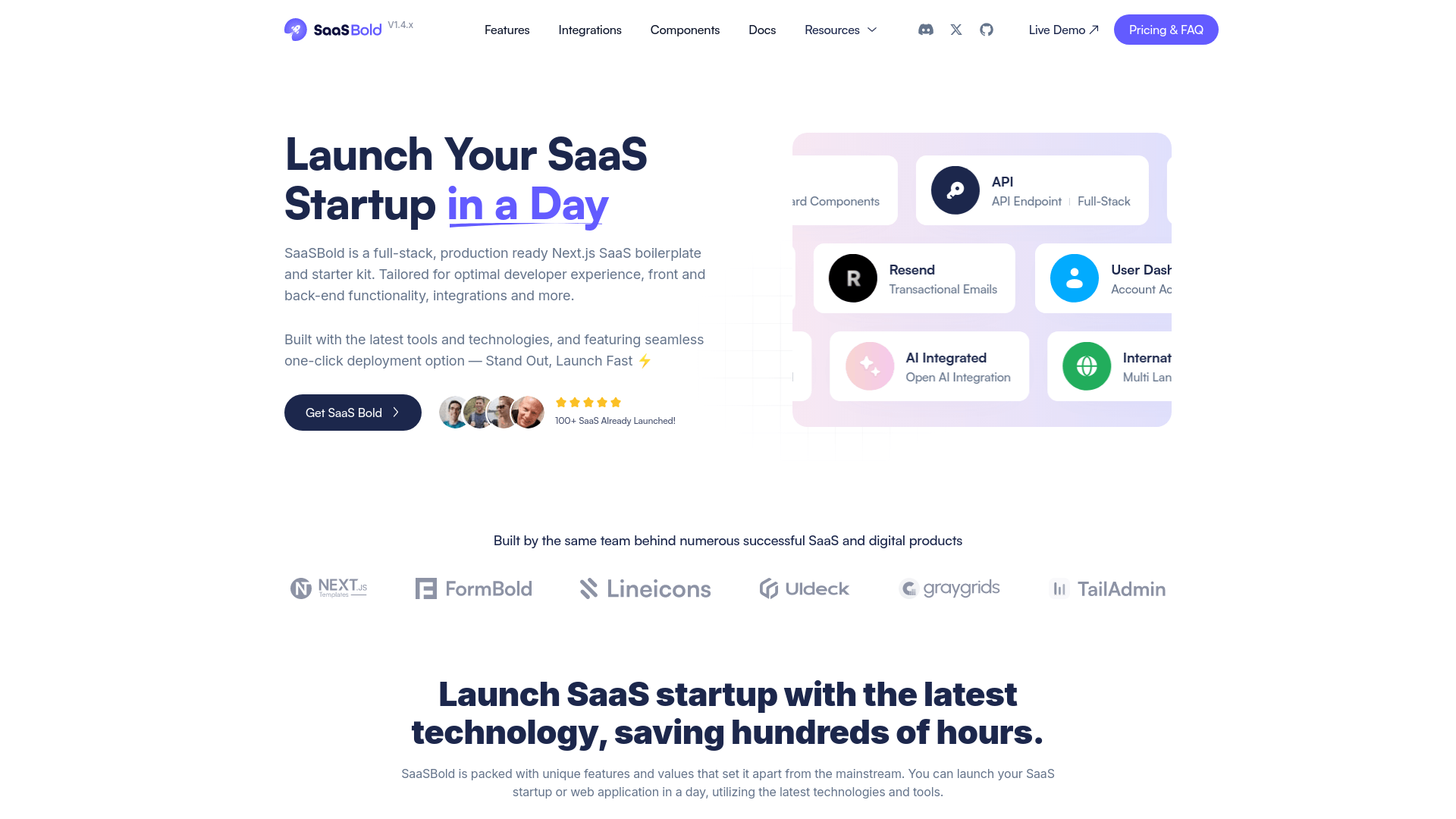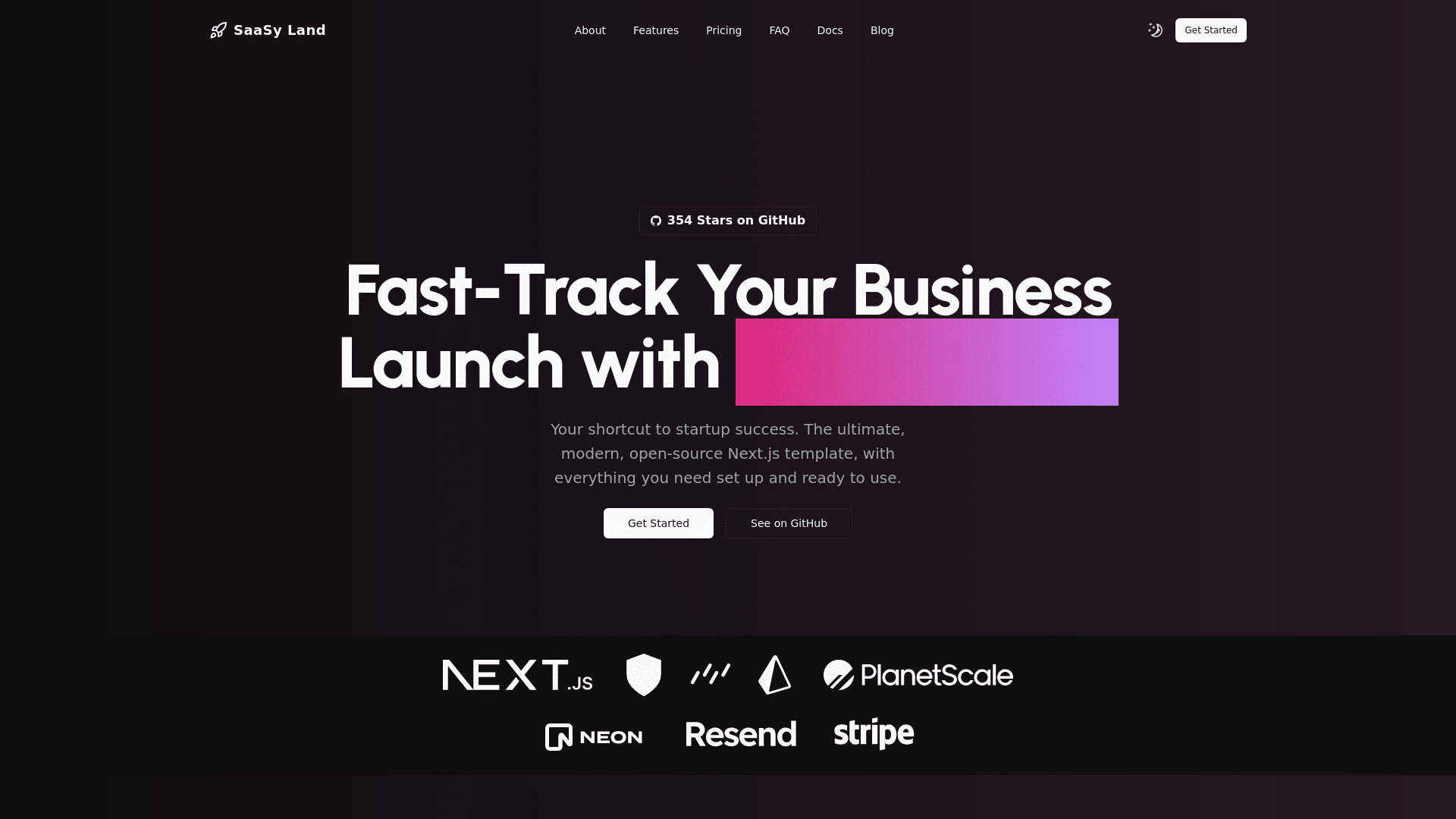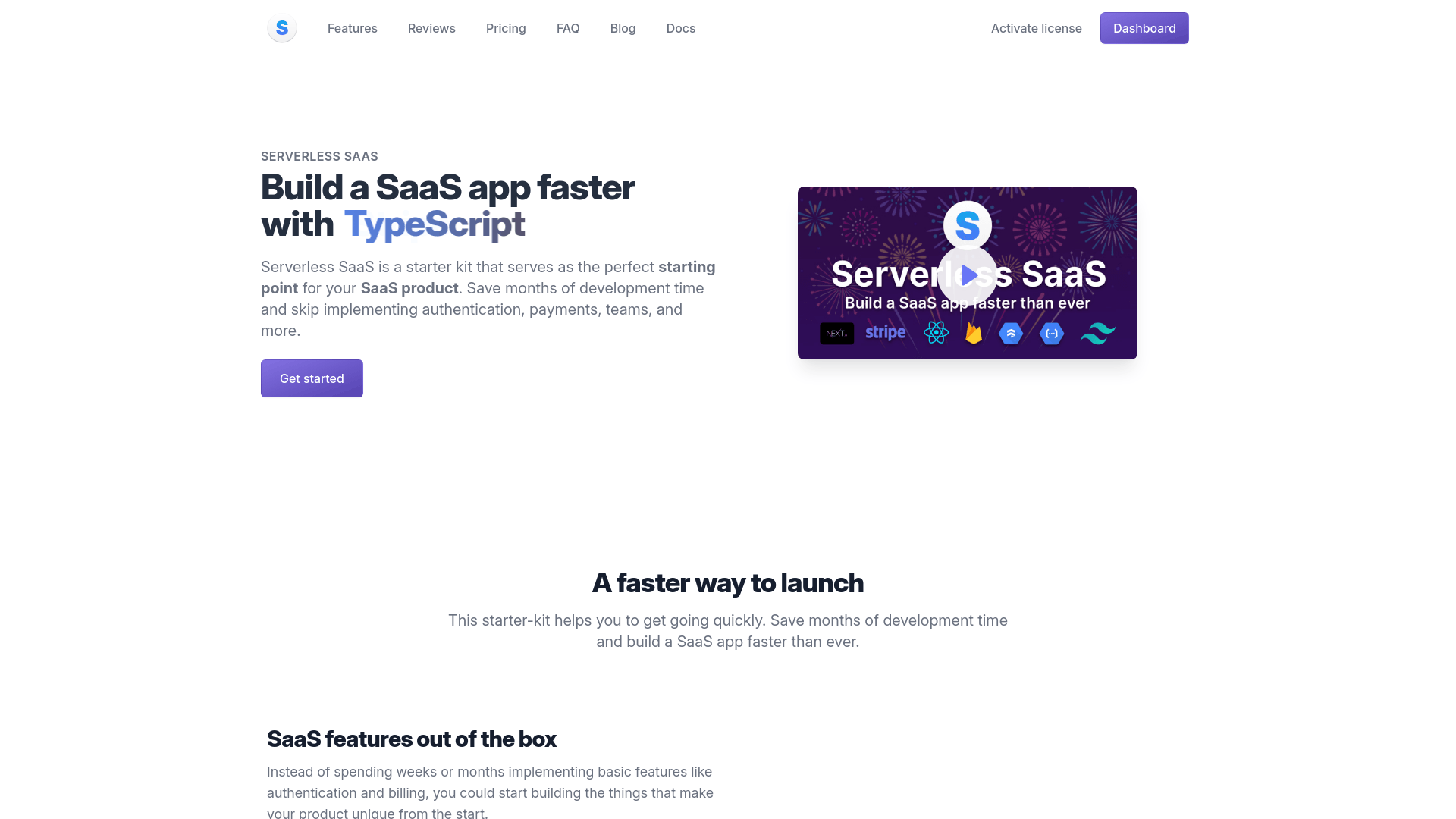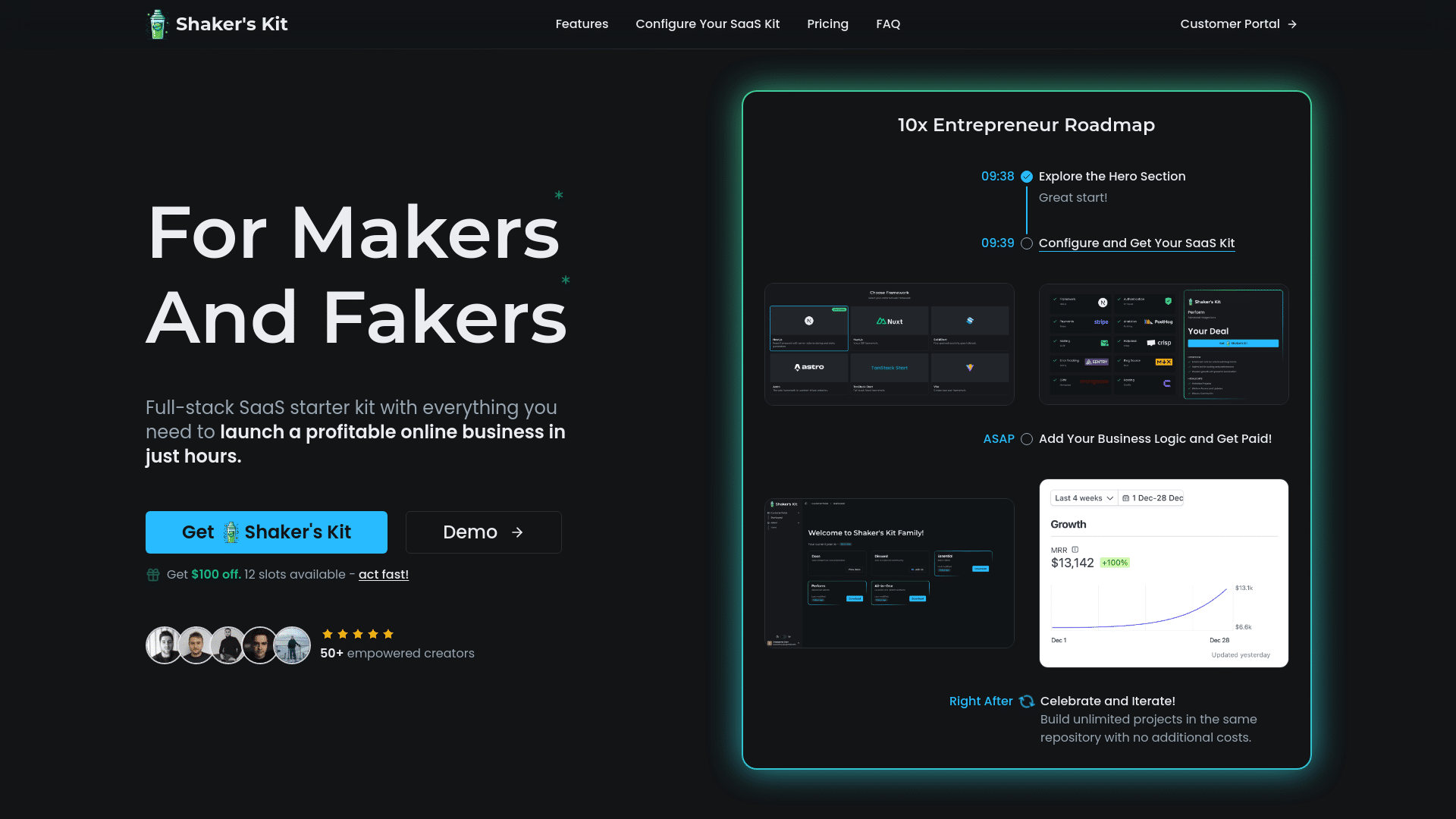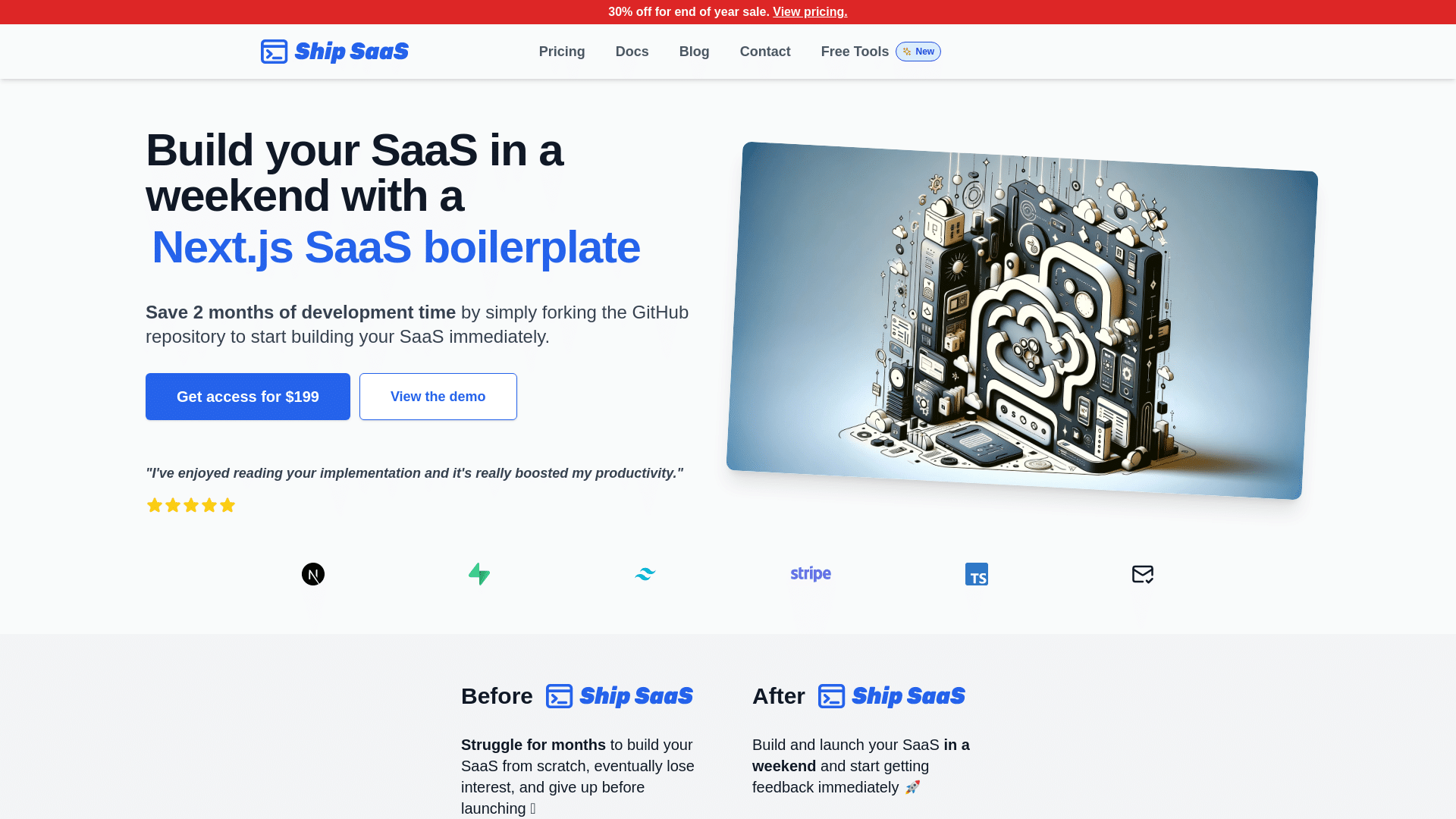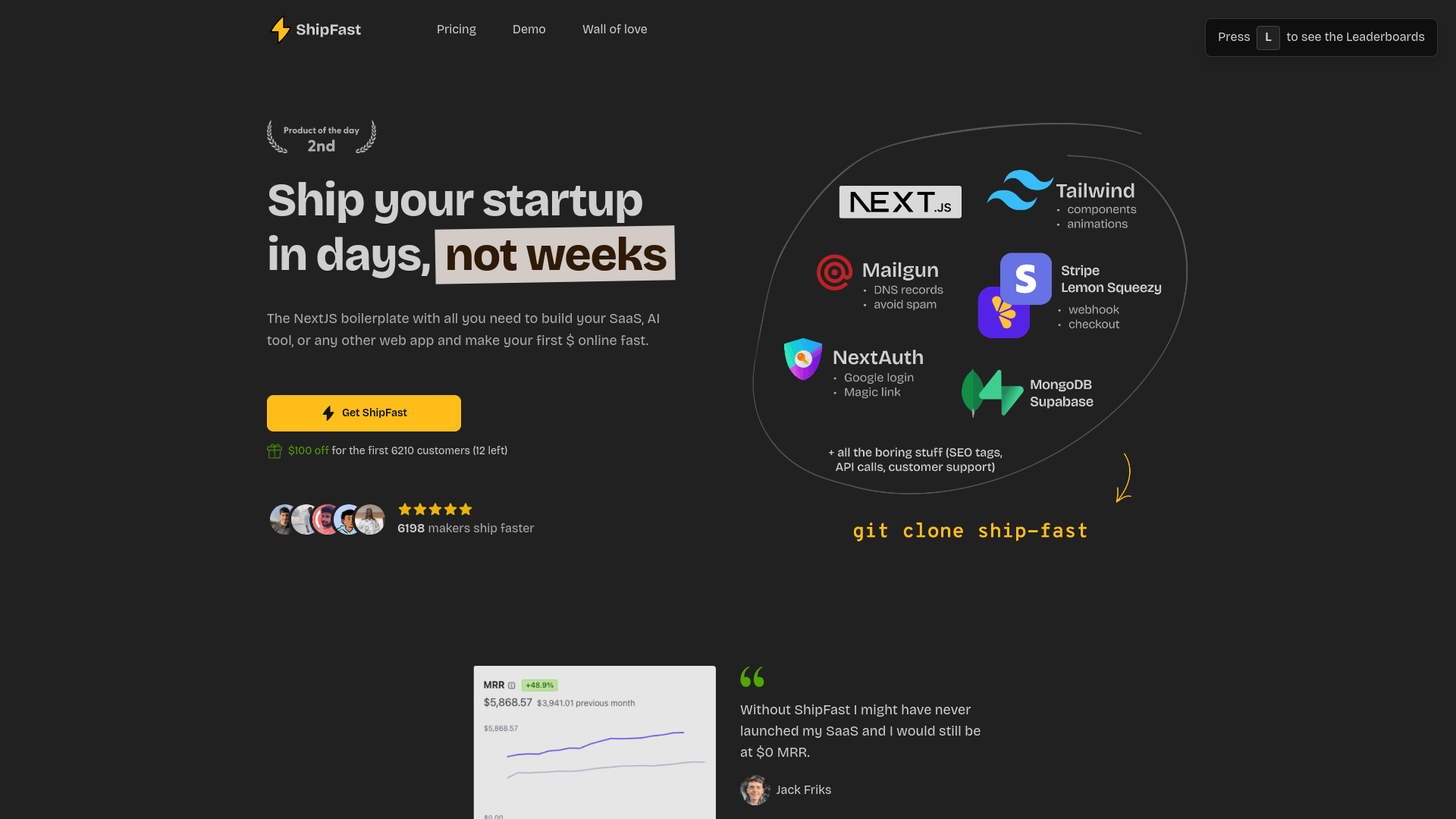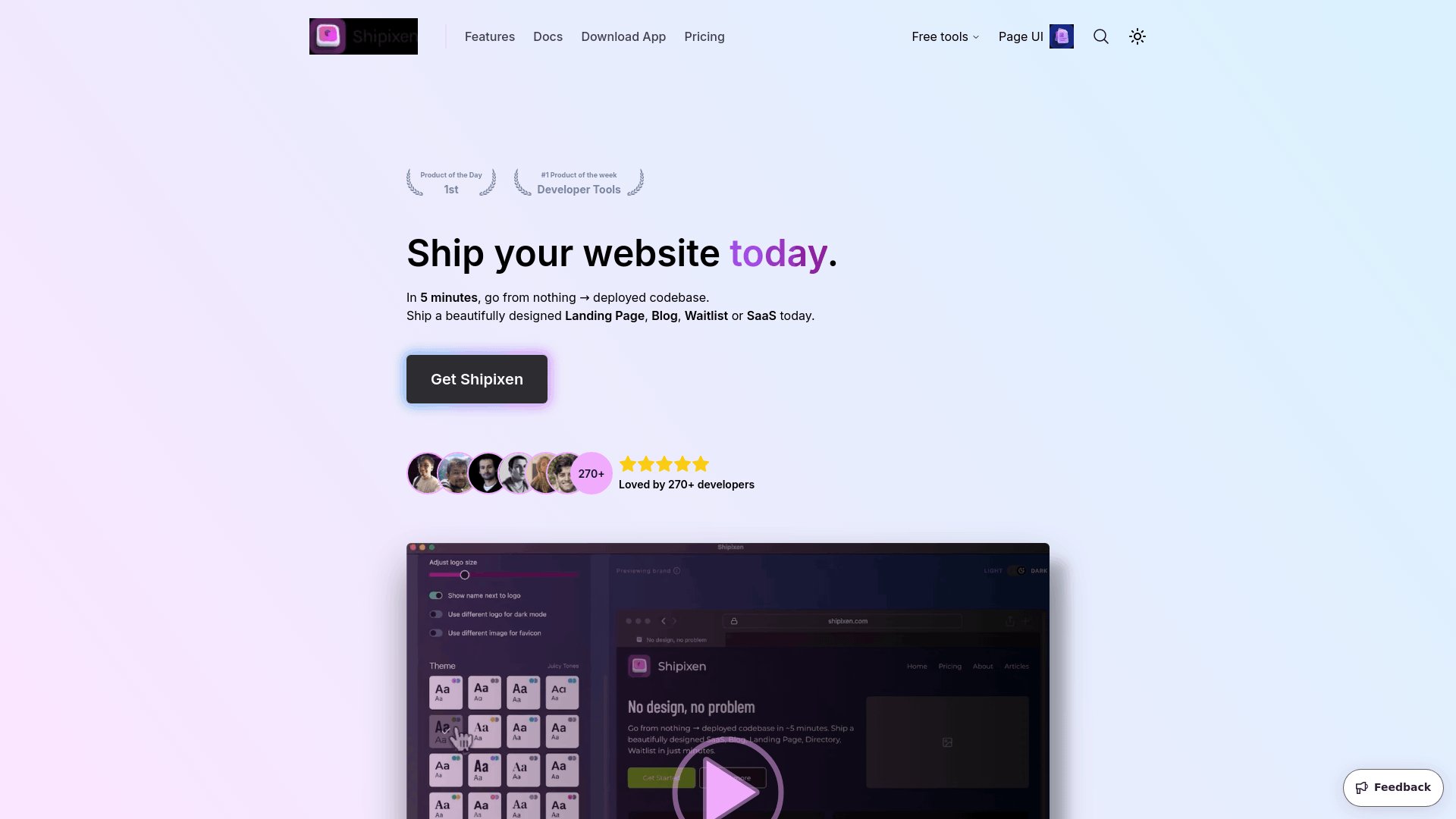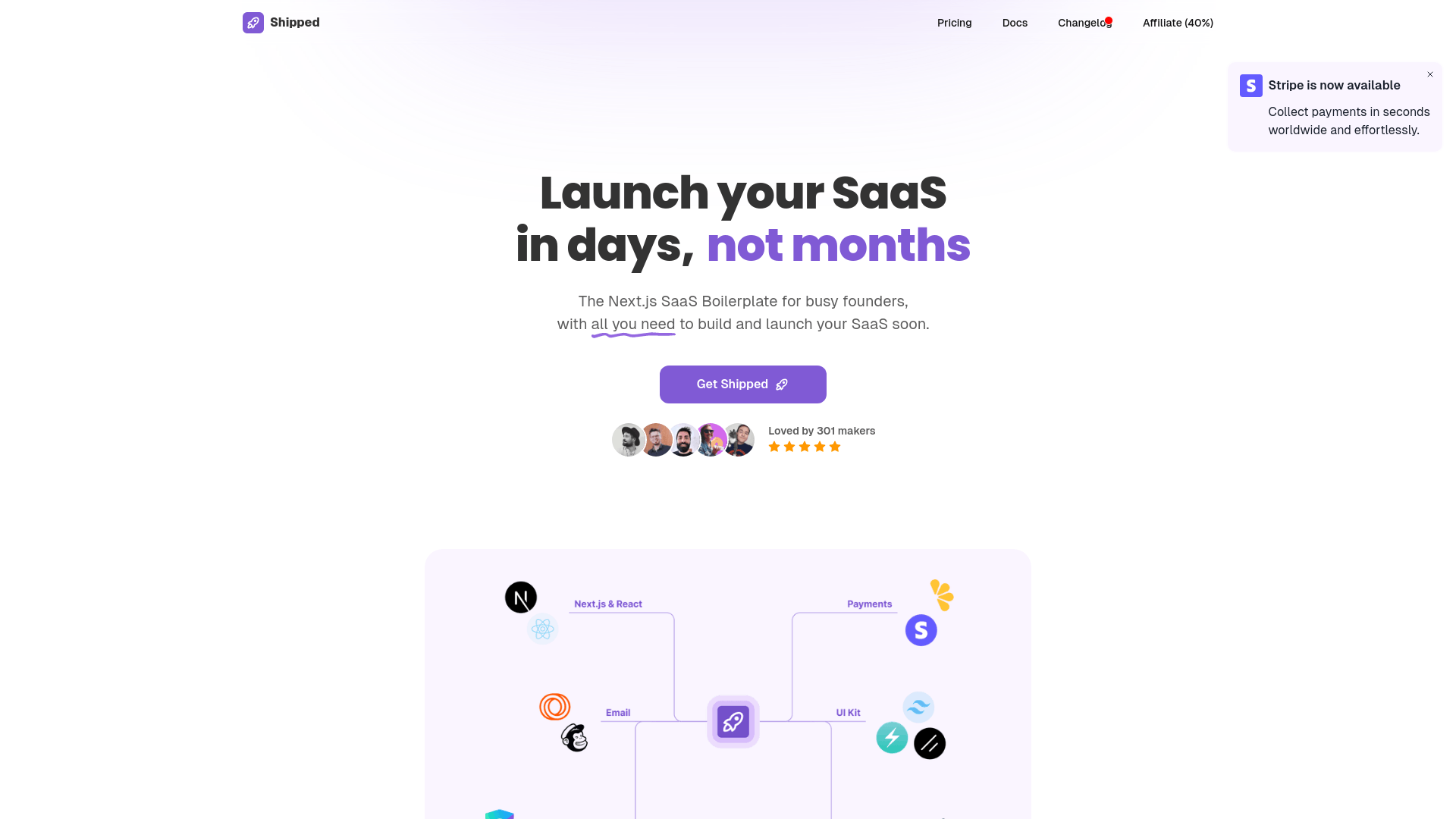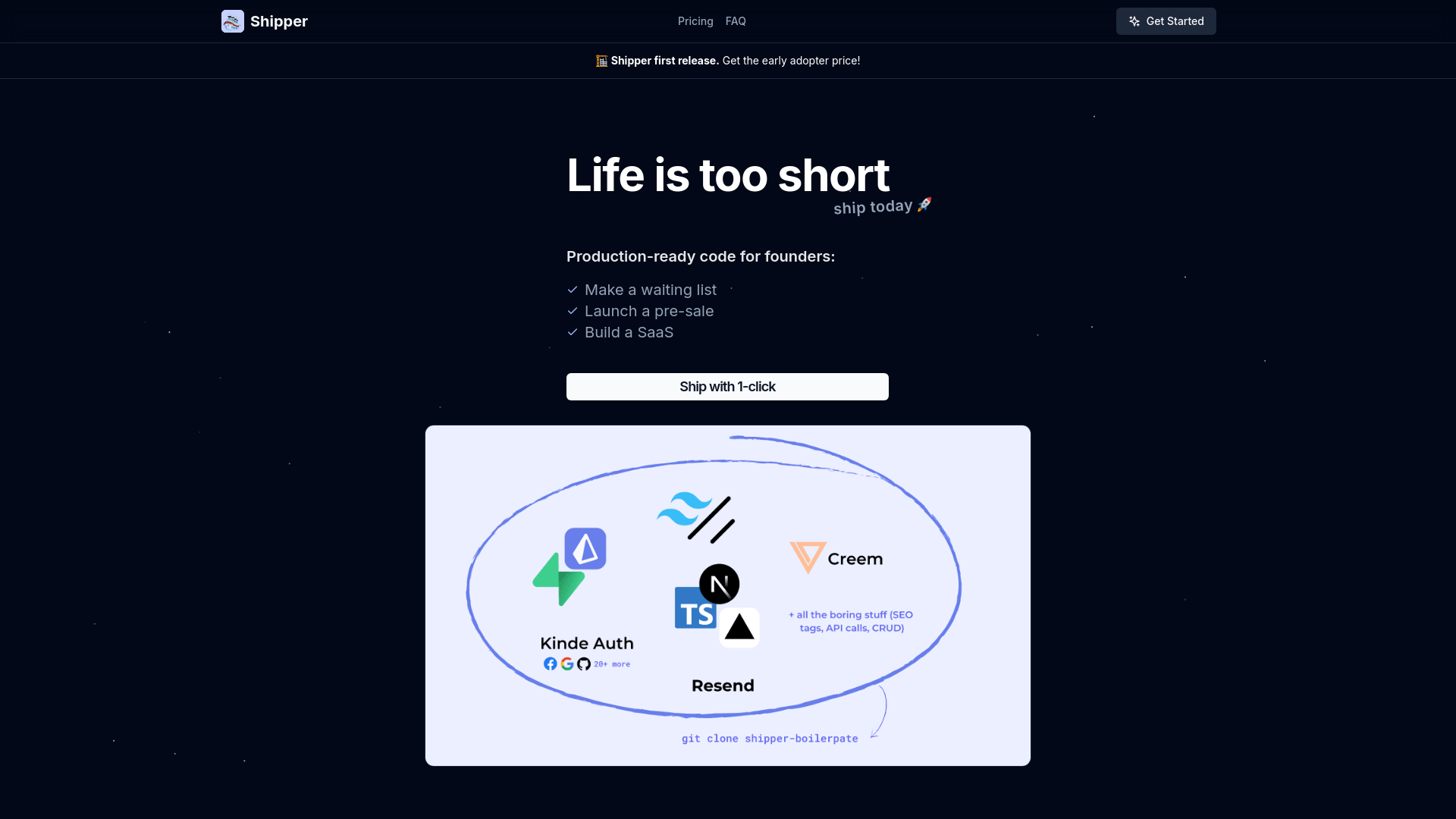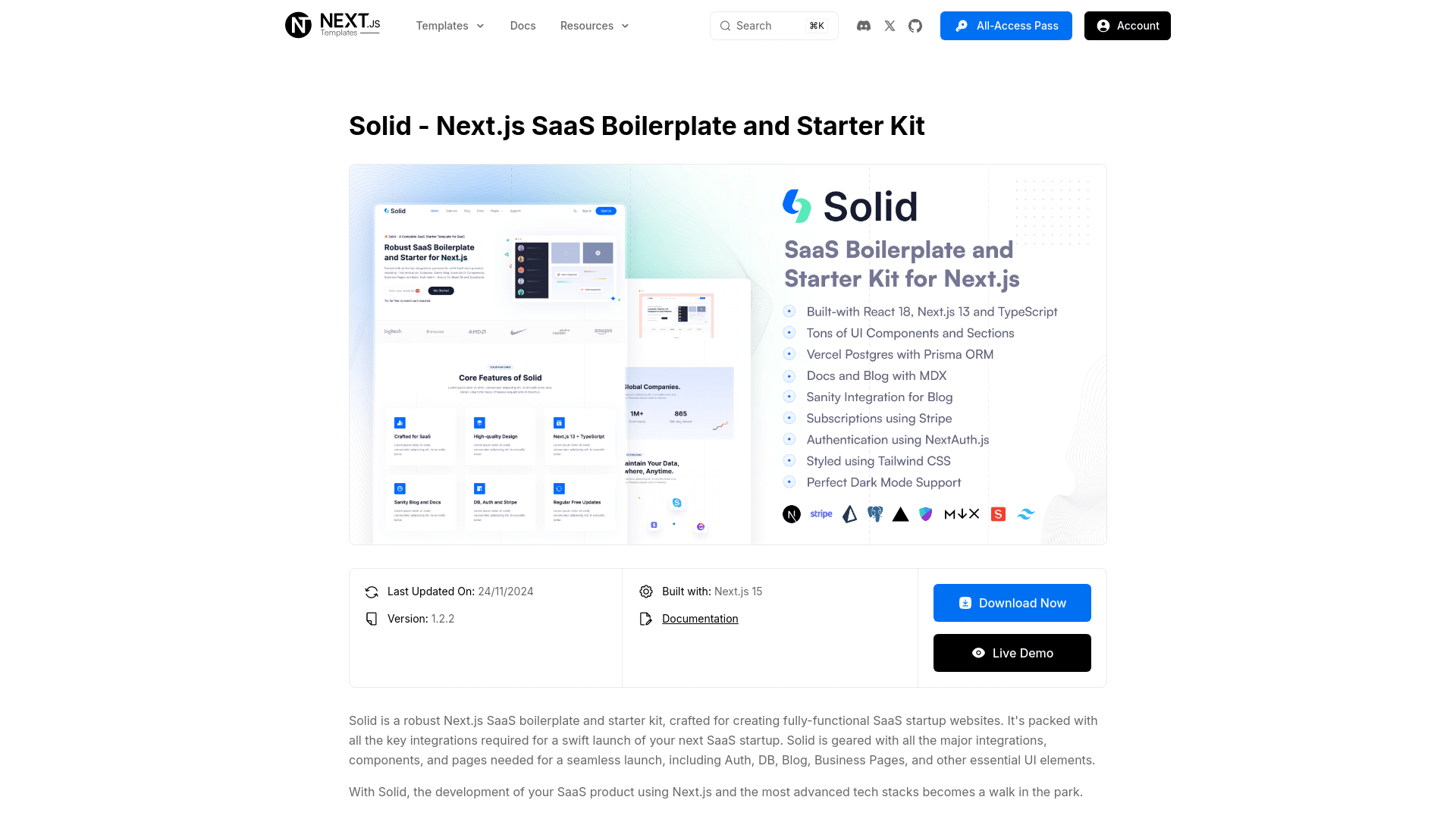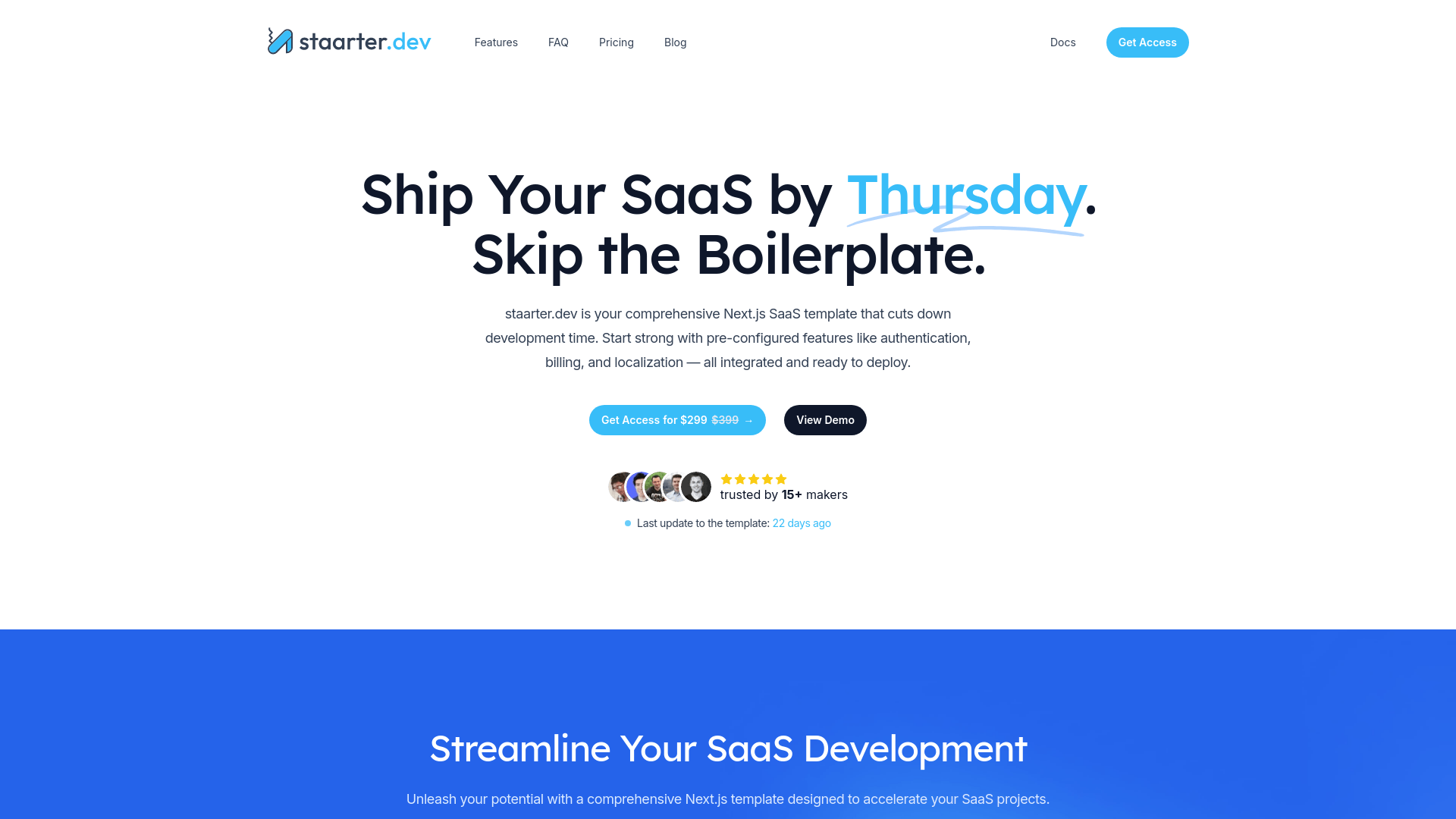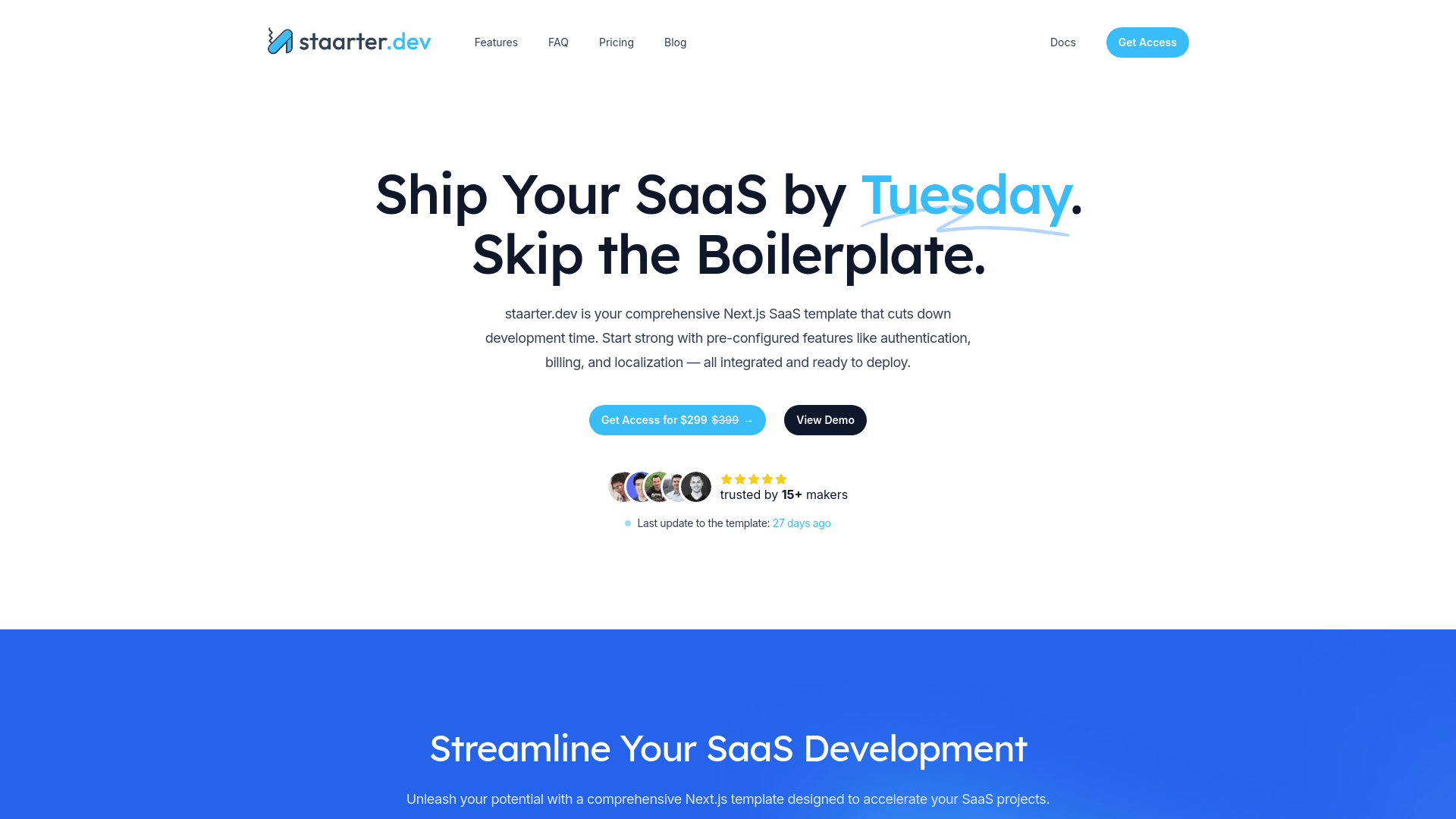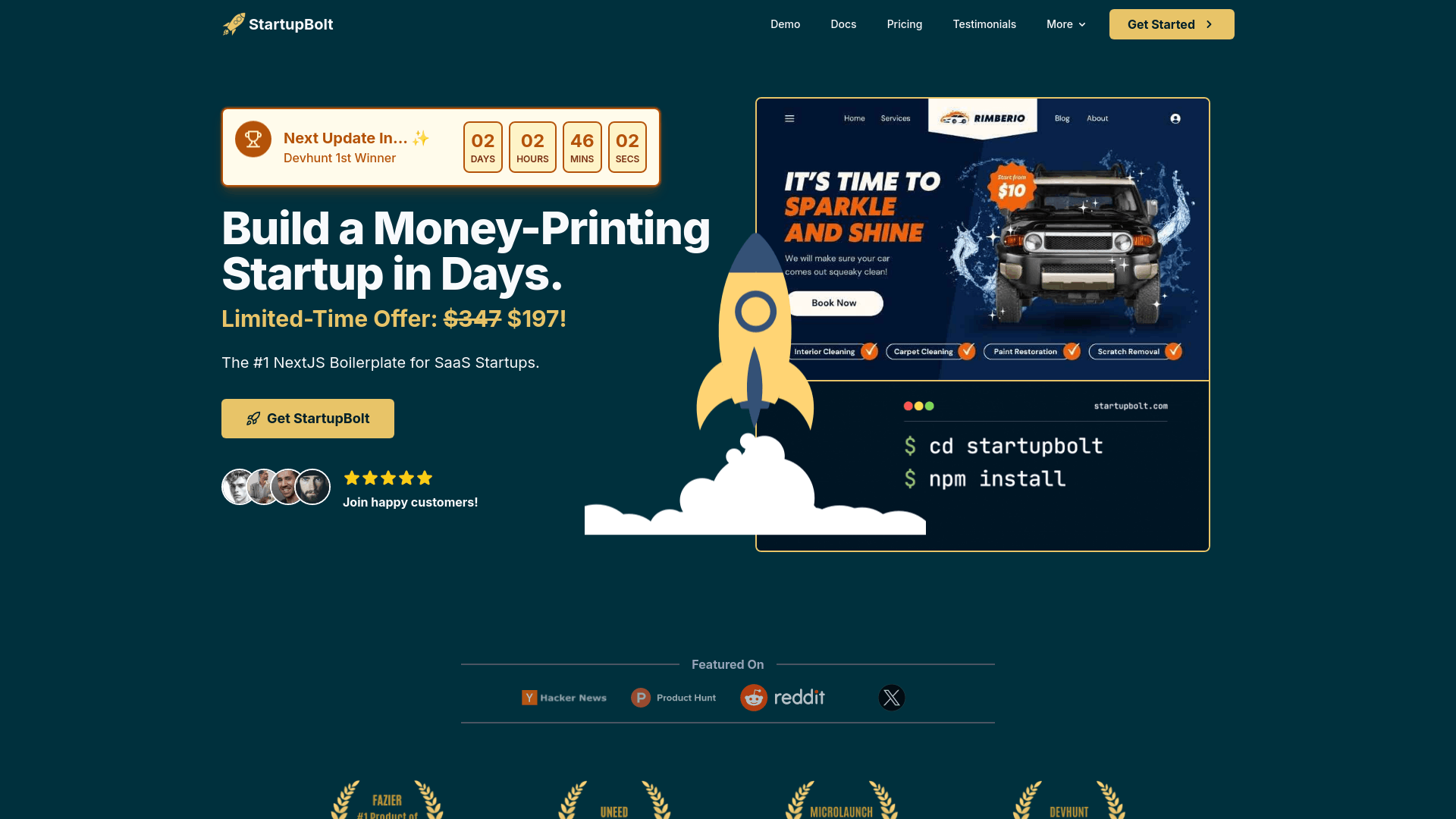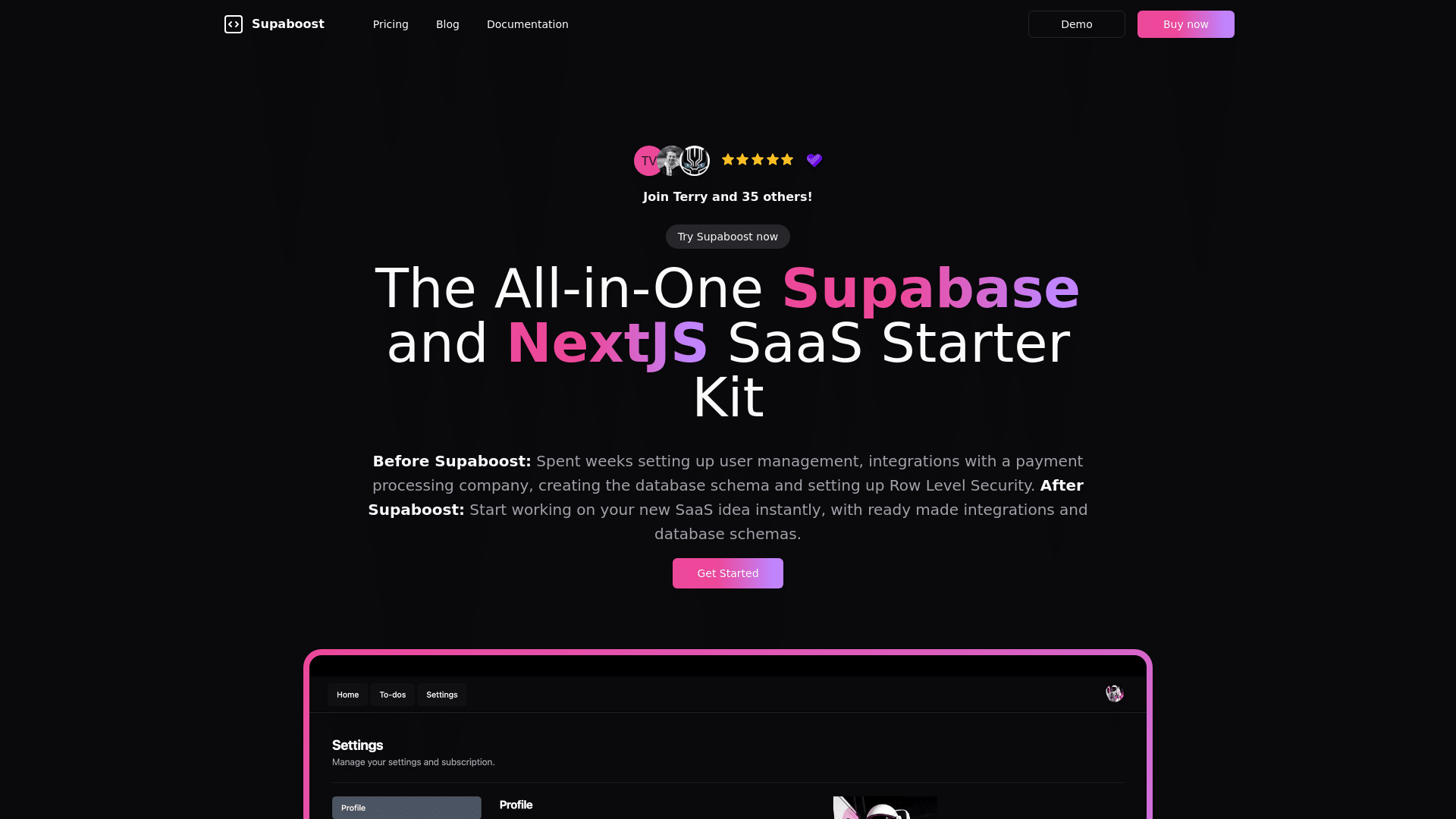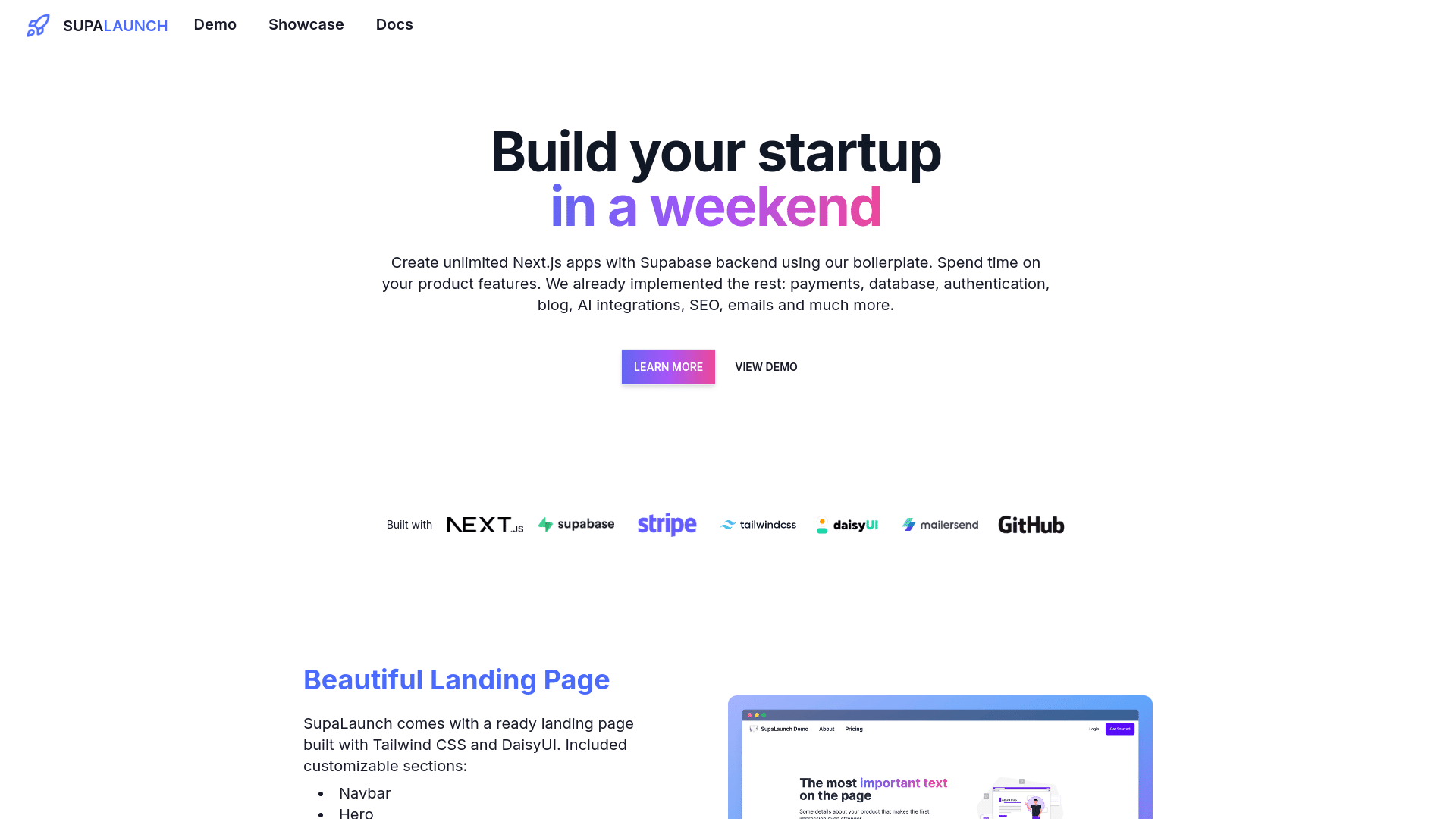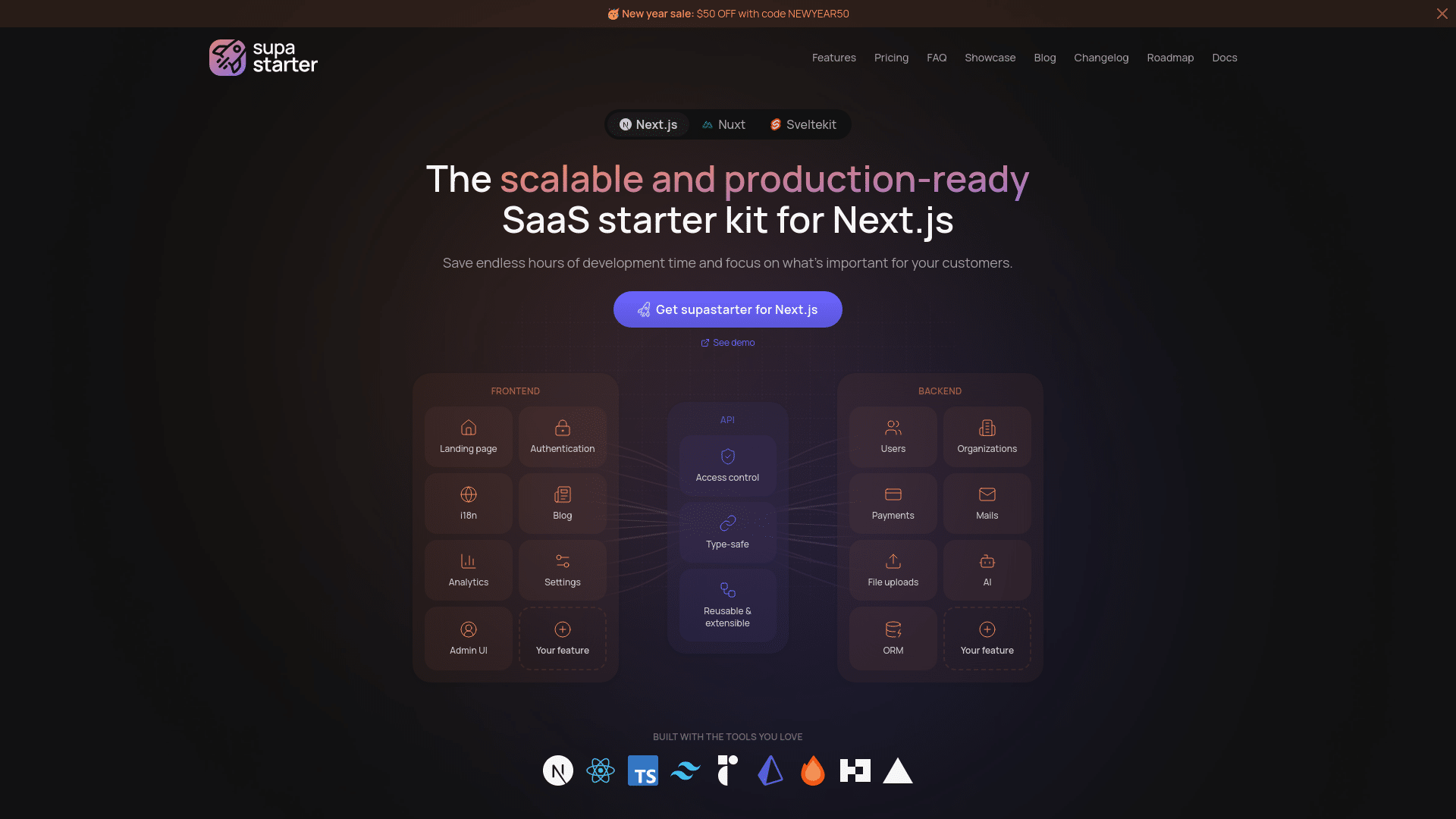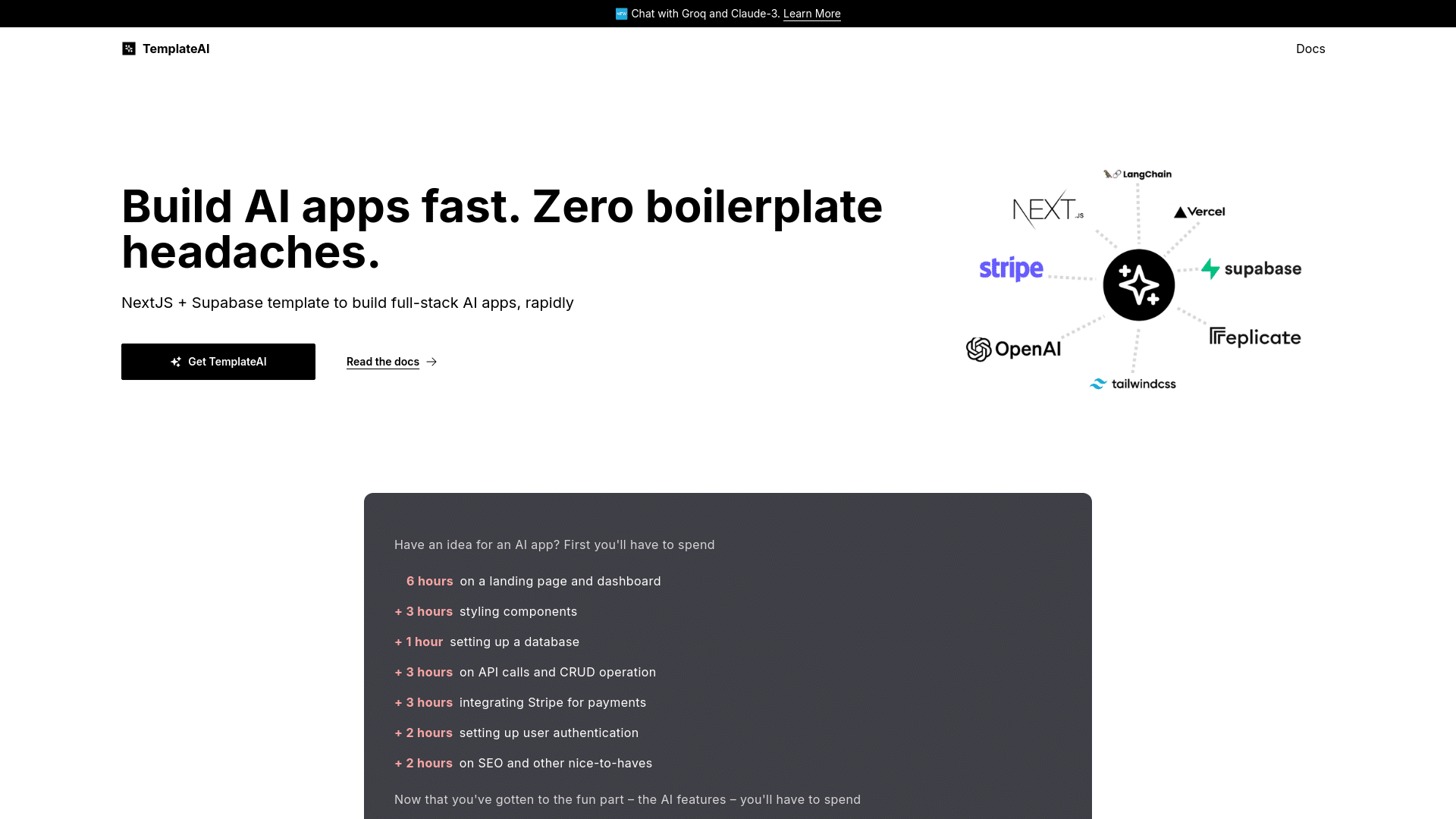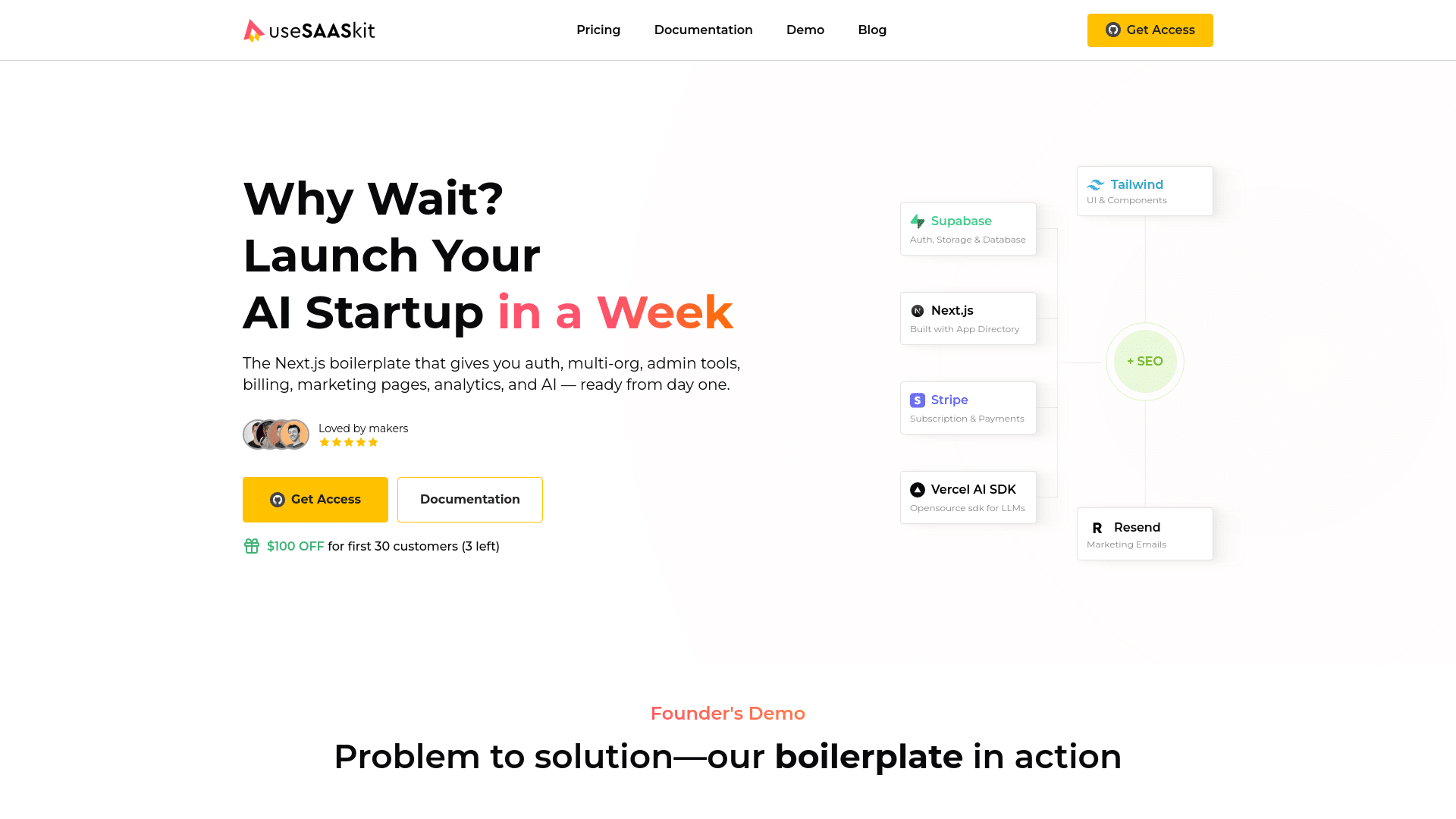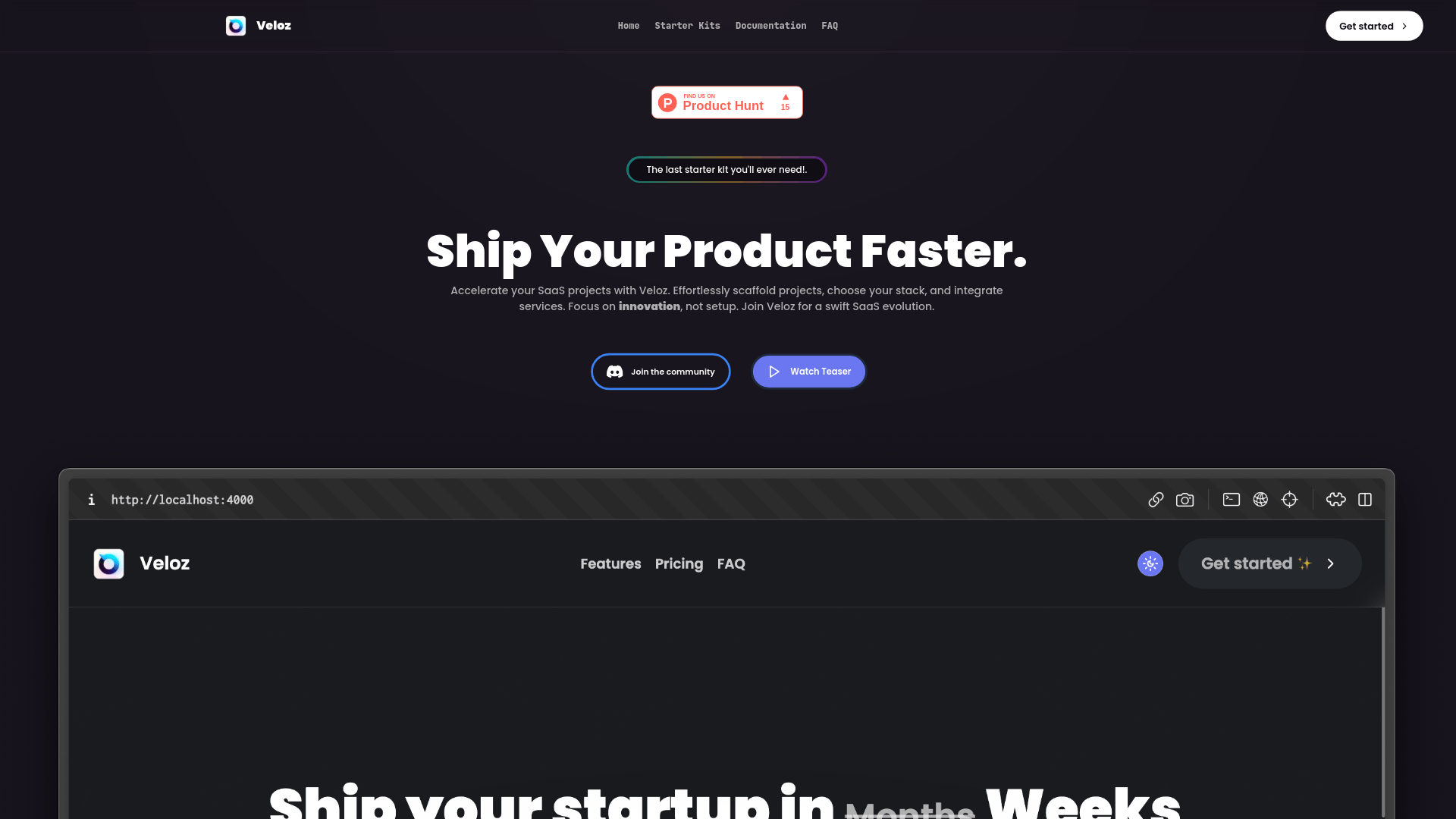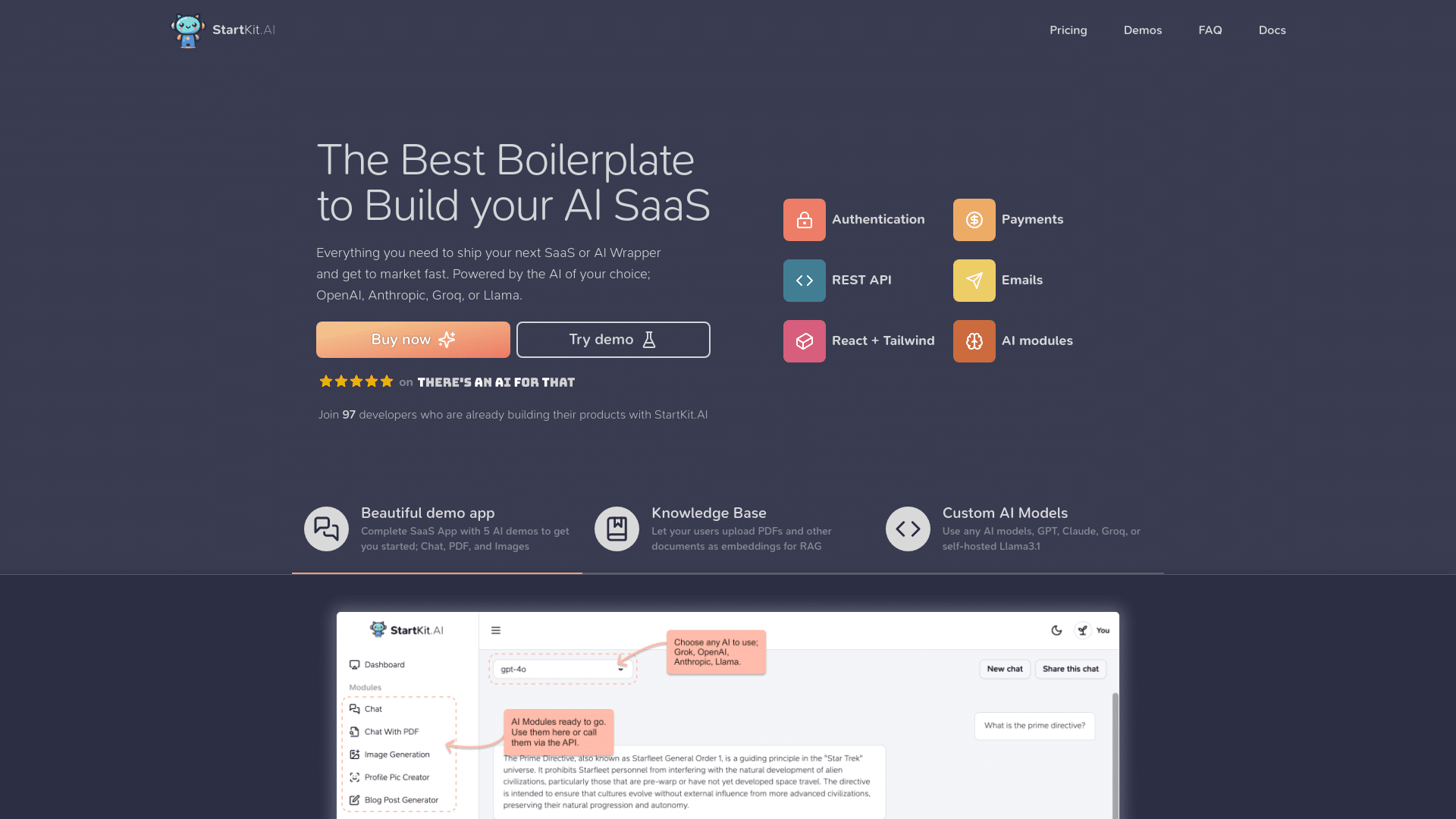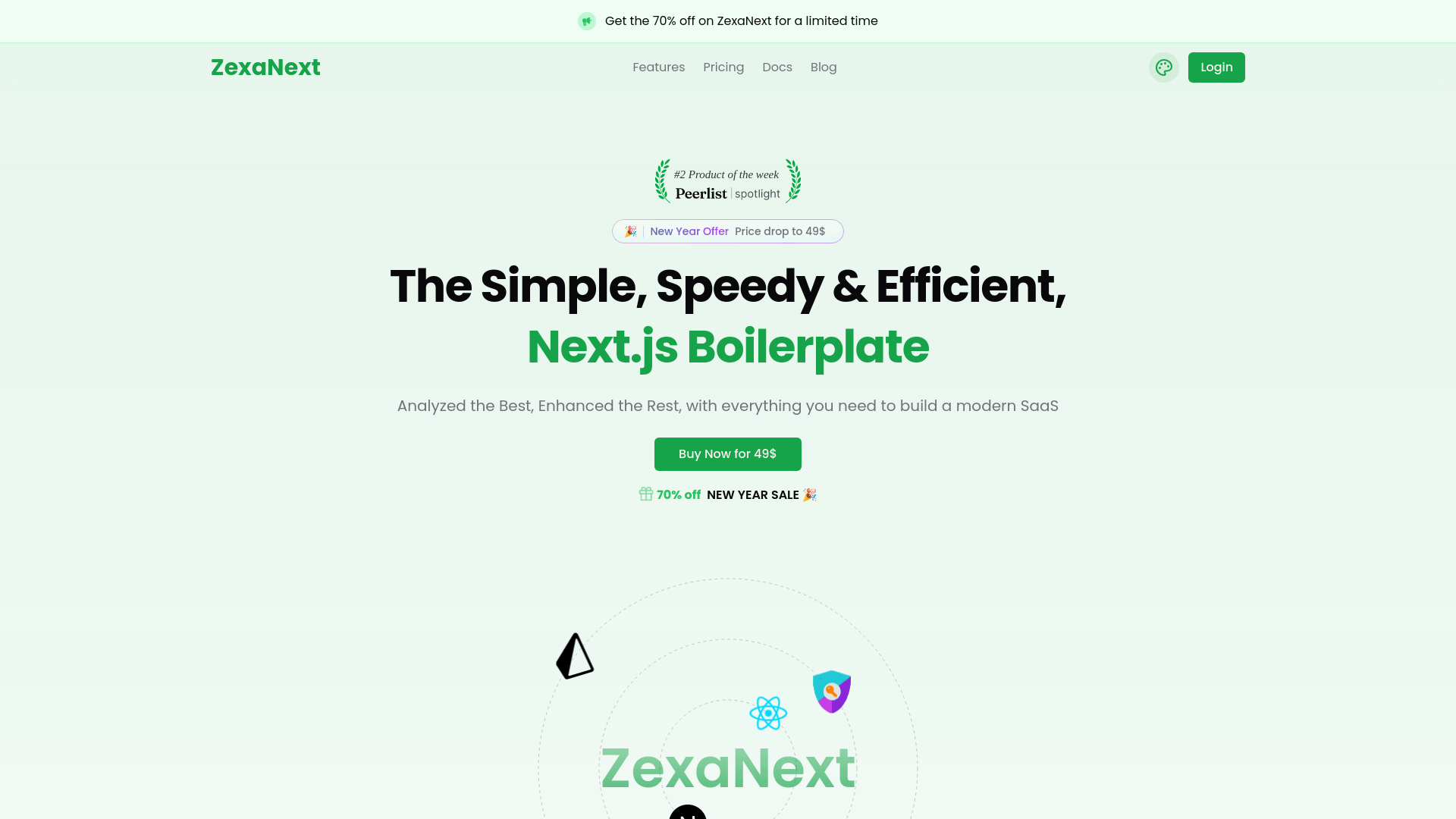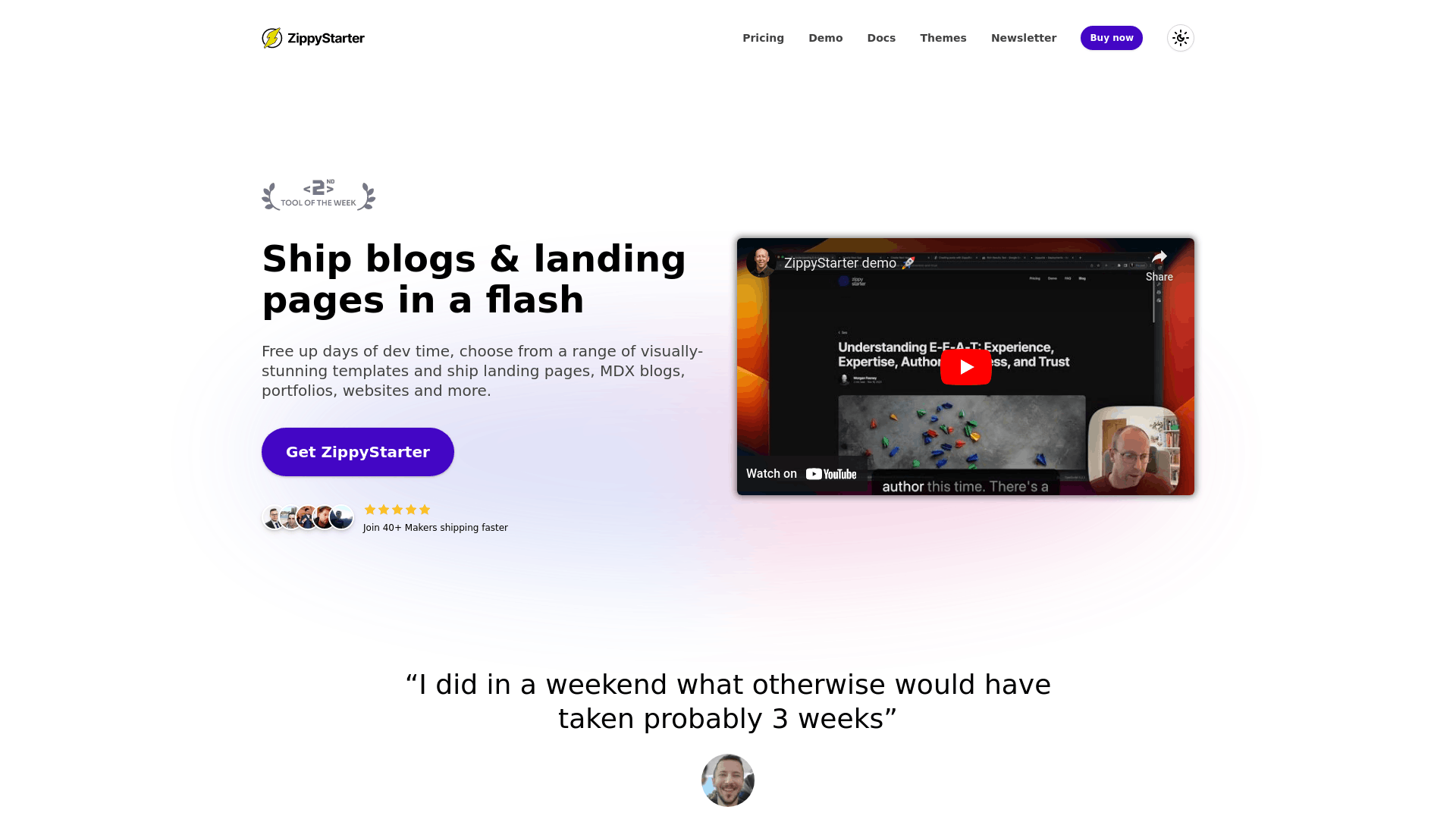What is a Next.js SaaS Boilerplate?
A Next.js SaaS boilerplate is a pre-built application template designed for building software as a service (SaaS) products using the Next.js framework. It includes all the necessary functionalities that every SaaS product requires, such as user authentication, billing, and subscription management, among others.
Using a Next.js SaaS boilerplate can help developers save significant development time and effort, allowing them to focus on creating unique features and improving the product's core functionality. It also ensures that the SaaS product is built with best practices and follows the latest security standards.
What is Next.js?
Next.js is a free and open-source web framework based on React for building server-side rendered (SSR) and static websites. Developed by Vercel Inc in 2016, it has gained significant popularity with over 110k stars on GitHub.
It makes the process of coding, constructing, and deploying Next.js apps easier, as it provides features like automatic server rendering and code splitting, static exporting, built-in CSS support, hot code reloading, and a host of other out-of-the-box functionalities that make building Next.js apps a breeze.
Some of the major benefits of Next.js are:
-
Server-side Rendering (SSR): One of the biggest advantages of Next.js is its built-in server-side rendering. This feature allows applications to load faster and improve their SEO by rendering JavaScript on the server.
-
Static Generation (SG): Next.js also allows developers to pre-render pages at build time which can be served from the global edge CDN. This helps in the optimal performance of your app.
-
Automatic Code Splitting: With automatic code splitting, only the necessary pages are loaded, making the application lighter and faster.
-
API Routes: Next.js provides a way to build your API directly into your Next.js application, which can be advantageous for smaller projects.
-
Incremental Static Regeneration (ISR): This feature allows you to update static content in your application without having to rebuild the entire app.
-
File System Based Routing: Any file inside the 'pages' folder will automatically be treated as a route.
-
Image Optimization: Next.js provides the Image component that automatically optimizes the image loading.
-
Hot Code Reloading: Next.js comes with the Hot Module Replacement (HMR) built-in which means that every time you save a file, only that module is updated, not the whole page.
-
Built-in TypeScript Support: Next.js has built-in TypeScript support which helps in building reliable web applications and reduces the likelihood of runtime errors.
-
Ready for Production: Next.js ensures best practices, like automatic handling of canonical URLs and HTML language tag, are followed by default — making it ready for production right out of the box.
-
Rich Ecosystem: As Next.js is built on top of React.js, the latter's rich ecosystem can also be tapped into by developers.
